What’s Your Travel Personality? What’s Your Travel Style?
Travel PERSONALITY | Travel STYLE
If you’re considering an extended multi-destination or around-the-world journey chances are you’ve got a pretty advanced sense of curiosity about the world and a strong personality to boot. The first part of deciding where you want to go on your trip is to determine your traveling “personality,” that is, how you identify yourself as a traveler, the passion behind your planning, your modus operandi if you will. To help you identify yourself (and likely travel companions ), we’ve pinpointed a few basic travel personalities – one or a few are likely to fit your profile. You can use them to establish an overarching theme for your trip, or to divide up the world into those places that have a place on your RTW route and those that you probably don’t care to include.

Travel Personalities
Adventurous travelers.
If you imagine yourself bungee jumping in New Zealand, running with the bulls in Pamplona, dancing until 6 in the morning in Berlin, heliskiing from the top of a mountain in Banff or boating down the Amazon, all signs point to you being an adventure traveler. National Geographic has a list of the top adventure tour operators and outfitters worldwide that may be worth a look. Of course, you don’t need to be a part of a tour to have an adventure, but if you’re not sure what adventure travel means or if you just want an idea of what kind of companies operate tours and which ones to use, it’s a great place to start. Recommended destinations for adventure travelers : New Zealand, Brazil, Bolivia, Nepal/Tibet, Tanzania, India.
ROMANTIC TRAVELERS
If your travel dreams are populated by the perfect sunset on a secluded beach in the Seychelles, gondola rides in Venice, and a honeymoon for the storybooks, this is probably you. Travel can be an amazing way to connect with your partner, or even meet someone new! Check out Travel and Leisure’s list of the 50 most romantic places for a general idea of what’s out there in the way of romantic destinations. The notion of taking off to far-flung places is a romantic idea in itself, so grab your partner, your passports, and get out and see the world. Recommended spots for romantic travelers : Santorini, Venice, Paris, Buenos Aires, Goa, Bali, Phuket, Fiji, Tahiti.
INTELLECTUAL TRAVELERS
If travel is just another way you broaden your internal encyclopedia with art, culture, and history, and your dream itinerary includes days filled with museums, archeological sites, groundbreaking architecture and traditional experiences, you may be an intellectual traveler. Lucky for you, destinations all over the world cater to the student inside of all of us. The world’s full of lessons, and travel is the way to learn them. Recommended regions for intellectual travelers : Europe, India, Japan, Machu Picchu, Istanbul, Cairo.
FIRST-TIME TRAVELERS
Will this be your first time traveling internationally? A little nervous about flying overseas? Concerned that you don’t know what you don’t know? Those are all normal concerns for first-timers. Don’t worry. There are lots of places that’ll present much less of a cultural shock where you can ease yourself into the world at large. You’ll be a pro before you know it. Recommended stops for first-time travelers : London, Paris, Rome, Costa Rica, Australia, New Zealand.
DANGER JUNKIES
If you prefer to live on the edge and explore destinations widely considered off-the-beaten-path or even unsafe, you’re probably a danger junkie at heart. Your ideal trip includes Ghana, possible brushes with the FARC in Colombia, or meeting some Maoist rebels in Nepal. Robert Pelton is your personal idol. You’re a risk taker and enjoy finding destinations that give you the thrills you desire. Of course, we caution our travelers to read US State department warnings, as well as the warnings posted by other nations (that said, many warnings can be colored by political agendas). Recommended locales for danger junkies : Tibet, Colombia, Uganda, Papua New Guinea
ALL, A COMBINATION, OR NONE OF THE ABOVE
Most people want to include elements of every different type of travel in their around the world experience, and we certainly encourage you to do so, too. The best way to prepare for an extended journey is to be completely honest with yourself about what you want to accomplish with your RTW trip and how you want to experience the world. The truth is that most travelers don’t fit neatly into one travel personality type. Still, it’s important to think about what kind of activities and attractions appeal to your personality, not just what cities you want to visit or on what airlines you’ll be flying. Another way to narrow down the endless possibilities while making complex travel plans is to identify how you like to travel, i.e., your travel style.
5 Travel Styles .
Traveling off the beaten path.
You’re not the average tourist. You want to add more layers to your travel experience and have rich cultural experiences every step of the way. You try things that more tentative travelers might skip. Popular tourists spots are crowded for obvious reasons—history, beauty, craftsmanship—but some of the most rewarding traveling experiences happen away from such places. Some of them are as simple as a cup of tea with a local shopkeeper in Turkey, or a conversation with local university students about politics in a bar in Colombia. Sometimes the proposition of striking out on your own in a place where you don’t speak the language is daunting, but it’s all part of the travel experience, and courage, not fear, reaps the greatest rewards in new places. Suggestions on how to get off the beaten path:
- Go somewhere that’s not in your top 10 places to see.
- Visit a village as opposed to a city.
- Skip your first choice of continents.
- Make a point of interacting with locals.
While it’s not easy, you can get away from the camera-toting masses, perhaps right in the middle of the most visited city of all. Check with your personal travel consultant for help discovering that proverbial and elusive “hidden gem”.
Traveling In Style
You need a little comfort on the road, and you’re willing to stretch your budget a little to get it. There’s no shame in wanting fancy sheets and a warm pool every once in a while. If you’re going to be traveling RTW for several months, you may not want to always (or ever) go the cheapest route. A hot shower with good water pressure and a comfortable bed are a miracle after a few months, weeks or even days of traveling. Many of our clients like to book a few splurges into their trip, even if they’re trying to keep their costs down as much as possible. If you’re looking to keep your budget on track , you might consider doing this in parts of the world where a splurge isn’t that expensive. For example, maybe during your travels through Europe, you’d stay in budget hotels and hostels, but the night you arrive in Jaipur you might hire a car to pick you up at the airport and drive you to a 5-star hotel built into an old palace. Here are a few other ways where you might spend a bit more money to have better experiences:
- Trek the mountains in Nepal with a guide
- Go on safari in East Africa
- Cruise to Antarctica from Ushuaia
- Tour the Silk Road
You might also consider upgrading your long flights: a fully reclining seat for that 10 or 20-hour flight might just be worth the investment. AirTreks can accommodate first and business class upgrades for all or part of your trip, often for a discount.
Traveling with an Agenda
You have things to do, places to be, going from place to place with an angle, an agenda on your trip. People who are working weddings, studies, volunteering, practices or business into their RTW trip fit into this travel style. For some people, traveling isn’t about aimlessly wandering the world, bouncing from tourist site to tourist site — they hit the road on a mission with a strong sense of purpose and responsibility to themselves (and others) to motivate them and help them pull it off. Of course, as an individual, this can mean any number of things — maybe your life’s dream is to climb K2 or to take a perfect honeymoon at a resort in the Maldives and fit in a visit to Venice’s Grand Canal and the Eiffel Tower in Paris Or, maybe you have a meeting in Shanghai on Monday and a meeting in Bangalore on Thursday and need to be in San Francisco, then Toronto, then back to New York after that. Perhaps you’re on a wedding tour, paying respect to friends in Phuket and family in Rome, or maybe you just got accepted to study at an ashram in India. Perhaps you’re on a wedding tour, paying respect to friends in Phuket and family in Rome, or maybe you just got accepted to study at an ashram in India. Whatever your “must do” may be, it can form the linchpin of your trip and serve as something to build the rest of your RTW trip around.
Traveling to Get Immersed
Getting in touch with a place takes a little time. You’re the type of traveler that likes to move slowly, to connect with locals in ways you just can’t on a whirlwind trip. The Peace Corps is just one way to immerse yourself in cultures around the world, long-term, slow travel is another way to stay in a place over a long period of time to experience what daily life is like. A great way to stop, recharge the batteries and get in touch with a local way of life is to rent an apartment in the city of your choice. It slows you down and allows you to connect with a city from a local’s perspective, as opposed to seeing as much as you can every day to check things off your list as a tourist. You could even get a job, do the “metro, work, bed” routine for awhile. Teaching English is a popular and easy option in many destinations if you’re a native speaker.
Responsible Travel
You make a point of dedicating your travels to the greater good. As countries around the world develop faster and faster, and as the global community starts to see its impact on the environment, more and more travelers feel that integrating some aspect of responsible travel is essential on every trip. Lonely Planet defines responsible travel as:
“Minimizing your impact and maximizing your connection with people and the environment. It’s about making a positive contribution and having the most rewarding and inspiring travel experiences of your life.”
Our ground partner Global Basecamps offers sustainable tours, treks, and accommodations all over the world. Many volunteer organizations also have conservation projects you can participate in on your travels such as tagging sea turtles, beach cleanups, and cultural preservation efforts. You can also volunteer with organizations like Global Vision International or Volunteer Abroad .
If you want to immerse yourself in local culture on a smaller scale, there are lots of ways to do it. Edward Hasbrouck recommends visiting a local English school and volunteering to be a conversation practice partner for the day.
Independent travelers can play a vital role in fostering a universal attitude of respect by helping support local communities cultures in the hard work of maintaining their cultures and environments.
Build Your Trip


How To Define Your Travel Style – Episode 102

What is your travel style? Travel isn’t one-size-fits-all, and there isn’t one way to see the world, only what works best for you. When I started traveling after landing my first job after graduate school, my funds were limited. I was making around $50,000 per year, and I had ambitious goals of paying off my student loan debt while saving for a house. But I still managed to stash funds away for travel because travel was a financial priority. Nevertheless, my travel funds were thin. As a result, I had to be creative.
I learned how to find cheap flights and other travel deals. Also, I became the go-to in my family and friends circle for travel hacking and credit card rewards . I also found creative ways to save for travel and save money while traveling. But most importantly, I discovered my travel style which helped me align my spending with the items and experiences that mattered most. In this episode, learn how to define your travel style and how it impacts your finances.
Prefer audio? Listen to this podcast episode.
Listen on Apple Podcasts | Google Podcasts | Spotify | Amazon Music | Pandora | Any player
Welcome to The Thought Card, a podcast about travel and money where planning saving and creativity leads to affording travel, building wealth and paying off debt. We are the financially savvy travelers.
Hey financially savvy travelers and welcome back to another episode of The Thought Card Podcast. I'm really excited about this episode because I've had it been mulling over in my mind for a really, really long time. This concept of defining our travel style. So, what's your travel style and no, I'm not talking about fashion.
Travel isn't one size fits all. So that means there isn't a best way to see the world only what works best for you. When I first started traveling after landing my first job after graduate school funds were limited. I was making around $50K per year and I had ambitious goals of paying off my student loans while saving for a house. But you know, I still managed to stash funds away to travel because travel was a financial priority for me. It wasn't optional. It was and still is a must. Nevertheless, my travel funds were thin. I'm talking very thin. As a result, I had to be creative with my funds.
Tasked with having to make it all work. I became a financially savvy traveler, which I detailed all about in episode 69. I learned how to find cheap flights and other incredible travel deals. I became the go to in my family and friends circle for travel hacking and credit card rewards. I also discovered creative ways to save for travel and save money while traveling. But most importantly, I discovered my travel style, which is a fundamental principle for what it means to be a financially savvy traveler.
In this episode, we're going to unpack what is a travel style, ways it impacts your finances and how it can change over time. But first this episode is made possible with the support of Knack Bags.
We just got back from a weekend trip and while we're moving our weekend bag from the car, you guessed it? The strap broke, talk about disappointing. We needed a bag to meet the demands of our travel lifestyle and protect our podcasting and photography gear, our laptops and other valuables when we plan to work on the road. Knack Bags checked all the boxes and some -- slim and lightweight for everyday use, but also expands when you need it. Knack Bags are functional, accessible and stylish. I love that it packs like a suitcase opening horizontally so I don't have to dig for items in the dark. We've all been there right? Get a Knack bag and use the code 'TTCKNACK' to get a free T. S. A approved lock with purchase. Just add the T. S. A lock to your cart with your Knack bag, enter the code 'TTCKNACK' and get it for free. The link and instructions will be in the show notes.
So what is a travel style? Every traveler has their own unique travel style or a way of traveling that reflects their interests and values. Your travel style dictates what you do on vacation and what you spend money on while traveling. It's less about the type of traveler, you know, budget versus luxury traveler or the types of travel, like cruises, all inclusive resorts or group trips. But what you enjoy spending money on. By understanding your travel style, you can better align your finances with what you value and skip the rest. Figuring out your travel style is an extension of value based spending. When you figure out what we care about first and foremost and spend according to our values.
Your travel style takes into account the things you enjoy when you travel, the comforts you prioritize and the things you don't mind skipping out on or spending less money on overall. So how does your travel style impact your finances?
Defining your travel style will help you to spend according to your values. You're gonna be spending money on what you care about. You're going to stop spending on what you don't value. You're going to end up actually wasting less money overall and you may even find that you have more money to travel, take more trips, extend your travels or make travel an even greater part of your lifestyle. And you know what, your travel style can and will change.
Here's how my travel style has evolved over time. So, when I was single before I even met Kyle or had a baby or any of those wonderful things, when I was flying, I was always looking for cheap flights. Always economy class. I've never been in business class, always economy. Also, I was looking to prioritize carry-on only. So I was not interested in spending any money on luggage so I was only usually having a backpack or something very light and small that I can just fit as a carry-on in the plane. I was also open to red-eye flights to save money and taking flights at really odd times to save money as well. I also flew budget airlines like Spirit; do not recommend, do not recommend.
In terms of my accommodations. I stayed at hostels or shared spaces and Airbnbs. I didn't really care about accommodation and I was willing to stay further away from the city center to save money on lodging. Overall, I would take the public transportation or I would walk everywhere. I was known for skipping meals to save money and the majority of my budget went to activities and things to do at a destination. Now. Fast forward. Here's my travel style now being married and having met Kyle.
So when it comes to flying, I still love a cheap flight. I really do. But when I'm flying in economy, I would rather spend a little extra to have more leg room. You know, I don't want to be squished anymore and Kyle is also six ft tall. So he's not going to appreciate being squished either. I don't mind checking my bags, I enjoy being hands-free at the airport and I find flight times that work best for us so we can sleep in and not have to stress and rush to get to the airport at different times. We really do enjoy staying at Airbnbs. Yes, instead of hostels. I don't mind hostels at all actually, but Airbnbs are a lot more convenient for us. We usually just rent out the entire space so we have it all to ourselves and we absolutely do care a lot about where we stay. We want a nice hotel or even a resort.
So last summer I went to Disney World and we actually stayed at a beautiful Disney resort. It was a pretty penny and we enjoyed every second of it and we didn't mind spending more for that experience. When it comes to transportation. I'm more leaning towards Uber and car rentals. I don't mind taking the train or the bus. But if Uber is there, that definitely piques my interest more these days. And Kyle and I are foodies, we are a craft beer enthusiasts. So nope, we're not skipping any meals when we're traveling and you know, outside of travel hacking, the majority of our budget goes to accommodation, it goes to food and drinks and activities. So as we can see here, things have changed a lot. I enjoy a lot more things than I did in the past and that's okay and our travel style again, like I said before it will change and that is expected and you know what, I'm really curious to see how my travel style will continue to change now that we have a little one.
Thinking back, you know, some of my favorite travel memories include climbing the Great Wall of China, eating and drinking our way through Epcot at Disney World, zip-lining through the rainforest in Ecuador, hitting up the hot pots in Iceland, snorkeling between shifting tectonic plates in Iceland and many more. And part of my travel style is these experiences when I'm traveling, it's these activities that I have when I'm traveling. All of these items I just listed off -- climbing The Great Wall, going snorkeling and zip-lining, these all cost money to do. But to me that's money well spent.
Today I prioritize experiences food and drinks and accommodation while traveling. So that's where the majority of my budget will go to. It's gonna go to these categories. I don't really necessarily care about spending money on flights. It would be nice to get business class, but I'm not necessarily willing to part ways with too much of my funds for that. So I'm going to spend less on airfare and/or travel hack my way to getting better airfare or getting a better air experience. But my funds, my hard earned money, will go to experiences, food and drinks, and my accommodation. Those are what again I value.
So overall defining your travel style will help you to align your spending with your values, spending on items and experiences that bring you joy that make you happy and fulfilled. So now I ask you, what's your travel style and how will it influence the way you plan your next trip?
Before I sign off. I'm writing my next travel and personal finance book and I'd love for you to join my waitlist for updates where you get free chapters and be the first to know when my next book comes out, head over to thoughtcard.com/waitlist. That's thoughtcard.com/waitlist.
I hope you enjoyed this episode and it gave you food for thought. This is something that's been on my mind for years and I finally had the words to put down on paper of what this means, what it means to know and have a travel style. Everyone has it so definitely hit me up on Instagram. I'm @thedanielledesir on Instagram or Twitter @thethoughtcard and let me know what you prioritize in your travel style. Let me know if you had any 'aha moments' in this episode. I'd love to connect with you. Until then, see you next time. One more thing. If you're curious to hear what it was like to climb The Great Wall of China, which is absolutely epic and stunning. Check out Episode 47, where Kyle and I recorded an episode live from The Great Wall of China. It's an experience that I will never forget and I'm so happy, I was able to capture it and share it on the podcast.
I hope you enjoyed this episode. But don't forget there's way more where that came from. When you become a supporter of the show, you'll get bonus episodes, additional tips on affording travel, real time updates, as well as strategies for building wealth and creating multiple income streams. Head over to thoughtcard.com/join to support. Also be sure to follow me on Instagram. I'm @thedanielledesir. Slide in my DMs and share with me your thoughts about this episode. What did you enjoy? What stood out to you? Let me know. I'd absolutely love to connect with you outside of the podcast. See you in the next one.
Thank you to today’s sponsor, Knack Bags . Knack Bags are functional, accessible, and stylish. When you purchase a Knack bag, use the promo code ‘TTCKNACK’ to get a free TSA-approved lock. All you have to do is add the TSA lock to your cart with your Knack bag, enter the code and get it for free.
What Is Your Travel Style?
Table of Contents
In this episode, we cover:
Your travel style takes into account: , what is my travel style , resources mentioned, other episodes you’ll enjoy, connect with danielle desir corbett.
- What it means to have a travel style
- Ways your travel style impacts your finances
- How your travel style can change over time
What is a travel style?
Every traveler has their own unique travel style or way of traveling that reflects their interests and values. Your travel style dictates what you do on vacation and spend money on while traveling.
It’s less about the type of traveler (budget vs. luxury traveler) or types of travel (like cruises, all-inclusive resorts, or group tours) but what you enjoy spending money on.
Understanding your travel style can better align your finances with what you value and skip the rest. Figuring out your travel style is an extension of value-based spending – determining what you care about first and spending according to your values.
- Things you enjoy when you travel
- The comforts you prioritize
- Things you don’t mind skipping or spending less money on
Although we fly economy, we are willing to pay extra for more leg room.
We prefer to check-in our bags so we can be hands-free at the airport.
Finding flights at convenient times matters to us.
We prefer Airbnb and luxury hotels or resorts.
We do not skip meals.
Overall the majority of my travel budget goes to accommodation, food and drinks, and activities when traveling — this is my travel style.
Affording Travel (book): Learn how to regularly save for travel and how you can set money aside to make it part of your lifestyle, even if you don’t have a lot of money right now.
How to Travel the World on 50 a Day (book): This book offers a practical, step-by-step approach to get you traveling the world from start to finish on $50 a day (or less). Nomadic Matt reveals the tips, tricks, and secrets to comfortable budget travel and he interviews dozens of other travelers about their success on the road and how you can apply that to your own trip.
Vagabonding (book): Veteran travel writer Rolf Potts explains how anyone can achieve the dream of extended overseas travel.
Why You Need a Travel Fund – Episode 2
How I Became a Financially Savvy Traveler – Episode 69
How To Organize Your Finances To Achieve Multiple Financial Goals – Episode 92
Instagram: @thedanielledesir
Twitter: @thethoughtcard

Danielle Desir Corbett paid off $63,000 of student loan debt in 4 years, bought a house at 27, and has traveled to 27 countries, including her favorites, Iceland, China, and Bermuda. Go here to learn Danielle’s incredible story, from struggling financially and in debt to finding creative ways to earn more and live on her terms. Listen to The Thought Card Podcast , where Danielle shares how you can creatively travel more and build wealth regardless of your current financial situation. Reach out to Danielle by contacting: thethoughtcard (at) gmail (dot) com.
You might also like

Understanding and Exploring Your Travel Style
Every journey tells a story, and the way we travel—our travel style—plays a pivotal role in shaping these narratives.
Far more than just a means to an end, how we explore the world reflects our personal preferences, interests, and even our values.
Whether you find joy in the adrenaline rush of an adventure like I do, the serene luxury of a high-end retreat that I only dream about, or the delightful simplicity and challenge of budget travel, understanding your travel style can transform your journey.
This guide is designed to help you uncover your unique travel style and leverage it to maximize the joy and fulfillment of your adventures.
Benefits of Knowing Your Travel Style 1. Improved planning 2. Increased cost efficiency 3. Better time management 4. Reduced stress 5. Enhanced personal growth 6. Greater satisfaction
At the core of every memorable journey is your unique style—a combination of preferences that dictate travel’s where, how, and why. Travel styles are as diverse as the destinations that dot our planet.
Identifying Your Travel Style
Perhaps you are drawn to the pristine wilderness on eco-friendly expeditions. Or maybe your heart beats for immersing yourself in foreign cultures, learning new languages, and sampling exotic cuisines.
By reflecting on what excites you most about traveling, the level of comfort you desire, how you prioritize your travel budget, and the pace at which you like to explore, you can begin to sketch the contours of your travel style.
What is your travel style?
Consider various factors such as travel goals, interests, and comfort levels. Ask yourself questions like the following.
- Do you enjoy planning every detail or prefer discovering opportunities spontaneously?
- Does the journey or the destination matter more?
- What kind of activities or experiences are you looking forward to?
- How much can you afford to spend on any particular trip?
- How willing are you to pay for anything you consider a luxury, or does it depend on the luxury?
Reflect on past travel experiences to understand what you enjoyed most and least. The answers to these questions can help narrow down what will work for you.
If you’re like me, what works for you will change with every trip. Sometimes, I journey for the sole purpose of hiking and exploring the outdoors . Other times, I simply want to relax and see what happens from one day to the next.
Benefits of Knowing Your Travel Style
Understanding your best mode of travel isn’t just an exercise in self-discovery. It’s a practical tool that can significantly enhance your travel experiences.
This knowledge is a compass guiding you to destinations, accommodations, and activities that resonate with your interests and preferences.
It simplifies planning. It ensures you allocate your budget to experiences that matter most to you. And it can significantly increase your overall travel satisfaction.
It can also reduce stress on your vacation, allowing you to enjoy your journeys confidently and purposefully.
Popular Travel Styles
Let’s dive deeper into each style to understand their unique experiences and opportunities.
Adventure Travel
Adventure travel is for those who crave the thrill of the unknown and the rush of overcoming nature’s challenges.
It’s more than just participating in activities like mountain climbing, white-water rafting, or safari trekking. It’s about connecting with the natural world in its most raw and powerful forms.
Adventure travelers tend to seek destinations that push their limits and expand their horizons.
This kind of trip offers a sense of achievement and exhilaration that can’t be found in more predictable environments.
It tests physical endurance and mental resilience, encouraging you to step outside your comfort zone. I enjoy this kind of travel, but only occasionally. Because it’s kind of exhausting.
Luxury Travel
Luxury travel transcends mere travel to become an art form that celebrates opulence, personalized service, and meticulous attention to detail.
From staying in lavish hotels that are destinations unto themselves to dining under the stars at world-renowned restaurants, luxury travel offers an escape into a world of exquisite comfort.
It’s about experiencing the pinnacle of what the world has to offer. And where every aspect of the journey is tailored to meet the highest standards of sophistication and indulgence.
Luxury travelers don’t just seek to visit places. They seek to immerse themselves in the best experiences those places offer, creating memories that are as unforgettable as they are sumptuous.
I’ve done this only once, on one of my trips to Maui. Honestly, I have no desire to do it again. You miss out on much of the world around you when you only see the wealthier side of it. That’s not why I travel.
Budget Travel
On the other hand, budget travel champions the idea that true exploration doesn’t have to come with a hefty price tag. It’s about discovering a destination’s authentic essence without the extravagance.
This style proves that the richest experiences often stem from the simplest interactions and the most modest accommodations.
Budget travelers rely on savvy planning, local insights, and the willingness to stray off the beaten path to uncover hidden gems.
By prioritizing experiences over luxury, you meet more people, proving that curiosity and a sense of adventure are the only tickets needed for an unforgettable journey.
Solo Travel
Solo travel represents the purest form of freedom in exploration. It’s a journey of self-discovery. Unencumbered by the preferences or schedules of others, you can truly indulge in personal interests and spontaneity.
This kind of travel leads to unexpected friendships, profound personal growth, and the empowerment that comes from navigating the complexities of the world alone.
Solo travelers learn to trust their instincts, embrace serendipity, and appreciate the introspective moments that solo journeys often provide.
Far from lonely, solo travel is an opportunity to engage with the world in a profoundly personal way, forging connections with people and places that can change your perspective forever.
Eco-Friendly Travel
Eco-friendly travel is a commitment to experiencing the world in a way that respects and preserves its natural beauty.
This way of traveling prioritizes sustainability. From choosing accommodations and tour operators that adhere to environmentally friendly practices to participating in conservation efforts.
You seek to minimize your carbon footprint. Your goal is to positively impact the destinations you visit, fostering a deeper connection with the environment.
By supporting local economies and preserving ecosystems, you help ensure that the world’s wonders remain intact and accessible for future generations to enjoy.
Cultural Exploration
Cultural exploration is the quest to understand the essence of a destination through its people, traditions, arts, history, and cuisines.
It’s about immersing yourself fully in the experience of a new place, seeking to learn and grow from the exchange.
You dive deep into the local way of life, participating in traditional festivals, exploring ancient ruins, and engaging with local communities. This travel style enriches your perspective and offers insights into the diversity and complexity of human cultures.
Through cultural exploration, you forge meaningful connections and gain a deeper appreciation for the world.
Each of these journeys offers a unique lens through which to view the world, highlighting the infinite ways we can experience and interact with the places we visit.
What influences your travel style?
Many factors can influence your preferences.
- Destination
- Type of experience sought (cultural immersion, relaxation, adventure)
- Travel personality
What is your travel personality?
Your inherent characteristics, preferences, and behaviors define how a person likes to experience travel. It’s about the individual’s nature and what they inherently enjoy or seek out when traveling.
This encompasses aspects like whether someone is adventurous, meticulous in planning, culture-oriented, or prefers relaxation. Travel personality is more about the traveler’s innate inclinations and attitudes towards travel.
While travel personality is more about the “why” behind a person’s approach to travel, travel style is more about the “how.” Someone’s travel style can vary from one trip to another due to external circumstances, even though their underlying travel personality remains constant.
For example, a person with an adventurous personality might opt for a luxury travel style for a special occasion or a budget style for a more extended backpacking adventure.
Mixing and Matching Travel Styles
The beauty of travel lies in its diversity—not just in destinations but also in how we can choose to experience them.
Many people, like myself, find joy and fulfillment in blending elements from various travel styles to create a journey that’s uniquely theirs.
Mixing adventure with cultural exploration allows you to experience the adrenaline of new activities while deepening your appreciation for the places you visit.
I like to mix a little adventure with cultural immersion, travel slowly, and take as much of the environment and people as I can experience.
Combining luxury with eco-friendly travel can offer exquisite and responsible indulgence.
How Your Style Impacts Your Experience
Your travel style significantly influences your overall experience, from your activities to the memories you create.
Budget vs. Luxury Traveler
Budget travelers often seek cost-effective options, like hostels, public transportation, and free attractions, which can lead to more interactions with locals and other travelers.
They might experience a destination more authentically but miss out on some comfort or exclusive experiences.
In contrast, luxury travelers might stay in high-end accommodations and partake in premium experiences, focusing on comfort and exclusivity, possibly with less direct interaction with the local culture.
Adventurous vs. Relaxation-Oriented Traveler
Adventurous travelers seek out activities like hiking, backpacking, or trying extreme sports, leading to thrilling experiences and often a deeper connection with nature.
They might explore off-the-beaten-path destinations and enjoy a sense of achievement from overcoming challenges.
On the other hand, travelers who prefer relaxation might choose beach resorts or spa retreats, focusing on unwinding and leisure. They may miss out on some adventurous experiences but return home more refreshed.
Planned vs. Spontaneous Traveler
Planned travelers have their itinerary mapped out in advance, from accommodations to activities. This approach can ensure they see and do everything on their wishlist but might limit unexpected discoveries.
Spontaneous travelers, meanwhile, are open to last-minute changes and serendipitous encounters, which can lead to unique, memorable experiences. However, they might also need help with availability or higher costs for last-minute bookings.
I think a mix of both these styles is the easiest way to have a relaxing vacation.
Solo vs. Group Traveler
Solo travelers are free to make all the decisions and change plans at their whim, leading to a highly personalized experience and the opportunity for self-discovery.
They might face challenges like loneliness or safety concerns but also have more chances to meet new people.
Group travelers, whether with friends , family, or a tour group, benefit from shared experiences and a sense of security but might have to compromise on activities to accommodate everyone’s interests.
Again, a mix is ideal here. Go with a group, but do things on your own regularly. This way, you’re sure to have unique experiences and obtain the benefits of both styles.
Cultural Explorer vs. Nature Lover
Cultural explorers focus on historical sites, museums, and cultural experiences, aiming to learn about the history, art, and traditions of the places they visit.
This travel style can enrich your understanding and appreciation of diverse cultures, but you might miss out on a destination’s natural beauty.
Nature lovers, conversely, prioritize outdoor activities and exploring natural landscapes, which can lead to rejuvenating experiences and a deeper appreciation for the environment. However, they might delve less deeply into the cultural aspects of a destination.
These examples highlight how different travel styles can shape your experiences, offering various perspectives and opportunities depending on your preferences.
Planning Trips According to Your Own Style
Armed with a clear understanding of your travel style, planning your next adventure becomes an exciting endeavor rather than a daunting task.
This clarity allows you to filter through endless travel options to find those that genuinely align with what you seek from your journeys.
It guides you in choosing destinations that offer the experiences you crave, whether that’s the thrill of adventure, the bliss of luxury, the challenge of traveling on a budget, the introspection of a solo trip, the sustainability of eco-friendly practices, or the immersion of cultural exploration.
It also influences your choice of accommodations, the pace of your itinerary, and how you choose to engage with each destination.
Challenges and Solutions
While each way of journeying offers its own unique set of rewards, it also comes with its own challenges.
Adventure travel may require physical preparation and safety considerations.
Luxury travel demands a higher budget and careful selection to ensure genuine quality.
Budget travel requires meticulous planning and resourcefulness to ensure you get the most value from every dollar.
Solo travel necessitates a heightened safety awareness and may challenge social comfort zones.
Eco-friendly travel often involves extra research to minimize one’s impact on the environment, and cultural exploration requires an openness and sensitivity to navigate different customs respectfully.
For each of these challenges, strategies and resources are available to help.
Adventure travelers can benefit from joining reputable tour groups or seeking advice from experienced adventurers in online forums.
Luxury travelers should look for reviews and recommendations from trusted sources to ensure their experiences meet their expectations.
Budget travelers can use a wealth of online tools and apps to find the best deals on flights, accommodations, and activities.
Solo travelers can enhance their safety and social experiences by staying in reputable hostels or using social apps to meet fellow travelers.
Eco-friendly travelers can look for certifications or eco-labels that indicate sustainability efforts. At the same time, cultural explorers can prepare by reading extensively about their destinations or even taking language lessons to deepen their engagement.
Frequently asked questions and the answers to them.
Travel style refers to an individual’s preferences and choices in travel, combining destinations, activities, pace, and fashion to create a personalized travel experience.
A travel personality is a set of traits and preferences that define an individual’s approach to traveling, such as whether he or she is an adventurer, planner, culture seeker, or relaxer.
Different types of travel include adventure, luxury, budget, solo, eco-friendly, cultural exploration, family, and group travel, each offering unique experiences and focuses.
Final Thoughts
Your travel style is a personal compass that guides your world explorations. It influences where you go, what you do, and how you perceive and interact with the places and people you encounter.
By understanding and embracing your unique travel style, you can craft journeys that are not only enjoyable but deeply fulfilling.
Whether you’re an adrenaline junkie, a luxury seeker, a budget wizard, a solo adventurer, an eco-warrior, or a cultural enthusiast, there’s a world of experiences waiting for you.
Dr. Tammi Kaeberlein is the owner and author of Wander Healthy, a longevity lifestyle blog that helps people incorporate healthier options into their daily lives. She's also a scientist in the biology of aging and has earned certification as a sports nutritionist and personal fitness trainer. When she isn’t writing about health and wellness, she is usually outside somewhere.

The Dana Edition
An adventure-ful lifestyle blog
30 Different Types Of Travel Styles
There are so many purposes and ways of traveling that you may not even have thought of, but that’s what makes it so exciting. There isn’t just one way to travel – it’s what works best for you and the time in your life. To learn more about the types of vacations that you can take throughout your lifetime, here are 30 different types of travel styles that you can choose from. You may find that you veer more towards one category and are even a mix of a few different ones – and that’s great! Because the more you travel, the more you get to learn about yourself and others. Use this list to inspire travel in you, your friends, and your family. Or try them all and check each one off of your travel bucket list!
For Nearby Travel
1 – day trips.
Day trips are probably the easiest kind of trip to take as you don’t necessarily need to take any time off to make one of these happen. It’s also the cheapest way to travel as you can drive to your destination there and back within one day and you won’t need to spend on flights or accommodations. They also make for a very convenient getaway and work well for a quick change of scenery when needed.
You can even Make Local Trips As Exciting As International Adventures For Every Traveler .
2 – Road Trips
A level up from day trips is road trips. Technically a day trip is a road trip, but when I’m thinking of road trips, I’m picturing that I’ll be gone for at least a minimum of 2 days and I can be anywhere within my province or even all the way across the country. You could even be doing road trips in another country as long as you have a way for transportation for your journey. It’s also a great way to travel according to your time and interests and perfect for seeing everything along the way.
Here are 22 Vital Lessons Learned On My Summer Road Trips – you may find this useful as you plan our own.
3 – Weekend Getaways
Other different types of travel styles for nearby travel include weekend getaways. And I find these especially exciting and worth it if you have a long weekend getaway, with a statutory holiday or adding your own personal time off to your regular weekend. I like to take advantage of these kinds of time off and make it into a weekend getaway so that I can insert some adventure into my otherwise boring work week.
For destination inspirations, here are Long Weekend Getaways For Canadians to take.
For The Solitary Wanderers
4 – business travel.
If you’re lucky enough to get to go on business trips and it’s a location you would want to explore, take advantage of the opportunity while you’re abroad! Usually, you’ll either travel on your own or with coworkers. And if your significant other is able to, then you can bring them along with you and you can save on their hotel (and sometimes even food) expenses since it’s covered by your company. But for the most part, you’ll likely be traveling on your own – and to be honest, I rather spend the time alone away from coworkers while I’m on business trips after work hours. I’m already spending all day with them, I really need a break at night! I sometimes extend my business trip by a day or two, pay my own hotel and other expenses and explore the city I’m in. because who knows when or if I’ll ever visit again!
For those trying to take advantage of business travel, here’s How To Work And Travel At The Same Time .
5 – Digital Nomad Travel
For those who are lucky enough to be location-independent and have the flexibility to work remotely at all times, this type of travel can be done anytime and anywhere. You can work and travel at the same time, for months on end and can move about as you please. This makes it so convenient for traveling purposes and exploring the world, and it really saves you time and money of having to take multiple trips when you need to request time off from work in order to get your “yearly vacation”. Of course, you probably need to keep in mind your country’s rules of how long you can be out of the country otherwise there will be tax repercussions or you lose your health benefits and such.
6 – Solo Travel
One of the most popular types of travel styles is to experience traveling on your own. It is a great way to get to know yourself and discover how you can adjust to being outside of your comfort zone. It also allows you to push the boundaries of what you are familiar with, be more present and alert wherever you are, and maybe even come out of your shell. There are so many positives to traveling solo, but of course you’ll need to be wary of your safety as well.
Here are the Best Advice Solo Female Travelers Need To Know .
For Group Travel
7 – couples romantic getaways.
One of the types of travel styles that you may tend to go on more often as you grow a little older and wiser in your years are couples’ romantic getaways. I always find this to be fun as I love traveling with my significant other and seeing the world together and experiencing new activities that we don’t normally do back home. It’s also nice being able to focus on each other with slightly fewer distractions and spend time together and figure out how to travel together or even co-habitat for a short duration. Or if you’re already married, it’s always good to have those romantic times away together rather than just your weekly dates or nights out.
8 – Girls’ Trips
It’s always a good idea to go on a girls’ trip at least once or a few times in your life! It’s a great way to get to know your friends better, do the girly things you want, and go on adventures you’ll talk about for years to come. I’ve been on several of these with different girlfriends and had an amazing time, but I do also want to say that these trips can even make or break a friendship. Depending on how much you are on the same page, the things you want to do, or even how high maintenance someone can be – it’s something to take into consideration. But if you think your friendships are strong enough, these will be some of the best trips you’ll ever take.
Here are 8 Important Lessons I Learned When Traveling .
9 – Boys’ Trips
Just like a girls’ trip, a boys’ trip is occasionally needed as well. Having that guy time is important to let loose and be able to have that social connection that just isn’t the same with the opposite sex. Obviously, there will need to be a certain level of trust here because I know many women are not always okay with these kinds of trips. But I always think it’s healthy and much needed for my man to have his time with his friends. He’ll always appreciate it too.
10 – Family Trips
Another one of the most popular types of travel styles and probably one of the first kinds you’ll go on is none other than a family trip. It’s the perfect way for families to spend time together and have fun outside of their daily routines. The kids can have time away from school and the adults can take time off work to actually enjoy their hard-earned money with their families. It’s even better when you can go on these trips with extended families. My grandma used to take about 16 of us to go on family cruises every year and it was a major vacation we looked forward to all the time.
For Theme-Based Travel
11 – special occasions.
One of the most fun types of travel styles is those for special occasions. This can include birthdays, bachelor/bachelorettes, weddings, honeymoons, anniversaries, graduations, or whatever else occasion that may be important to you. It’s a sure way to celebrate an occasion to the next level and make it even more meaningful and memorable.
12 – Dark Tourism
Dark tourism may be a type of travel style that is not often taken, but it is an interesting one. It is a trip specifically to visit places where some of the darkest histories have taken place. It helps you better understand history as well as gives you an opportunity to immerse yourself in it. This could include war tourism, prison tourism, disaster tourism, ghost tourism, and more.
13 – High-Risk Area Traveler
If you can believe it, there are some people who like to take advantage of cheap flight tickets and travel to high-risk areas. Others who do fly to these high-risk countries may also be there for other reasons including photojournalism, visiting family, or just wanting that experience. Of course, you’ll need to go with a high degree of caution.
For Purposeful Travel
14 – culture tourism.
Traveling for the sake of learning about your or others’ culture and history is a kind of trip that is taken quite often as well. Educating yourself through travel and absorbing a different country’s culture that way is one of the best ways to do it. You can take the time to learn some of the language, traditions and values, foods, and even religion to better understand the country and its people.
15 – Event Travel
A big reason for many people to travel can include an important event like a concert, a sporting game, a convention, a fashion show, or others. Sometimes these events don’t always happen in your hometown and you need to head to the nearest city or country to be able to attend these sorts of things. It’s a great reason to travel and you can even allocate some leisure travel and fun time while you’re going on your trip for these purposes.
16 – Sustainable Travel / Ecotourism
These types of travel styles are based on the principles of sustaining the environment as well as the social, and economic values of a country or place. This kind of responsible travel takes into consideration and prioritization the conservation of the environment, the well-being of the locals, and aims to minimize the negative impacts of traveling to a certain location. Being more eco-conscious and aware of how you can positively or negatively impact a place that you visit during your travels can make a world of a difference to the community there. You can consider staying at hotels that are more eco-friendly, such as those that are committed to carbon-zero existence and those that integrate waste reduction and incorporate elements of nature to reuse water or produce energy.
17 – Nature And Wildlife Tourism
Going on a trip solely for nature and wildlife is a specific type of travel style that may not be everyone’s cup of tea, but it is a great experience to enjoy if you do go on one of these adventures. For example, the Great Migration safari in East Africa is a sight to see and you’ll be able to experience seeing all the herds and millions of animals going across Kenya and Tanzania. Even going gorilla trekking, visiting penguins in Antarctica, and exploring the Amazon are some pretty serious wildlife adventures to go on!
18 – Volunteer Travels
One of the most meaningful types of travel styles is volunteer travel. You’re spending the time, money, and effort to go to a different country and volunteer to help them improve their community, build homes or schools, and even water systems. Mixing humanitarian work with recreational travel is an opportunity that can serve both you and others. I have always wanted to volunteer at Habitat For Humanity to help build houses abroad, and I hope to be able to do so one day. If I am able to find other causes that I am interested in, I will definitely add it to my list!
19 – Religious Tourism
Religious, spiritual, or sacred tourism are types of travel styles with a goal of pilgrimage or education through the exploration of religious artifacts, places, monuments, and sacred sites. One of the most well-known religious journeys is the pilgrimage to Mecca in Saudi Arabia or Israel’s pilgrimage to the Holy Land.
20 – Slow Travel
A type of travel style that is gaining popularity is slow travel. Because of the longer length of time spent, or being more intentional with what you do and where you go when visiting a foreign country, you are able to take the time to explore, self-reflect, and understand the history, culture, and environment of a particular area. You can better connect with the local people and their way of life, which in turn can impact both you and them in a way where you can’t if you were constantly jumping from place to place, only seeing the tourist attractions. Being in the moment and being present to support local businesses and giving yourself time to be a part of it all will provide more meaning to your travels.
Health And Wellness Travel
21 – health and wellness.
For those who are prioritizing their health and wellness, these types of travel styles have the purpose of self-care, relaxation, and finding yourself. Yoga and detox retreats, rejuvenation getaways, and even sports retreats prioritize physical and mental health. With how fast-paced everything is nowadays, sometimes this type of travel will really do you wonders and come back home with a different perspective on taking care of yourself.
22 – Medical Travel
Those who are seeking medical procedures sometimes opt for an out-of-country experience since they either do it better, or the prices are much cheaper than doing it at home. For example, flying to Gangnam, South Korea for facial treatments and even surgery is cheaper than doing it in North America and cost a fraction of the price you would otherwise spend at home. Brazil is also well-known for their body enhancement surgeries and many fly there to get some work done as well. Others also fly to different countries for non-elective procedures and it could be a matter of life or death. But always keep in mind to do your research and to choose a practitioner who is well-known, regulated, and legal! There could be so much that could go wrong especially when you have to do an invasive procedure and you want to make sure this will be a good experience for you.
Relaxing Getaways
23 – ocean lovers.
One of my favorite types of travel styles is for ocean lovers to experience a relaxing getaway in the water. Seeing or being near water rejuvenates the soul and instantly makes me happy and I love diving and exploring the ocean to see all the sea life. It’s also a challenge to the body as well. Beach vacations are one of the most-taken trips when someone decides to travel because it really revitalizes you and it’s all about rest and relaxation.
24 – All-Inclusive Getaways
The easiest type of vacation to take are the all-inclusive getaways. You don’t have to worry about much especially when you pay one price and your flight, accommodations, and food is all included. The most you’ll probably have to think about is what excursion you want to take if you want to escape from the resort property or what you’ll be wanting to eat for your next meal. These are great for first-time travelers or if you are traveling in a large group as everything is mostly already organized for you.
Fun Travel
25 – adventure travel.
For those who love adventure and new experiences, this type of tourism involved some level of risk and potentially needing certain skills and physical strength to do. This could include camping, backpacking, sailing, rock climbing, ziplining, cave diving, and more. It’s about connecting with the new location you’re in while challenging your mind and your body to stay active as well as quench the adventurer thirst in you.
26 – Culinary / Gastronomy Tourism
A very exciting and rewarding type of travel is to go on vacation just for the food! Having your palate guide your adventures and where you go next and fulfilling your food cravings (probably brought on by all the food TV shows) can be very satisfying. You can take cooking classes abroad, try to visit all the night markets and street food stalls, eat at all the best restaurants in a certain country, and participate in local culinary festivals. I don’t necessarily travel for food, but it’s one of my favorite things I look forward to when I’m visiting a new destination. Even in my hometown, I’m constantly looking at new restaurants to visit and my list has grown to over 300 – not sure how I’m going to do it all, but I’m going to try.
Extravagant Travel
27 – gambling tourism.
Gambling tourism is widely growing and these types of trips are for those who can manage their money and have good discipline and self-control – although that is not always the case. Traveling to a location where gambling is legal and popular – such as Las Vegas, Singapore or Macau – is all about the fast, luxurious, and extravagant lifestyle. If your only intention is to gamble, these types of trips are not for the faint of heart. My brother once told me when his friend worked at one of these hotels, he got tipped a luxury car!
28 – Fashion Tourism
For those who are very fashion-oriented, flying to Milan or Paris is just another day. Attending fashion shows around the world and getting custom designs at famous ateliers is the purpose of your travel – it’s something you live and breathe. If you are a boutique owner, it’s also normal to take these frequent trips to different destinations to source your jewelry and meet your suppliers for new designs and stock.
29 – Luxury Travel
Probably one of my favorite types of travel styles is luxury travel. This travel style is all about lavishness, comfort, indulgence, and pampering. It’s always nice to have these kinds of vacations as a way to treat yourself, do something special for your significant other, or have an experience you wouldn’t normally have. As high maintenance as you may think I am (haha!), this type of travel doesn’t always work for me as I am very adventurous and sometimes a little too practical – I worry more about exploring a new country than getting spa treatments there. But when I visit a destination that is for luxury travel, I love to take it all in, relax, and get the treatment I deserve! I know a lot of people only vacation this way since it’s a lifestyle that they’re used to, and I wouldn’t suggest otherwise if it’s how they like to travel!
Other Types Of Travel Styles
30 – budget travel.
Completely opposite of luxury travel is budget traveling. For those who are intent on experiences and visiting as many places as possible , budget travel is what makes sense and can save you a lot of money to do other things. Being cost-conscious and always looking for the next best deal by booking a flight with multiple layovers, staying at low-cost accommodations like hostels, and only paying for budget-friendly foods and experiences can help you go a lot farther if you are comfortable with these choices. The less money you spend at once, the more you can spend for a longer period of time in multiple places – or you can of course allocate this towards other expenses that are important to you.
For those who would rather stay home, here is How To Plan The Perfect Staycation .
- About Annie André
- Our life abroad
- Contact moi!
- Living in France
- Moving to France
- Food in France
- French activities
- French facts & history
- French customs, traditions, etiquette
- French holidays & celebrations
- Health & personal care
- Education in France
- Online French lessons
- Travel France
- Travel tips
- Work & money
- Inspiration
- Travel Gear & Technology
- French inspired gifts
- Travel Tips
39 Types of travel styles for any budget and personality
What’s your travel type? Explore different types of travel experiences and travel types based on your interests, stye, and budget.
If you enjoy travelling, you already know it can be incredibly rewarding, enriching and spiritually fulfilling. Other benefits include improved productivity, better mental health, and lower stress. Not to mention, it’s nice to take a break from your everyday routine.
But choose carefully because the type of travel you choose can be just as important as taking a vacation. Sometimes, it’s easier to find the perfect holiday by selecting the type of travel experience rather than choosing the destination first.
So what will you do?
Whether you’re a 30-something backpacker on a tight budget, a thrill-seeking adventurer, or a couple looking for a luxury trip with all the bells and whistles, I’ve put together a list of different types of travel and travel types for any budget and and type of tourist.
As the old saying goes, “Different strokes for different folks.”
Jump to section ↓
Travel Types based on the length of time you can travel
The length of time you have to travel will determine the pace, the cost and even the activities you do while on your trip.
Here are a few travel types based on the length of time you have to travel.
1) Day Trip
Out of all the types of travel, day trips are the most underrated.
The great thing about day trips is you don’t have to wait for vacation days to take one. Travelling to nearby cities and towns is a quick and easy way to scratch your travel itch, recharge your batteries and escape your everyday routine.
Take a cue from Debbie , who lives in New Jersey with her family. She features a bunch of day trips in her surrounding area on her blog, Jersey Kids.
Related: 15 Unique Weekend Getaways from Paris+ Map to get there .
2) The weekender
A step up from the day trip is the weekend traveller who travels or vacations on the weekend.
This type of traveller might love nothing more than to get away for a month to a faraway Italian villa, but because of money, time, family obligations or work, it’s just not in the cards.
Short weekend getaways are the obvious type of travel to feed your wanderlust until your next big adventure. You can hop on a plane Friday and return on Sunday or take a weekend road trip and make the most of the short time you have.
Take a cue from Anna , a 30-something tech PR who’s a weekend Jetsetter , seeing the world one weekend at a time.
3) Staycation – The local traveller who never leaves the country
A staycation is a vacation or a break from your routine to relax and enjoy various local activities and attractions without having to book expensive travel accommodations and tickets. This type of travel is so easy. No jet lag, no stressing over what to pack, less planning, and you save money.
The world is your oyster during your staycation, and the possibilities are endless.
Here are some staycation ideas:
- Be a tourist in your own city or town
- Check out one restaurant every day.
- Plan a spa day.
- Learn to cook something new every day. There are tons of cooking videos on YouTube.
- Plan a picnic
- Throw a French-themed party or Asian or Mexican…
- Get fit with at-home workouts
- Start learning a new language in preparation for a future international vacation.
- Plan a bike trip
- Or just catch up on some home projects.
- Take a virtual vacation.
Take a cue from Laura over at Cascadia Kids , who almost exclusively travels in and around the Pacific Northwest (Oregon and Washington State) and British Columbia with her family.
Travel based on a theme or passion.
If you have a passion, obsession, or affinity towards something, why not use it to lead your travels?
It doesn’t matter what you’re into; every interest can be turned into a trip.
Let your fascination with castles guide you to the four corners of the world. Or you could combine interests. If you’re obsessed with roller coasters and love France, why not plan a trip so you can visit some French amusement parks ?
Here are several different travel types you may not have considered.
5) High-Risk Area Traveler
For those considering certain types of travel involving high-risk areas, such as Afghanistan or Iran, I strongly encourage you to take precautions.
Depending on the travel destination, travelling to high-risk countries and locations could jeopardize your life and increase your risk of getting kidnapped, theft, or serious injury.
Here are some travel tips:
- Develop a communication plan with family and friends so that they can monitor your safety and location as you travel through high-risk areas.
- Leave DNA samples with your medical provider in case your family must access them.
- Erase any sensitive photos, comments, or other materials from your social media pages, cameras, laptops, and other electronic devices that local groups could consider controversial or provocative.
- Leave your expensive/sentimental belongings behind.
6) Adventure Traveller
Adventure travel is a type of travel that involves a certain degree of risk (real or perceived), which may also require special skills and physical activities.
For this type of tourist, your options are unlimited, from bungy jumping off suspended bridges and swimming with sharks to trekking through the jungle and biking across an entire country.
Many types of travel involving adventure can be planned independently, while others will need to go through a tour operator.
Take a cue from Family on bikes .
7) Foodie Traveller
You love food. So much so that you let your stomach be your compass guiding you to your next happy food adventure.
Take a cue from Mark Weiss over at Migrationology .
8) Medical Tourism
Medical tourism is when a person travels to another country for medical care, a medical procedure or therapy.
There are many reasons why someone might want to do this, including having a procedure done not available or approved in their home country or one that is less expensive in another country.
Some procedures people undergo on medical tourism trips include dental care, surgery, cosmetic surgery, fertility treatments, organ and tissue transplants, and cancer treatment.
9) Volunteer Travel adventure
If you would rather experience life in a foreign culture with locals rather than tourists, consider volunteer travel.
You might volunteer to teach English, build water wells in some remote part of Africa, or help care for elephants in Cambodia.
Whatever it is, you are doing good for this planet and its people.
Even families with kids can volunteer abroad .
10) Cultural Immersion Travel:
Cultural immersion travel refers to the experience of fully engaging in the customs, traditions, and daily life of a different culture. The type of travel can involve homestays, living with a host family, attending local festivals, volunteering in the community, taking language classes, and participating in cultural activities such as dance, cooking, or handicraft workshops.
11) Pilgrimage or Faith-based types of travel
For simplicity, let’s define a pilgrimage as a prolonged journey to a sacred place, traditionally done as an act of religious devotion.
No one knows for sure the true origins of a pilgrimage, but they’ve existed in many world religions since antiquity, including Christianity, Judaism, Islam, Buddhism, Hinduism, and Shinto.
Before modern transportation, pilgrims travelled by foot, walking hundreds of kilometres to pilgrimage sites.
Today, it’s much easier, thanks to planes, trains and automobiles and many people who travel to these places no longer go for religious reasons. Whether you want to travel by foot or by engine-powered transportation, here are some famous pilgrimage destinations.
- The Way of St James, France
- Glastonbury Tor, United Kingdom
- Madonna del Ghisallo – Lombardy, Italy
- Croagh Patrick – County Mayo, Ireland
- St. Olav’s Way, Norway
- Sanctuary of Atotonilco, Mexico
- Inca Trail – Machu Picchu, Peru
- The Lagoons of the Huaringas, Peru
- Adam’s Peak, Sri Lanka
- Bodh Gaya, India
- Char Dham, India
- Mount Kailash Pilgrimage, Tibet
- Kumano Ancient Trail, Japan
- Jerusalem, Israel
12) Retreats & Health and Wellness tourism
Retreats and wellness vacations are the types of travel where you can step back from your daily life, get some rest, and get in touch with yourself.
Retreats have been integral to Hindu, Buddhist, Christian and Islamic communities for thousands of years.
They can be a time of silence and solitude or involve conversations with a small group. They can be conducted at rural or remote locations, either privately at a retreat center or on sacred ground.
Here are some ideas:
- Couples Retreat
- Yoga Retreat
- Buddhist Retreat Centers
- Spa Retreat
- A vow of silence retreats
- Meditation Retreat
- Wine Retreat
13) RTW -Around The World Travel
“Around the world travel” is a type of travel not many consider. It can involve circumnavigating the globe or multiple places.
The goal of this type of tourist is to travel to multiple destinations. It might be for a year to visit 20 countries. Perhaps it’s to visit 12 countries in 3 months. Or you might want to visit 14 different Asian cities in 3 weeks.
No matter how long you travel or where you go, you’re in for a trip of a lifetime.
RTW travellers are a special breed that usually carries their possessions in backpacks and travel quickly as they move from one destination to the next.
Take a cue from 5 discover the world .
14) Casino & Gambling Tourism
The gambling holiday trend as a whole is growing each year. Some people travel for tournaments, while others enjoy travelling to luxurious gambling resorts for the amenities.
Before heading out on a gambling holiday, it makes sense to put limits on how much you spend by placing a hold on your funds after a certain amount.
This may seem over the top, but it’s worth putting these protections in place because it’s easy to get carried away with gambling, especially if you’re enjoying a holiday.
Examples of gambling destinations:
- Las Vagas, USA
- Macau, China
- Monte Carlo, Monaco
- Niagara Falls, Ontario, Canada
- Sun City, South Africa
- Montreal, Canada
Travel types based on the luggage you travel with
As strange as it sounds, your luggage can define you as a traveller.
Do you want to travel light, with just backpacks, or do you want suitcases with wheels and packs for almost any occasion?
15) The Backpacker
Forget about the grungy hitchhiking backpacker who doesn’t shower for weeks. Backpacking has evolved, and it’s a growing sector of the travel industry that just about everyone’s trying at least once.
Typically, this travel type travels with their possessions in a backpack that can easily be carried for long distances or long periods.
You might be on a tight budget to make your money last, so you eat on the cheap and stay at inexpensive accommodations like hostels where you share rooms, bathrooms and a communal kitchen with other backpackers.
It’s not uncommon for you to wash all five pairs of underwear in the sink and hang them on the portable laundry chord you carry in your backpack along with your portable sheets and your instant Ramen before moving on to your next city.
It sounds rough, but you love it. Besides, there’s something to be said about travelling this way and meeting interesting people.
“It’s a more organic way to see the world and a better way to interact with the locals and get to know the local culture.” –Nomadic Matt.
Just look at Alyson Long and her family at World Travel family.
16) The FlashPacker
The flashpacker is a travel typer that is essentially a flashy + backpacker, and the concept is similar to glamping (glamour camping) in that it blends something traditionally rugged with a bit of luxury.
Flashpacker is a relatively new term that is catching on and is being accepted into mainstream language.
You’re probably older than the average backpacker. You might even be married with kids.
Much like the backpacker, you love the mobility of having all your possessions in one bag so you can move freely and quickly from place to place, staying as long or as short as you like.
Like the backpacker, you might be price conscious; however, if you felt like it, you could easily stay at swankier hotels, eat at higher-end sit-down restaurants and splurge for the latest and greatest travel gear and electronics.
Checkout Bethaney. Her husband and son are a flashpacking family. Flash Packer Family
How Much Money You Got?
17) luxury travel.
For you, luxury travel goes beyond staying in a four-star hotel or sipping champagne on a yacht in the Bahamas. It’s more about a unique experience.
Luxury travel involves partaking in the tiny details where you feel pampered and all your personal needs are met.
No work, no stressing, just relaxing. Upon your return home, you feel refreshed.
Often, luxury travellers forgo little vacations throughout the year so they can afford to take that one perfect luxury vacation.
Take a cue from a luxury travel blog .
18) Budget Traveller
A budget traveller is someone who either doesn’t have a lot of money to spend on Five-star hotels or chooses to travel on a budget to make their money last as long as possible and travel longer.
Typically, this type of tourist likes to keep expenses down by eating on the cheap, staying in low-cost accommodations and hostels and taking public transportation over more expensive modes of transportation.
Budget travellers also might travel to destinations, and house sit or dog sit in exchange for free room and board—a win-win situation for both parties.
Or there’s always Couchsurfing.
Do you travel alone or with others?
Who you travel with has as much to do with your style as where you want to go and what you do during your travels. I’ve broken out these travel types by the people you travel with or without.
19) Travel With Pet
Bringing your pet on vacation and travelling to new destinations with them means you don’t have to worry about hiring someone to watch them while you’re gone, which can be both costly and worrisome.
You also get to spend time with them without missing them or wondering how they’re doing.
Typically, dog owners bring their furry friends on the road, but cat owners have been known to bring their felines along for the ride, too.
Make sure you research because many countries have strict health, quarantine, and customs requirements for pets.
If you decide to take your pet abroad, check with the embassies of the countries you’ll be going to for any specific requirements they may have. And make sure to check well in advance so you have enough time to get everything in order.
20) Solo Travel
You’re a solo female traveller or just a dude who wants to see the world on your terms. You might like travelling long term across the globe or short term travel.
Solo travellers are typically young but could just as easily be in their 80s. You love the challenge of travelling alone, meeting new people, and befriending the locals.
You can come and go as you please because you’re not hindered by the opinions of a companion traveller.
You’ll probably learn a lot about yourself along the way, too.
If you’re a female solo traveller, you may need to take extra precautions for safety reasons.
Take a cue from this solo female traveller = Girl About the Globe or The Blonde Abroad .
Take a cue from this solo male traveller – Nomadic Samuel or Nomadic Matt .
21) Couples Travel
Whether you’re married, dating or travelling with a friend, the types of travel open to you as a couple are endless.
Sometimes, it’s tough travelling with a partner because you need to consider the other person’s travel interests and needs, which don’t always align with yours. However, that’s okay because the rewards outweigh any sacrifices you make.
Together, you’re creating memories, growing closer, sharing experiences and learning what makes each other tick.
You just need to agree on where you want to go.
Take a cue from this backpacking couple backpacking-travel-blog
Check out this baby boomer couple: My itchy travel feet
22) Travelling Family With Kids
It’s hard travelling with kids, and you don’t always get to take the romantic trips you took before the kids came along, but you enjoy letting your kids see the world and then seeing the world through their eyes.
Even if your kids are young and won’t remember the trip, there are still benefits to exposing them to travel. Here are 10 Reasons Why You Should Travel With Your Kids Even If They Won’t Remember .
Check out all these families who travel full-time and long-term for years with kids in tow. Many of them work while on the road.
23) All-Inclusive Group Tour
If you’re the type of tourist who likes everything taken care of for you, all-inclusive group tours are an easy and cost-effective way to enjoy a vacation without all the fuss of planning everything. You get to enjoy the amenities and food more than stressing over what to do next.
All-inclusive group tour ideas
- Scuba diving
- International vacation group tour
24) (LGBTI) travellers: Gay, Lesbian, Transgender, and Intersex
Technically, you could fall under one of the other groups, like a solo traveller or couples travel. However, because you’re LGBTI, you might also like to find gay-lesbian-friendly venues and activities so that you can meet with other like-minded individuals. No big deal if you don’t because it’s all about the travel experience .
But don’t forget that LGBTI travellers have unique challenges when travelling abroad.
Some countries have laws and attitudes that may affect your safety and ease of travel. Many countries don’t legally recognize same-sex marriage, and more than 70 countries consider same-sex relationships a crime punishable by law.
Take a cue from a solo gay guy who travelled the world and has lived in several countries — Travels of Adam .
25) Senior Traveller
There’s no age limit for travel. For retirees and seniors, it might be the perfect time to get out and take that road trip or explore the other side of the globe.
Some options for seniors are travel tours and organized activities to take the stress out of planning, giving you a chance to meet other travellers who travel at your pace.
Don’t forget, as a senior, you can take advantage of senior discounts at museums, tours and sometimes at restaurants.
26) Disabled travel
The tourism industry is finally waking up to the special needs of travellers with disabilities. There are many more services and better accommodations for “Disabled travel” and an abundance of information online.
Remember that the laws regarding accessibility for persons with physical, sensory, intellectual, or mental disabilities vary from country to country.
Unlike the United States, enforcement of accessibility and other laws relating to persons with disabilities is inconsistent.
You define the way you travel by your mode of transportation.
27) Train Travel
If you’re the type of tourist who loves road trips but doesn’t want to be burdened with the actual driving, then train travel might be for you.
Nothing compares to the experience, from the incredible views and the comfortable onboard amenities to the ability to get from city centre to city centre quickly and easily.
Countries well suited for train travel are ones with an extended and well-connected train line:
- Switzerland
- Orient Express.
The beauty of train travel is you hop on and off and explore the cities at each stop or continue to the next one. You don’t have to go through airline security, and there are virtually no weather delays. If your train gets delayed, no problem; catch the next one or exchange your ticket for a new destination on the spot.
28) Wheels-Road Trip
Do you believe the journey is the destination best enjoyed in an RV, a car or on a Harley motorcycle? Do you love the sights, smells, sounds and excitement of the open road?
You might be a roadie.
If you have kids, you’re probably better off touring around in an RV and homeschooling while staying connected to the road-tripper community.
Some road-trippers stay within the confines of their home country, while others choose to travel internationally for their road trip experience.
Some examples of road trippers
- Campervan Travel
- Modified Van Travel
Check out Road Less Travelled
29) Cruise Ship
Cruise ships are a form of tourism that’s taken off. It’s a little like staying in a floating resort.
Cruise packages often include everything you need, from nightly entertainment, pools, casinos, workout rooms and dancing.
Many cruise ships also have kids’ clubs where kids can go and hang out to meet other kids their own age in a safe environment.
There are cruises for just about every type of traveller, age, demographic or theme.
Examples of themed cruise ships
- European River cruise
- Disney cruise
- Glacier cruise
- Panama Canal cruise
- Northern light cruise
- Mediterranean cruise
- Seniors cruise
- Star Trek cruise
Camping with a twist
30) Glamping
If you’re the type of traveller who likes the idea of camping but doesn’t want to give up little creature comforts like toilets and showers in enclosed areas, then glamping may be for you.
Glamping (glamour + camping) is where camping gets a little glamour facelift.
The array of glamping sites has skyrocketed, and you can find anything from glamping in bubble hotels , sleeping in beautifully decorated yurts or an upscale tent with wicker furniture and catered meals.
31) Treehouse
Nothing will thrill your inner kid more than spending a magical night or two high in the treetops like Robinson Caruso.
It’s a magical experience that joins the forest experience and camping together for a fun-filled family vacation or romantic couples getaway.
Every treehouse venue is a little different.
Some have intricate bridges connecting multiple treehouses.
Some treehouse hotels have interesting ways of delivering meals, such as a breakfast basket delivered to your tree, which you pull up using a rope and pulley.
Some can sleep 5 or more people, while others are tiny and shaped like a dome.
Homeschooling and Educating While On The Road
32) road schooler – homeschooling on the road.
You’re a family who wants to travel full-time or long-term with school-aged children and want to give your kids the best education you can.
Many people who travel long-term choose to do a form of homeschooling.
Your kids don’t attend school in the traditional sense.
You, the parent, are the teacher, using the world around you and material either online or purchased following a curriculum created by yourself but probably guided by some standard in your home country.
33) Un-Schooler / WorldSchooler
If you’re familiar with John Holt, he coined the term un-schooler, which essentially is a system where parents educate their children using the resources and guidance around them and inside of them.
It is more of a “child-driven learning” based on following your instincts and your child’s interests and not necessarily using any of the usual school resources.
The term un-schooler has some negative connotations mainly because it’s a term used to describe what IT IS NOT.
The term “world schooler” is broader, more descriptive, and often seen as a more positive term than an un-schooler.
Just like it sounds, the whole world is your school instead of school being your whole world. Rather than seeing and reading about things in a textbook, kids experience things firsthand.
- Single mom slow travelling the world with her son: www.raisingmiro.com
- Single dad also slow travelling the world with his son dad 1 kid
- and finally, World School Adventures
Some other terms used to describe this type of schooling are Travel Schooler / Educational Traveller / Free-range kids.
Temporary Break To Travel Or Live Abroad
34) career break.
You have a career, but you’re feeling a little burnt out from the 9 to 5 lifestyle.
You want to travel and see the world for a few months, maybe a year, maybe longer.
Along the way, you might even do something you’ve always wanted to do, like learn a language, write a book or volunteer abroad.
Whatever you do, career breaks are a great way to escape the rat race for a while.
You might be interested in reading: What is A Career Break or Sabbatical (Definition) And Why You Need One?
Take a cue from this family of dropouts living in Vietnam: The drop-out diaries .
35) Sabbatical / Gap Year
A sabbatical is a term that has been used to refer to tenured teachers who take a year off from teaching to further their education or do something worthwhile.
Nowadays, the term sabbatical is used by anyone who wants to take a break from work. It’s closely related to a career break.
Gap Year tourism
A gap year is a term that has traditionally been very popular in Europe and the UK, but it’s gaining popularity in other places like the US and Canada.
Originally, a gap year referred to a young person just out of high school who takes a year off to travel and maybe do some volunteer work or backpack around the world for a year before entering University.
As of late, many people have adopted this terminology to describe their travels, particularly adults, professionals, and even families.
All three of these terms ( gap year, sabbatical year, career break trave l) are closely related, and some would argue that they are the same. You be the judge.
- Family Gap Year- Check out world Family Travel
- Take a cue from Suitcases & sippy cups on a Family Sabbatical – Suitcases and sippy cups .
- Go check out Sherry, a career break who travels at Otts World
- Take a look at Dave and Deb over at Planet D , who are strong advocates of a sabbatical year to travel.
36) Slow Travel
Some like to travel fast, zipping from one tourist destination to the next, while others like to take it slow, really slow, spending as much as a few weeks to a few months in one place before moving on.
A slow traveller’s goal is probably to explore each destination thoroughly and experience the local culture rather than hitting all the guidebook tourist spots.
Take a cue from a couple who slow travels: Never Ending Story .
37) Long Term Travel / Nomad
A long-term traveller and a nomad traveller are often used interchangeably to describe someone who travels for an extended period of time and may even have no real permanent home base.
Nomad travellers often ditch the daily grind and drop out of normal life so they can have a more flexible and spontaneous travel style. They tend to move from place to place in search of new experiences and adventures for several months to years at a time, immersing themselves in different cultures, learning new languages, and exploring the world in a more profound and meaningful way.
Because you’re travelling for an extended period of time with no permanent home, you’re probably a flash-packer or backpacker.
Other terms related to long-term travel include Full-Time Traveller, Vagabond, Gypsy, Hobo, Nomad, and perpetual traveller.
Take a cue from WaderLust and the girl .
38) Digital Nomads – Location Independent travellers
You love to travel, but you need to make some cash along the way to help fund your travels.
You might teach English here and there or have a job back home that you can do remotely.
Still, others are working to create a business using nothing but their computer, the Internet and an idea. For example, freelance writers, photographers, consultants, web & graphic designers, and Internet marketers, to name a few.
You’re pretty tech-savvy, and you’ve figured out a way to leverage technology and work wherever and whenever you want – whether it be from home, a beach in the Bahamas, at your favourite coffee shop or on the other side of the world!
You’re basically a nomadic or location-independent entrepreneur, and you use your phones, tablets and laptops along with some useful web applications to earn an income.
Take a cue from Erin Bender: Travel with Bender and Never Ending Story .
39) Expat
As an expat (expatriate) or immigrant, you choose to live abroad in one place for an extended period.
It might be for a year or two, which can turn into your new forever home.
Maybe you have a job that transplanted you, or maybe you decided to take a life sabbatical or career break and foot the bill yourself.
Most likely, you’ll need special visas that will allow you to live in that foreign country beyond the usual 30, 60 or 90 days tourists are typically allowed to stay in foreign countries legally.
You’re immersed in that culture, and If you have kids, they’re also immersed, maybe even attending school.
Take a cue from us: We moved to France.
Whatever your travel type or type of tourist you are, knowing all your choices can sometimes shed light and open new doors to opportunities you didn’t know existed.
I genuinely believe choosing the right type of travel will knock your socks off and leave you with unforgettable memories that you can’t stop talking about.
Disclosure : This post may contain affiliate links, meaning I get a 'petite commission' at no extra cost to you if you make a purchase through my links. It helps me buy more wine and cheese. Please read my disclosure for more info.
Related Articles you might lik e
Why people love stinky cheese & smelly foods, according to science!
Budget travel france: best cost cutting tips from a local, how do time zones work and why do we have them.
Annie André
About the author
I'm Annie André, a bilingual North American with Thai and French Canadian roots. I've lived in France since 2011. When I'm not eating cheese, drinking wine or hanging out with my husband and children, I write articles on my personal blog annieandre.com for intellectually curious people interested in all things France: Life in France, travel to France, French culture, French language, travel and more.
We Should Be Friends
Subscribe to Receive the Latest Updates
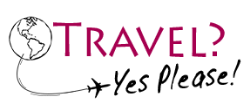
What’s Your Travel Style?- How to Choose a Trip That’s Right for You
Purchases made through links earn us a small commission, at no extra cost to you.
There are so many different options available when it comes to travel- cruises, coach tours, all-inclusive vacations and independent travel. You may not know what your travel style is until you get out there and try and few different options. What you find out about yourself may surprise you.
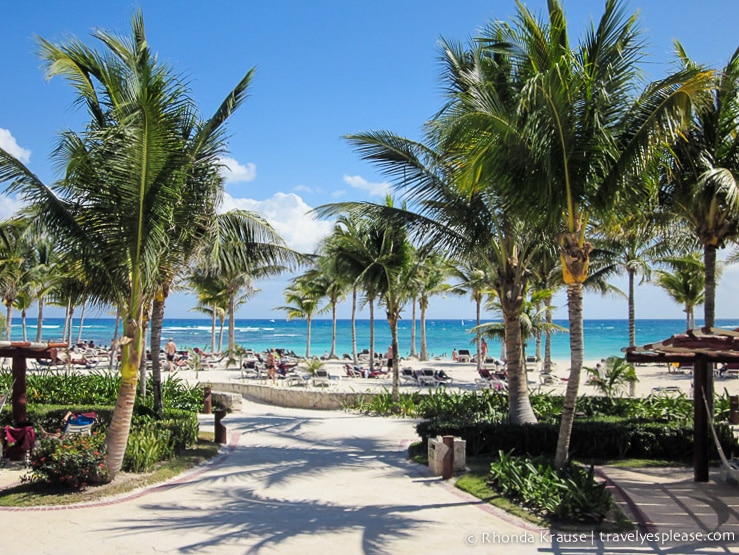
How I Discovered My Travel Style
I initially thought that a coach tour would be perfect for me. I don’t like worrying about logistical things such as where to stay and how to get to from Town A to Town B. I thought it would be better to let a tour company worry about all that for me. All I had to do was hop on a bus and enjoy the ride. It was great getting from place to place without having any stress. The problem was, we went from place to place very quickly. I soon found myself feeling ripped off that I had such little time in these wonderful places and upset that I couldn’t explore them as in-depth as I wanted to. I arrived home feeling like I needed a re-do of most of the places I visited.
When I gave cruising a try, I felt the same way. Being in a port of call for such little time didn’t give me the deep travel experience I found myself longing for. This wasn’t so much a problem for me in the Caribbean, but in places like Istanbul , Santorini and some other Greek islands, I would have loved more time to experience the place, not just see it.
So now I realize that the type of travel that best suits me is independent travel. Yes, it’s a lot more work on the planning end and I need to be very organized to maximize my vacation time. I also worry a bit more about things going wrong. It’s a trade-off that I welcome though. Independent travel allows me freedom- freedom to go where I want, see what I want, eat where I want, sleep where I want and spend as much or as little time in a place as I want. Independent travel leaves me feeling more satisfied because, as I’ve learned from other styles of travel, experiencing a destination in depth is what I value the most.
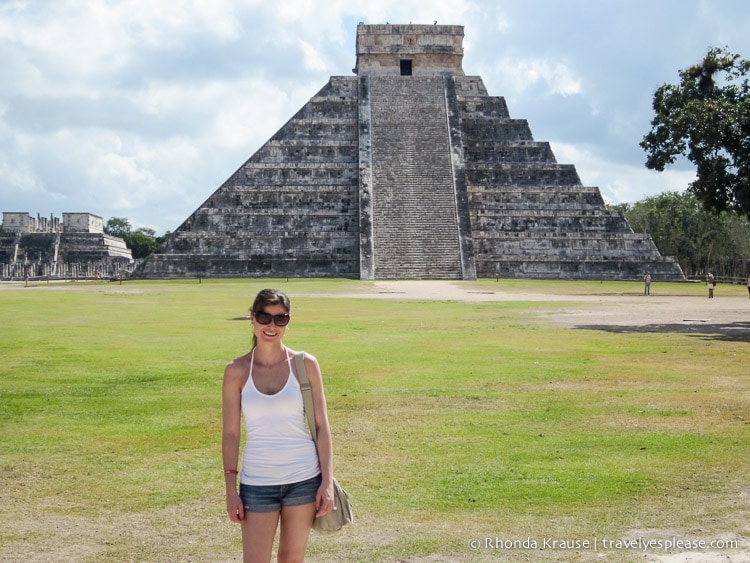
What’s Your Travel Style?- How to Decide What Type of Trip is Right For You
When trying to decide what type of travel is best for you, you need to consider a lot of different things:
- What is the purpose of your trip? Is it relaxation, adventure, to learn about history and cultures?
- What is your personality? Are you outgoing and enjoy meeting new people or are you more introverted and prefer exploring on your own?
- What are your interests? Do you enjoy water sports, art, music, history, culture, hiking, festivals, shopping, nature, wildlife photography?
- How do you like to spend your time? Relaxing or being active?
- What is your budget? Do you need to stretch your dollar or are you able to travel without worrying about expenses?
- How much time to you have? One week, two weeks, unlimited?
Your answers to the above questions will be able to point you in the right direction when it comes to choosing a type of travel that is best suited to you.
Types of Travelling- Choosing a Travel Style
Here is a list of some of the pros and cons of different types of travel. This list is by no means all-encompassing, but a mere starting point when it comes to choosing a vacation type that fits your travel style.
You may enjoying cruising if:
- You like to unpack your bags for the week and not have multiple accommodations during your trip.
- You enjoy a combination of relaxation and activity, or are travelling with people who enjoy varying interests. Cruises have a little something for everyone- shopping, shows, pools, fitness facilities, spas, dance classes, shore excursions etc. The larger the cruise liner the more activities there tend to be.
- You like having tour arrangements made for you. Purchasing a shore excursion tour makes visiting the port-of-call convenient and stress free.
- You prefer spending a short amount of time in a destination before moving on to the next place.
- You enjoy meeting new people. Cruises are a good way to meet people because you are around the same people for the entire duration of the trip. Faces become familiar and soon it becomes easy to strike up a conversation. This is especially true on small ships, like an expedition cruise to Antarctica .
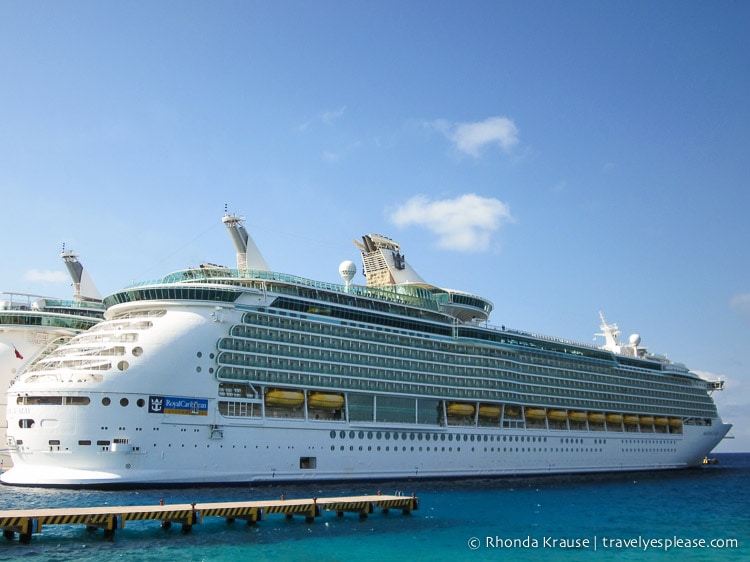
You may not enjoy cruising if:
- You like to travel deeply and want to have a lot of time to explore each destination.
- You prefer seeing sights over doing things. While cruises have loads of activities, you usually don’t get to experience too many ports of call due to the days at sea.
- You like a change of scenery. On a cruise (the Caribbean ones anyways) the only view you get is of water, for as far as your eye can see. River cruises offer more in the way of scenery.
- You prefer to be in control of what destinations you visit and for how long you are there.
- You like staying in spacious accommodations.
- You don’t want to worry about incurring extra expenses for drinks, snacks and meals outside the main dining room, shore excursions and internet access.
The All-Inclusive Resort
You may enjoy all-inclusives if:
- You like to unpack your bags for the week and stay put at one accommodation for the duration of your trip.
- You enjoy a combination of relaxation and activity. All-inclusives are great for enjoying the beach but also have various water sports and activities you can participate in.
- You like knowing exactly what your vacation will cost before you go. Food, drinks and most water sports are included in the price of the resorts, which makes budgeting for your trip a lot easier.
- You enjoy the convenience of having everything you need all in one place. Restaurants, shopping, nightclubs can all be found on the resort property.
- You like having tour arrangements made for you. Most resorts have an excursion coordinator through which you can easily book excursions to surrounding areas and attractions.
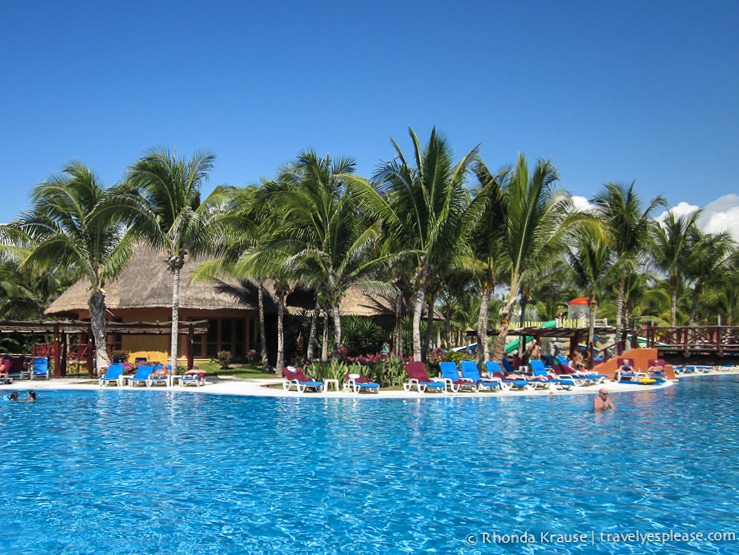
You may not enjoy all-inclusives if:
- You prefer seeing sights over relaxing on the beach. Going off the resort’s property will incur extra expenses and sometimes involve a lot of travel time.
- You enjoy vacations that are educational in nature. All-inclusives (at least the ones I’ve stayed at) don’t really do much to expose you to the local culture and history of the region.
- You like to experience a country in depth, not just see one isolated location.
The Coach Tour
You may enjoy a coach tour if:
- You want a worry free vacation with minimal planning. On a coach tour your transportation, accommodations, itinerary, entrance fees and even some of your meals are all taken care of for you.
- You want to visit a lot of places in a short amount of time. Coach tours often take you to multiple places in one day.
- You enjoy meeting new people. On a coach tour you will be with the same group of people the entire time, giving you plenty of opportunities to forge new friendships.
- You are new to travelling or are unfamiliar with the region you are travelling to. Having everything taken care of lets you enjoy your trip without the stresses of planning. Coach tours also usually have great guides that are there to help you with any questions you have regarding local customs, language and history. I’ve had some guides on coach tours that are marvelous storytellers and a wealth of information.
- You do not feel safe travelling alone.
- You like having a good idea what your vacation will cost before you go. You will have to pay for some of your meals but other than that there are not a lot of extra expenses, unless you decide to go on some of the optional excursions that coach tours usually offer.
- You enjoy a mix of time with the group and free time to explore on your own.
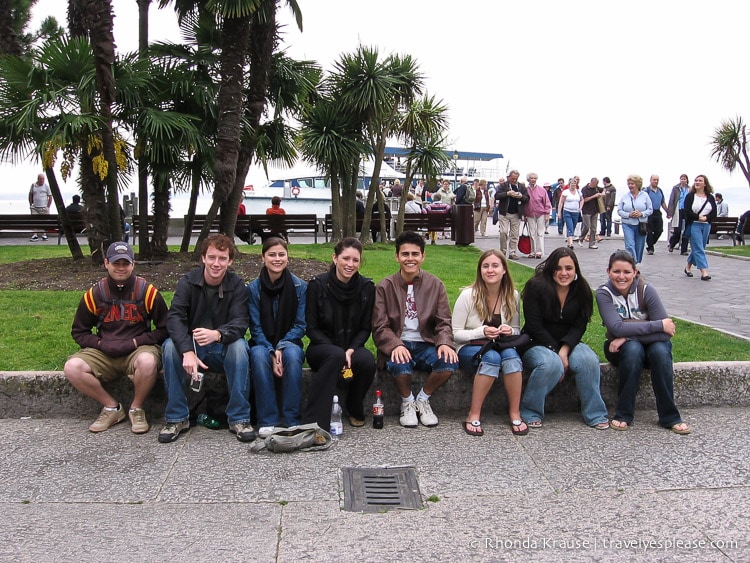
You may not enjoy a coach tour if:
- You like some control over your trip’s itinerary. On a coach tour you have to adhere to the time schedule set out for you. Also, you don’t have a say in what places the bus stops or doesn’t stop at.
- You like to spend a significant amount of time in a destination. Many coach tours can be quite rushed, spending only a few short hours in a place.
- You enjoy planning all the little details of your vacations- the sights, the restaurants, the hotels- you want to choose them all.
Independent Travel
You might enjoy independent travel if:
- You like to set the itinerary. Independent travel gives you the freedom to choose where you visit and what you see and do while you are there.
- You don’t like following a set schedule and enjoy flexibility. Travelling independently allows you lengthen or shorten your stay in a place as you wish.
- You don’t like being rushed and prefer to experience a place rather than just see it.
- You are an introvert and enjoy exploring on your own.
- You enjoy planning and making decisions.
- You like to visit places that are less well known and off the beaten path.
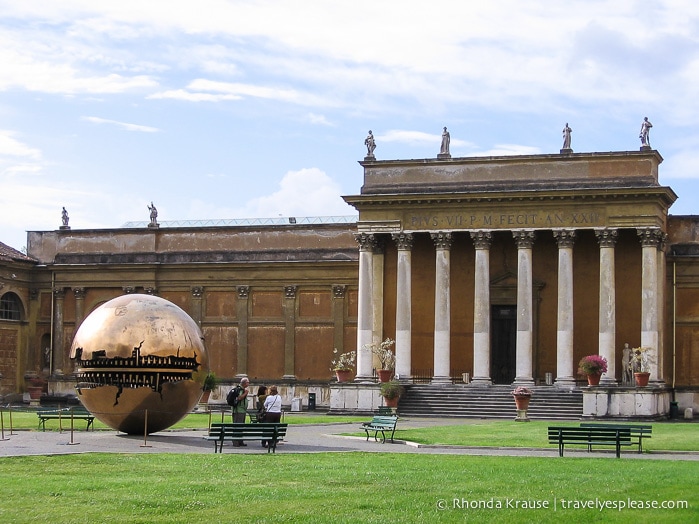
You may not enjoy independent travel if:
- You like having all your major costs (transportation, food, accommodation etc.) included in one price.
- You don’t want to invest time into planning and making travel arrangements.
- You enjoy having a guide present for the entirety of your trip.
What’s Your Travel Style?
So there you have it, a few options that are available to you when planning a vacation. Hopefully this helps you uncover what your travel style is before you go off on a trip that you may end up not enjoying. But remember, sometimes a certain travel style might surprise you. So get out there and give these a try and find out what your travel style is!
Travel? Yes Please
Discover Your Vacation Style: Exploring the Various Types of Travel
When it comes to travel, the options are as diverse as the destinations themselves, catering to different preferences and goals. The beauty of travel lies in its ability to offer something unique to every individual.
Each type of travel provides a fresh perspective and allows you to experience the same destination entirely differently. Whether it’s adventurous backpacking, luxury and indulgence, cultural immersion, solo exploration, group travel, culinary experiences, wellness retreats, or any other form, the goal is to enjoy yourself and discover something new.
Leisure Travel
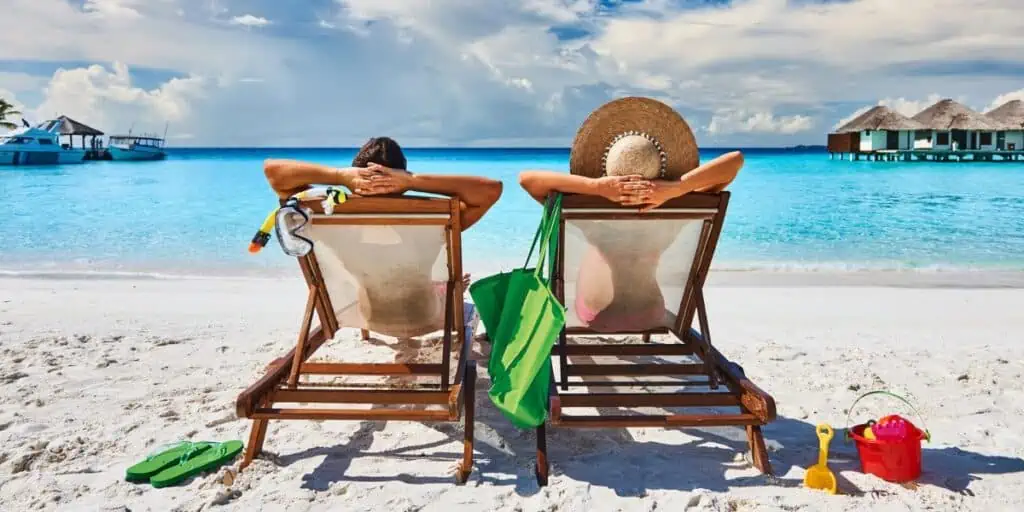
This is the standard type of travel most of us choose. It is the ultimate reward for our diligent work efforts or side hustles. Leisure travel revolves around the pursuit of rest and relaxation, allowing us to temporarily escape the rigors of our daily lives. It is when we can venture out to restaurants we wouldn’t typically visit, treating ourselves to delectable meals and exploring new culinary experiences . Additionally, leisure travel allows us to splurge on extracurricular activities, whether adventurous excursions, spa treatments, or cultural tours, further enhancing our overall enjoyment.
Luxury Travel

Luxury travel is the epitome of indulgence and personalized attention, offering pampering and exclusivity beyond traditional vacation experiences. It caters to those seeking a tailored and opulent journey, where every aspect of the trip is meticulously crafted to fulfill their desires and preferences. Whether it’s having a private driver, enjoying VIP access to attractions, or having a personal concierge attend to your every need, luxury travel ensures that your desires are met, elevating the overall experience of your destination.
Budget Travel
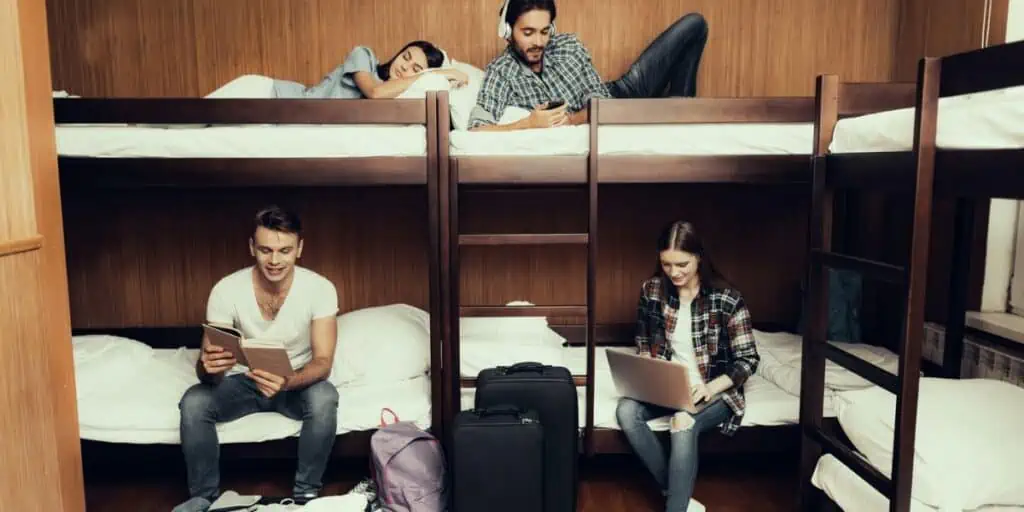
Budget travel distinguishes itself by strongly emphasizing cost-consciousness and being mindful of expenses throughout the entire travel experience. It involves meticulous planning and consideration of how much money you are willing to spend, allowing you to tailor your itinerary to meet your financial needs. The key lies in conducting thorough research to find the most affordable options. This includes comparing prices for flights across multiple websites and apps, seeking economical accommodations such as hostels or opting to stay with family and friends, and discovering low-cost or free activities to occupy your time.
Slow Travel
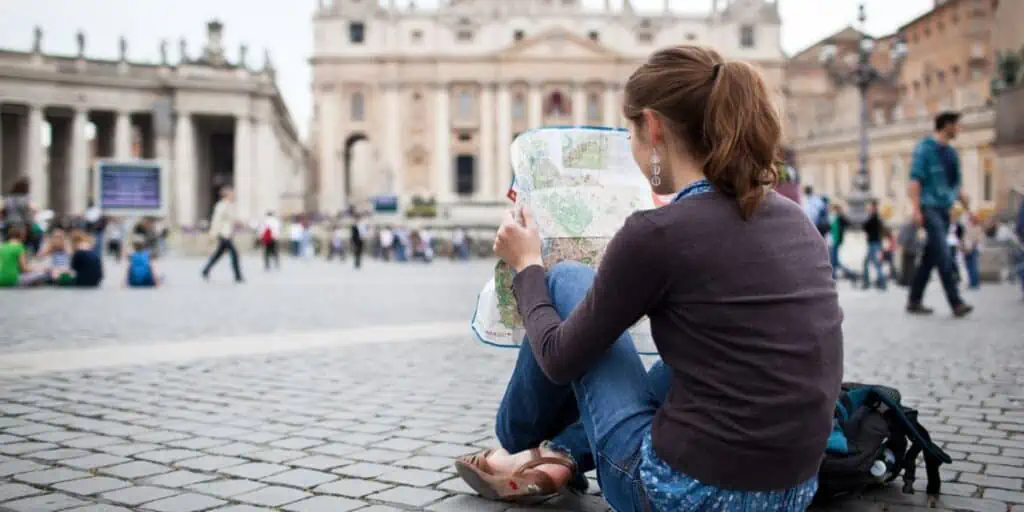
Slow travel is a mindset that prioritizes embracing the journey and immersing oneself in the experiences, emphasizing quality over quantity. It eschews rigid itineraries in favor of savoring each day as it unfolds, without the pressure to tick off a checklist of must-see attractions. This type of travel encourages a more profound exploration of a single destination, allowing for a more meaningful connection with the local community. By staying longer in one place, you have the opportunity to delve into the traditional customs, gain a deeper understanding of the local way of life, and forge authentic connections with residents.
Adventure Travel
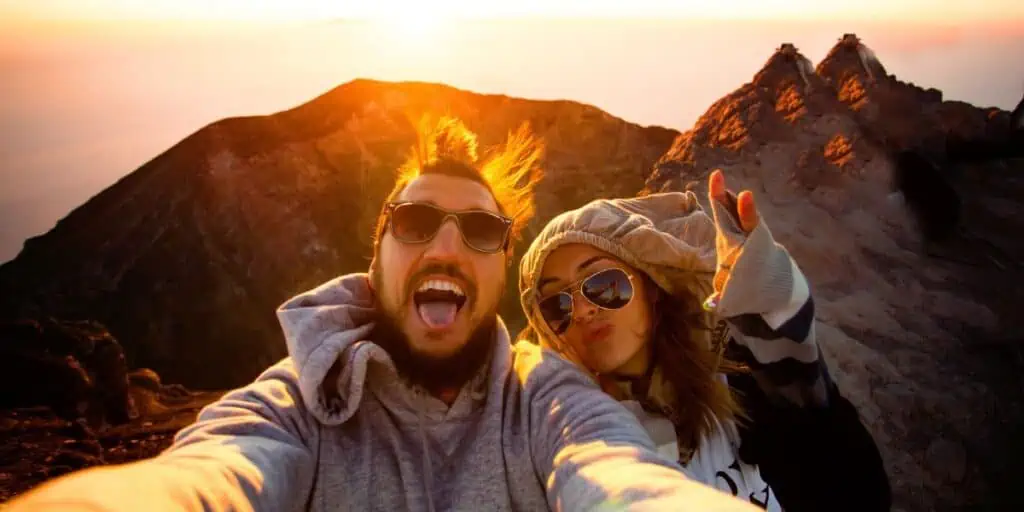
Adventure travel is all about stepping out of your comfort zone and seeking thrilling experiences that ignite your sense of adventure. It’s the perfect choice for those who yearn to try something new and exciting, something they wouldn’t typically do in their everyday lives. Adventure tourism revolves around engaging in physical activities that get your adrenaline pumping, pushing your limits, and providing a rush of exhilaration. Whether bungee jumping, rock climbing, white-water rafting, or embarking on a challenging hiking expedition, adventure travel takes you off the beaten path and introduces you to unique and fun-filled experiences.
Solo Travel

Solo travel is a transformative experience. It offers a much-needed break from the familiarity of daily life, allowing you to immerse yourself in new and unexpected adventures. The beauty of solo travel lies in the freedom it provides, both mentally and physically. With no one else’s agenda to consider, you have the liberty to shape your journey exactly as you desire. It is an opportunity for self-discovery, where you can uncover hidden depths and aspects of yourself that may have been overshadowed. The challenges that come with traveling alone can be intimidating, but they also serve as catalysts for personal growth and resilience.
Sustainable Travel
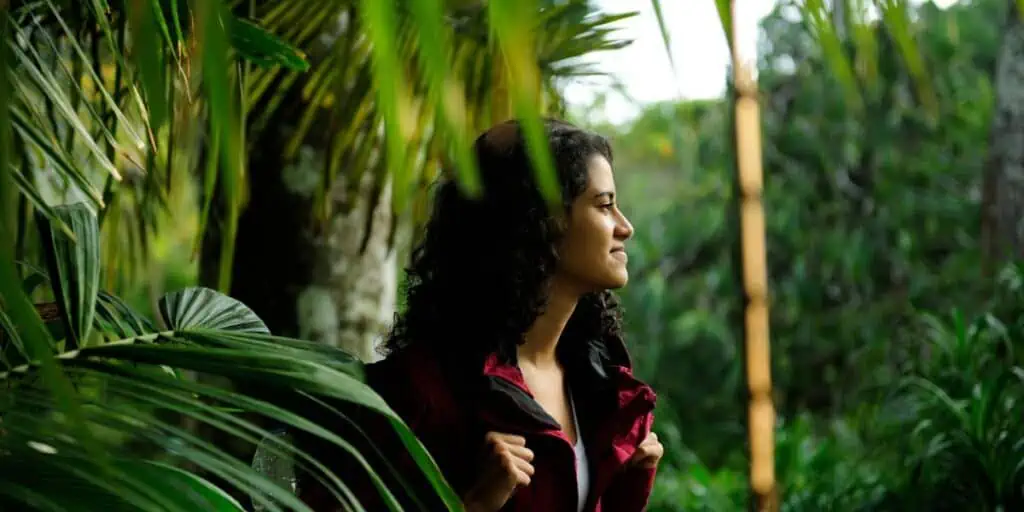
Sustainable travel offers a solution for those concerned about the environment and the negative consequences of travel. It prioritizes the preservation of the host country’s interests, safeguarding its natural attractions, cultural heritage, and local communities. By choosing to support local vendors and businesses for accommodations and purchases, sustainable travelers contribute to the economic growth of the destination while respecting its cultural values. They also take steps to protect wildlife and nature, being mindful of their actions and leaving minimal ecological footprints. Opting for slow or group travel options reduces carbon emissions and promotes responsible transportation.
Wellness Travel

Wellness travel is a unique form of travel that places emphasis on personal spiritual and physical well-being. It transcends the conventional notion of sightseeing and focuses instead on the transformative journey of self-improvement. Wellness travel aims to nurture and maintain one’s health and quality of life. Whether embarking on a yoga retreat in a distant land or engaging in spiritual ceremonies alongside Buddhist monks , wellness travel offers diverse experiences tailored to individual preferences. The underlying principle is to provide a break from the daily grind, allowing individuals to reconnect with themselves and rekindle the inner fire that may have dulled amidst life’s demands.
Nomadic Lifestyle
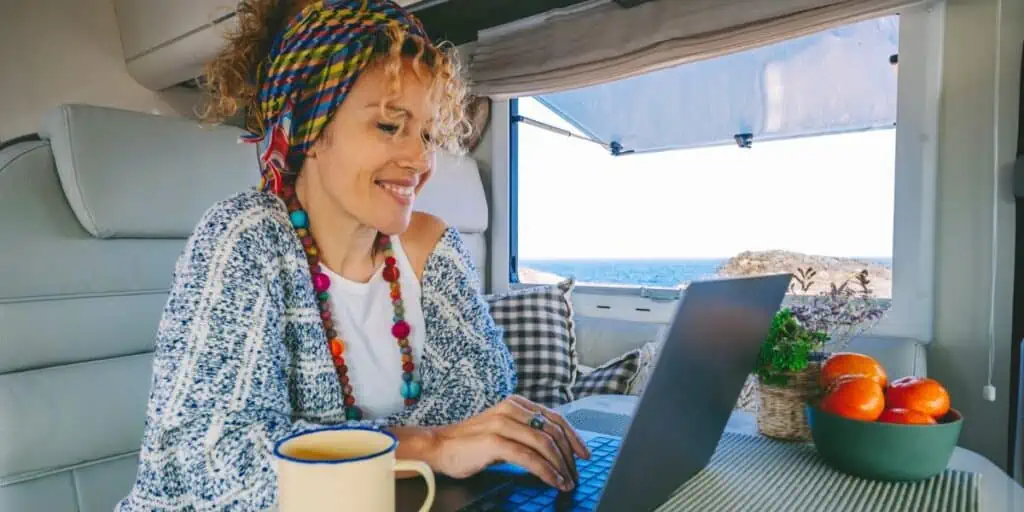
The nomadic lifestyle has experienced a surge in popularity in recent years, and it’s easy to see why. With the rise of online work opportunities, traveling and working simultaneously has become feasible, opening up a world of endless possibilities without breaking the bank. Many countries have recognized this trend and offer specific travel visas to cater to digital nomads. The appeal of spending a portion of the year in a new city or country, seamlessly transitioning from one destination to another while maintaining a steady income, is irresistible.
Bleisure Travel

Bleisure travel, the blending of business and leisure, offers a unique and advantageous approach to work-related trips. When you are on a business trip but yearn to add a vacation, bleisure travel becomes the perfect solution. Combining work obligations with leisure activities, this concept benefits both you and your employer. Firstly, it helps alleviate stress by allowing you to unwind and enjoy moments of relaxation during your trip. Additionally, it can be a cost-effective option, as you can extend your stay at your own expense, thus maximizing your travel experience without incurring extra travel costs for your employer.
Culinary Tourism

Culinary tourism has emerged as a popular and enriching way to travel, driven by the desire to explore and savor authentic cuisine from around the world. It goes beyond simply tasting delicious dishes; it delves into the deep-rooted history, culture, and traditions associated with each culinary experience. Each destination has its own unique style of cooking, ingredients, and flavors that reflect the local lifestyle and heritage—engaging in a local cooking class while traveling allows you to fully immerse yourself in the culinary experience. From learning about ingredient preparation to participating in group dining, every step becomes a journey of discovery.
Cultural Tourism
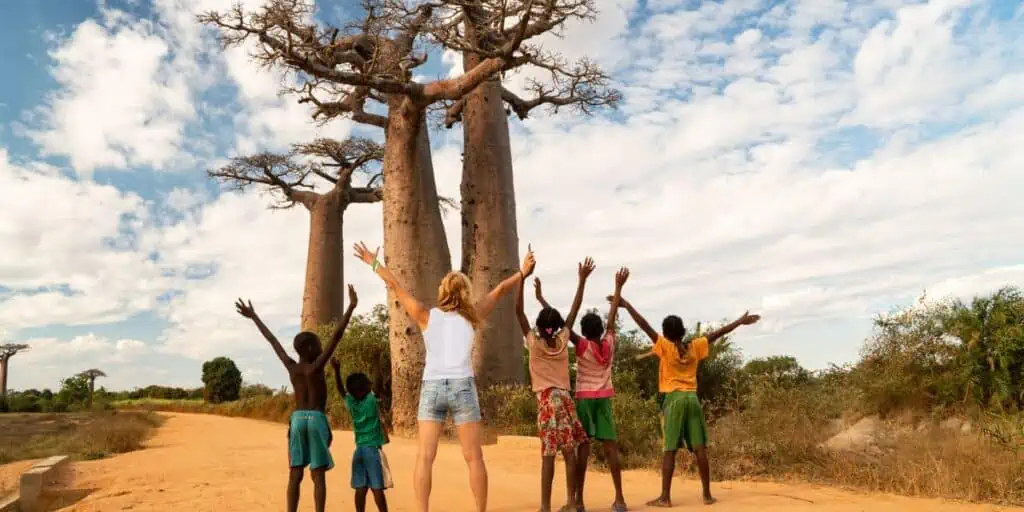
Cultural tourism is a transformative and immersive type of travel experience beyond mere sightseeing. It embraces the opportunity to fully engage with a different culture, shedding the confines of a typical vacation mindset. Instead, cultural travelers seek to understand, respect, and embrace the unique traditions, customs, and way of life of the destination they visit. This form of travel involves building connections with local people, learning the language, and delving into the rich history and heritage of the place. It goes beyond visiting tourist attractions and delves into the authentic fabric of a community.
Group Travel
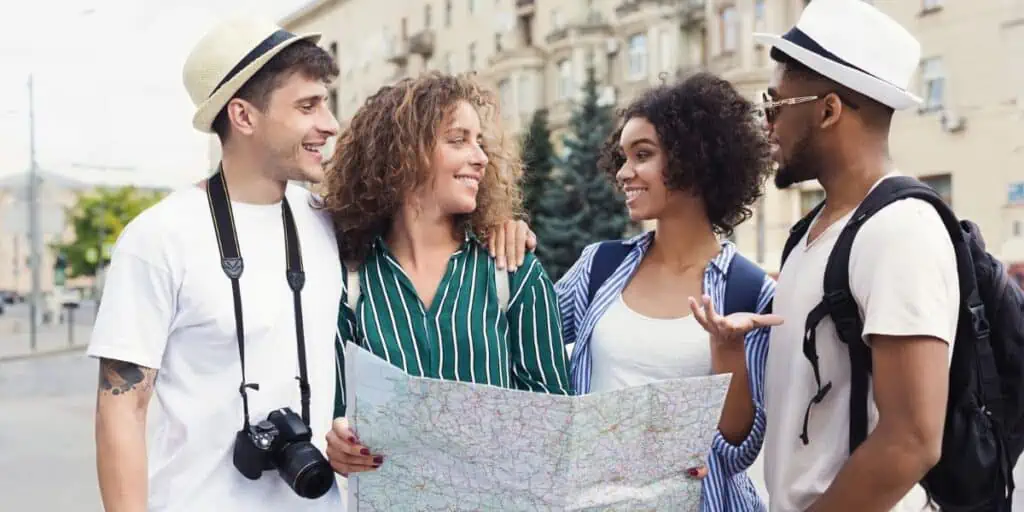
Group travel offers a truly enriching and enjoyable way to explore the world. The beauty of group travel lies in the opportunity to meet and connect with like-minded individuals from different parts of the globe who share a common passion for travel and similar interests. It combines the freedom of solo travel with the added benefit of companionship and camaraderie. Group travel allows you to embark on a packaged trip with a chosen itinerary, which takes away the stress of planning and logistics . The experience of traveling with others who are in the same situation creates a sense of community and support, making you feel more at ease in a new city or country.
Types of Travel Experiences
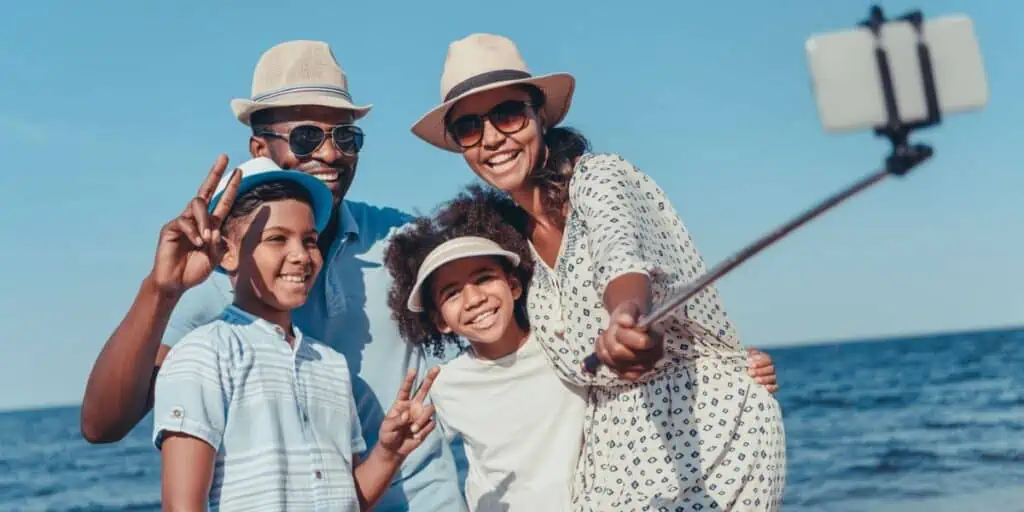
The beauty of travel is its ability to cater to diverse interests and motivations, offering a world of possibilities and experiences waiting to be explored. When choosing the best type of travel experience for you, the key is to embrace and embark on the journey that resonates with your desires and aspirations.
ABOUT THE AUTHOR
Nick is the founder of The World Overload , a personal travel blog. From here, he shares his and others' personal travel experiences, trip itineraries, popular cultural events, and suggested destinations for every world-traveling enthusiast. Nick wants to experience the most of what this world has to offer and hopes to bring you into this as well.

What’s Your Travel Style?
Traveling isn’t a one-size-fits-all kind of deal. And that’s the way it should be. What kind of traveler are you?

Luxury vs. Budget
Whether you’re a luxury or a budget traveler depends less on your financial circumstance than on your need to roll like a millionaire everywhere you go. The luxury traveler (recognizable by brand-name luggage and designer sunglasses) always consults the latest trends in tourism before planning a vacation, paying close attention to where the hottest celebrities have stayed in the past. With passport stamps from Milan to Singapore and everywhere in between, the luxury traveler knows quality is always better than quantity.
Budget travelers, on the other hand, takes an entirely different approach. Savvy instincts help them make price-conscious choices like looking for the cheapest hostels, hopping on last minute flight deals, and bartering with the locals for the lowest price on flea market crafts. They may not be pampered and polished, but that’s all the more natural for these low-maintenance folks.

Solo vs. Group
It takes a certain kind of person to go on vacation alone. You’ve got to be fiercely independent, comfortable in unpredictable situations, and super outgoing. However, solo travel can be one of the most rewarding experiences out there. It’s a chance to pursue creative goals, like writing a novel, starting a photography project, or mastering another culture’s cuisine. Or, just take it as a mini-escape from the pressures of everyday life and an opportunity to get to know yourself better.
But for those who prefer group travel, it’s a different story. Whether it’s a family reunion, a romantic getaway, or a girls-only trip, many hotels and packages cater to multiple travelers. And the advantages don’t stop there: what better way to spend time and money than with those you love most? The disadvantages? If you get in a fight, you’re stuck together for the rest of the trip.
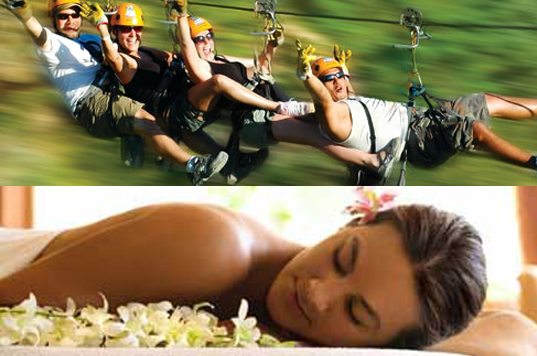
Adventure vs. Escape
Adrenaline junkies or thrill seekers, whatever you want to call them, are always searching for the next opportunity to jumpstart their heart. They can make any vacation more exciting. Planning to visit a big city? They’ll walk the streets as if they’re competing in a parkour competition. Going to the ocean? They’ll be the first to rent a surfboard and the last to leave the water.
But not everyone can keep up, and not everyone even wants to. Escape travelers prefer a quiet, serene spa to hang their coats and their worries at the door. Who needs a zipline when there are saunas to spend hours in and books to be read by the beach?
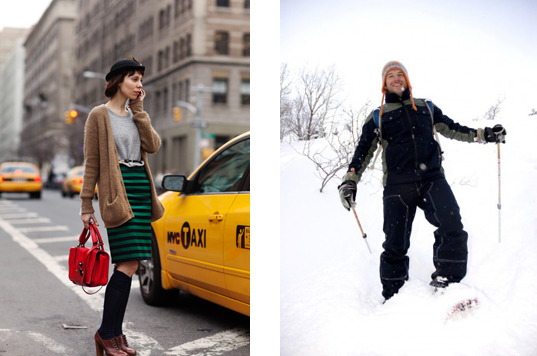
City vs. Nature
If you’re the kind of person that keeps their finger on the pulse of whatever is the latest cuisine, exhibition opening, or fashion trend, a mountaineering vacation seems like a laughable proposition. City folks prefer to be surrounded by people and culture, and for those who say that all cities are the same, well, they just don’t appreciate the subtleties in architecture.
However, some would rather “get away from it all” by returning to Mother Earth’s roots. Skiing and hiking are fun activities rather than daunting physical tasks for the tree-hugging outdoorsy type. For them, no city can compare to the indescribable experience of white-water rafting through a wooded forest.
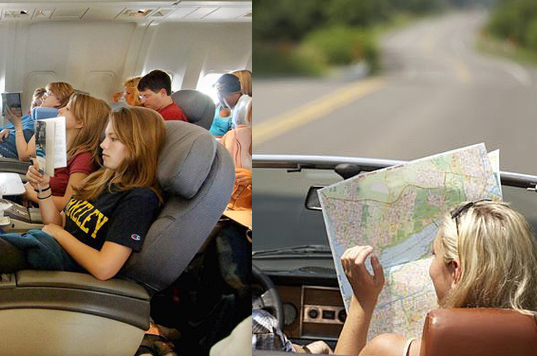
Airplane vs. Car
Flyers like to get things done efficiently. They’ll deal with airport security, higher costs, and uncomfortable takeoffs all for the sake of getting there faster. Who has time for traffic? If you’re a frequent flyer, the thought of spending multiple hours squished next to a stranger isn’t nearly as bad as sitting in a smelly car stuck behind a Hummer on the highway.
But for those who go by car, there’s a different set of priorities. Whatever happened to fun road games and family sing-a-longs? Even with the possibility of running out of gas or breaking down, there’s something nostalgic and romantic about heading out on a good old-fashioned road trip.

How to Identify Your Travel Style – FREE Templates
Not everyone is the same, especially when it comes to traveling. Everyone has their own unique travel style and it’s important for you to identify your personal travel style. Whether it has to do with money or accommodations, these are the things that shape your trips and how you experience traveling. This blog serves as your guide, a guide to ask yourself questions you might not think of to figure out what your style is and what to think of when planning your next trip. This is How to Identify your Travel Style with FREE Templates.
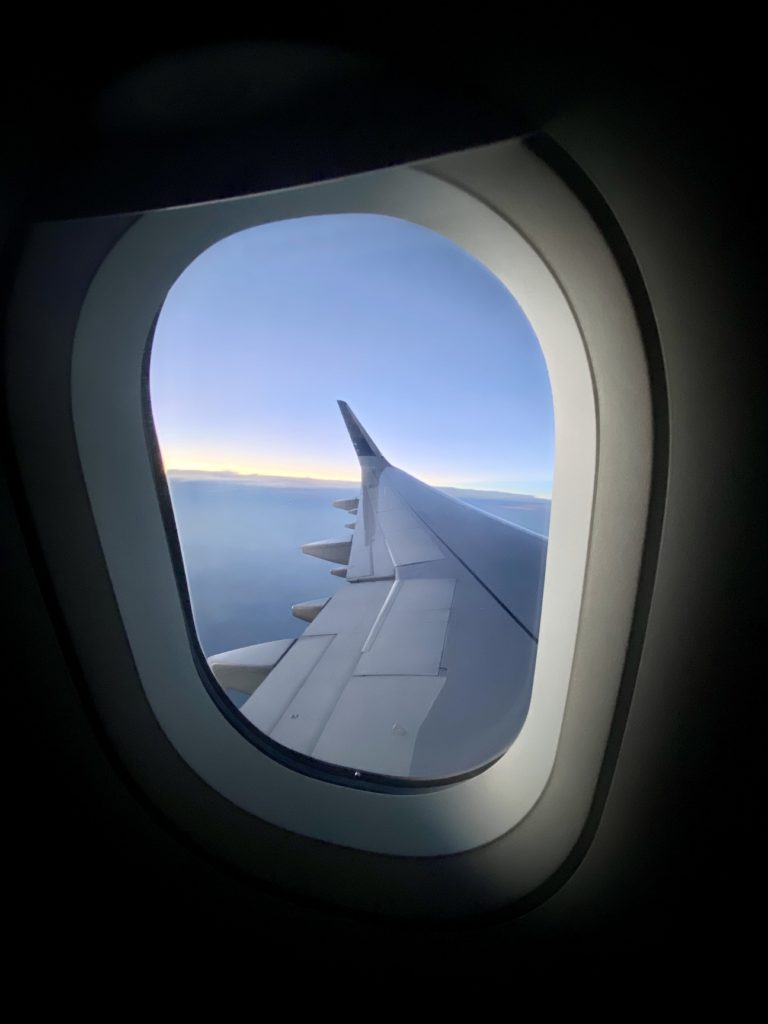
How to Identify your Travel Style
Knowing your travel style is sooo important to identify before going on trips alone or with other people. If you’re solo traveling, you can quite literally do whatever you want. While traveling with others, whether it’s one other person or a group of people, if you are not on the same page and your traveling styles don’t match, it can make it a not so fun and memorable trip. Either way, it’s great to know your travel style beforehand so you know how to spend your time and prepare accordingly.
Now I know two people are never the same and if you have a travel partner who is 100% on the same page as you, consider yourself lucky! But, overall when traveling even if you both have the same travel style, being flexible is important too!
A personal story of mine, one time my friend texted me about going on a trip. We’ve never traveled together before and I literally said “Yes, but I have some questions first…” and started asking away about what his travel style was like! This comes after many experiences of traveling with people who are not similar to myself.
This post may contain affiliate links and I may earn a small commission when you click on the links at no additional costs to you. You can read my full disclaimer here .
Topics to consider when deciding your travel style?
Other than deciding on where to go or if you like mountains versus beaches, there are a lot of other things to think about when deciding your travel style. Some topics I’ll talk about when deciding your travel style are money, food, accommodations, and activities.
I literally turned down a trip to Italy and Jordan because I knew my travel style didn’t match the group of people going. I knew I wouldn’t enjoy myself and I have no regrets whatsoever! Last minute, I ended up going to the Andalucia region of Spain instead with a friend from school and his roommate that I knew were more similar to my style and had an amazing time!
Begin identifying your travel style through This or That - General Travel Topics.
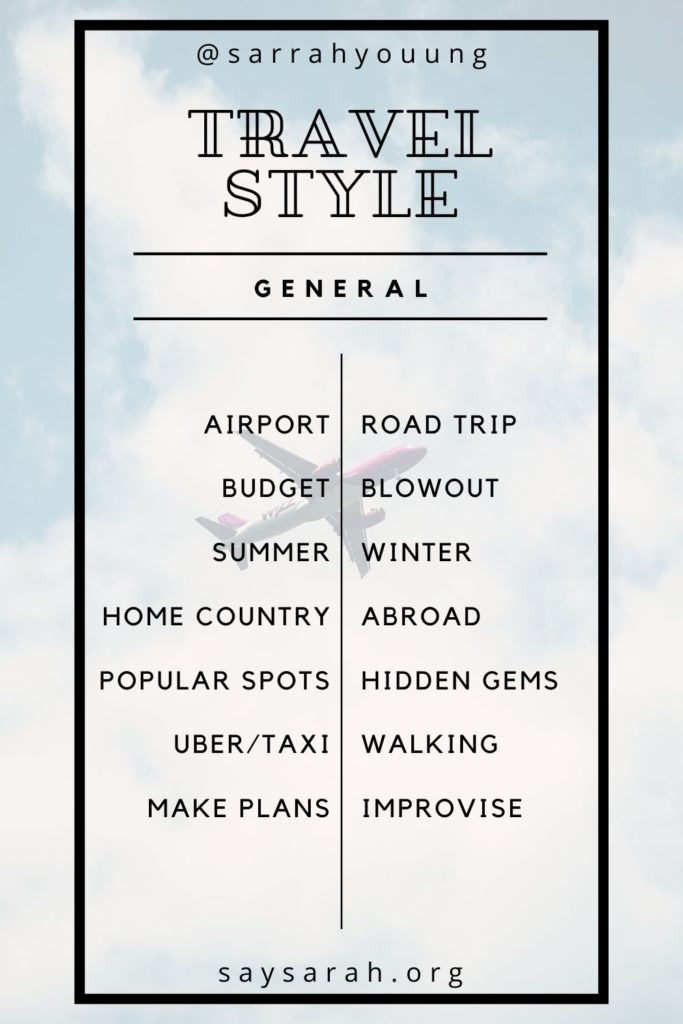
Travel Style Topic 1: Money
What’s your bank account looking like? Are you on a budget? Do you have no limits? Do you have certain priorities that you plan on spending your money on?
Money has to be one of the hottest topics when it comes to traveling. It can be quite an inflexible component if you’re on a limited budget and nearly impossible to adjust if others are not. Money can also dictate the remaining topics of your travel style. When I was in college, obviously my money was tight so I was on a budget and I wanted to only spend money on things I truly wanted.
Know your monetary limits and keep money in mind for the remaining components of identifying your travel style. Other than personal preference, money can affect other aspects of your trip that we’ll continue to discuss.
Travel Style Topic 2: Food
Would you consider yourself a foodie? Do you enjoy sitting down at restaurants? Or would you rather pick up something quick at a cafe and keep moving? Eat local foods or your average fast food chain?
When I’m traveling I personally hate sitting down at restaurants. One trip I was on we spent a day in a town and ended up sitting at a restaurant for nearly 3 hours. I was literally in misery. I believe there’s so much to see while traveling that I’d rather not waste my limited time while eating at restaurants. Now, I’m not saying I’ll never eat at a restaurant, but typically I’ll only do so at dinner to not waste daylight and not every night to not waste money. Also on top of the fact that if I eat a big meal I will 100% need a nap and again, I do not want to waste daylight or time at all for that matter.
When it comes to where to eat, I do enjoy eating foods of that particular area. Like in Spain, I love a nice jamon sandwich or pan con tomate and I’m fine eating a croissant every day for breakfast while in Paris. But, I also don’t mind eating at a familiar chain every now and then, especially when traveling for a long time. Nothing brings you home like some familiar food!
Begin identifying your travel style through This or That - Food Travel Topics.
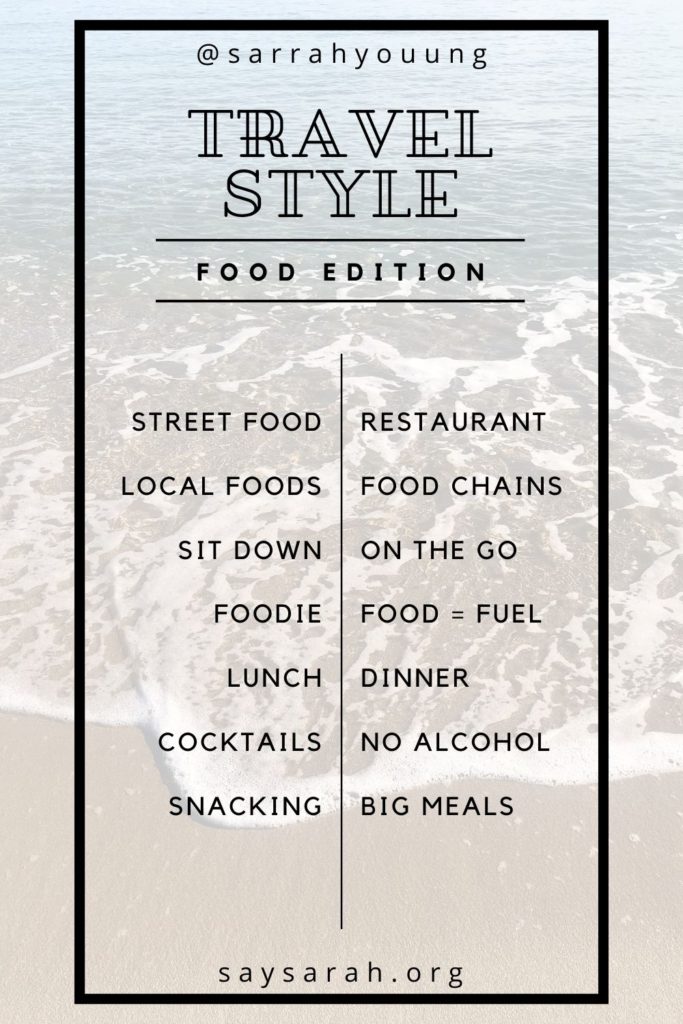
Looking for a European vacation? Check out this Ultimate Guide Rome!

Travel Style Topic 3: Accomodations
Are you a loyal member of a hotel chain? All inclusive resorts your thing? Would you rather AirBnB? Hostels? Staying somewhere amongst the locals or even a unique getaway spot?
Accommodations are nearly the last thing I care about when traveling as long as I’m safe and have somewhere to rest my head. While traveling I don’t plan on staying in my room very often because I prefer to always be exploring as much as possible.
In college my best friend and I were trying to plan a trip and she was all about all inclusive resorts with free food and alcohol and I just cringed. The last thing I wanted to do was go to a beautiful foreign location and never leave the resort. Not hating, but that’s not my style at all at the moment. Thankfully that trip never happened. I’m sure I would’ve had fun, but it wouldn’t have been truly a trip I wanted to do.
Typically when I travel I book with Hotels.com . You can earn 1 FREE night for every 10 nights you stay and get some of the best prices around!
What's your Travel Style? Accommodations Edition
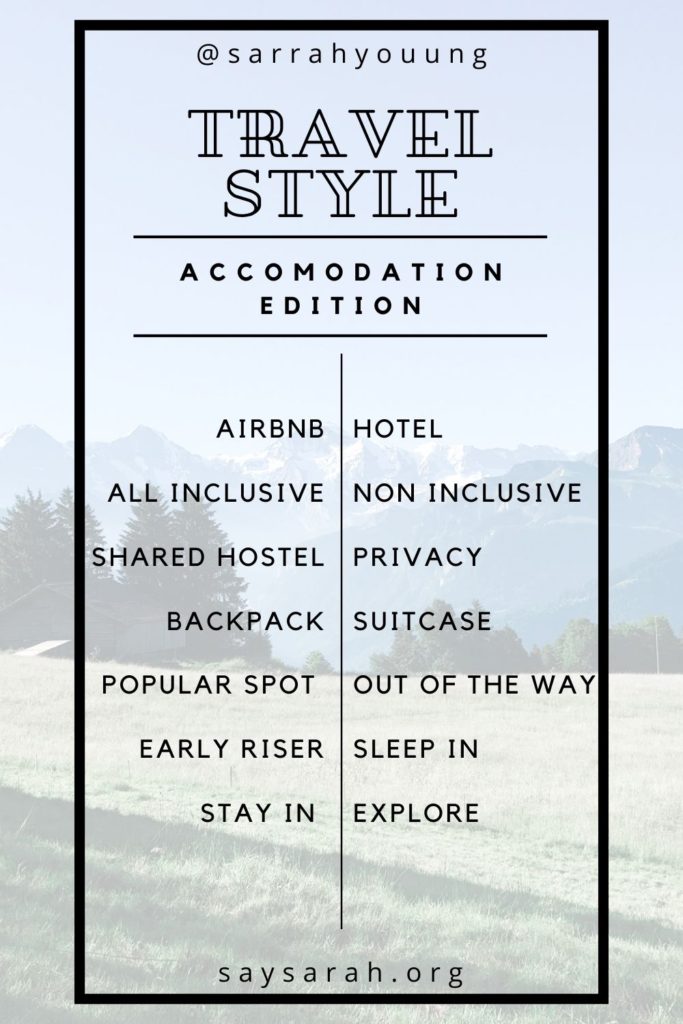
Travel Style Topic 4: Activites
Do you love doing guided tours? Learning about history? Maybe art? Visiting the most touristy spots or exploring like a local? Adrenaline activities like bungee jumping or paragliding?
Lastly, activities, what are you going to do while you travel? The location you choose definitely can alter what you’d like to do in which location. Another personal experience of mine was the person I was traveling with wanted to go to American styled bars while in a foreign place to party while I rather do more local things than party with more Americans – call me crazy lol.
While traveling, I also love to visit a popular museum and see the highlights. Would I be able to stay there all day and read every single plaque of every piece of art work? No, I would not.
Activities has to be the most complex topic when it comes to your travel style because it varies so greatly. Some people visit places and never leave the place they are staying. Others strictly do all the top tourist items. And some will live like a local and find the hidden gems. Very drastic differences so it’s important for you to figure out what’s important to you!
Last This or That - Activities Travel Topics
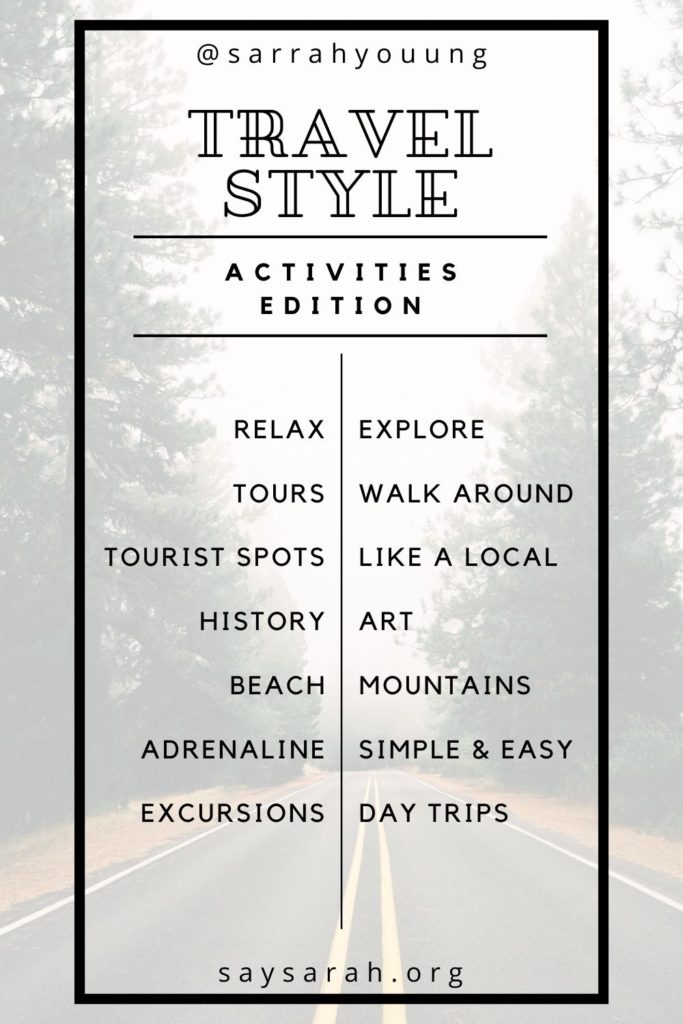
Read more about my travel style here.
What is your travel style.
After reading more on how to identify our travel style, do you feel you have a better idea on how you like to travel? Of course traveling can be about compromising or maybe even going your separate ways for the day. But, I find it best when you at least know someones travel style before going on a trip together so you know what to expect. What would you define as your travel style? Leave it in the comments below!
Share this post with your friends!
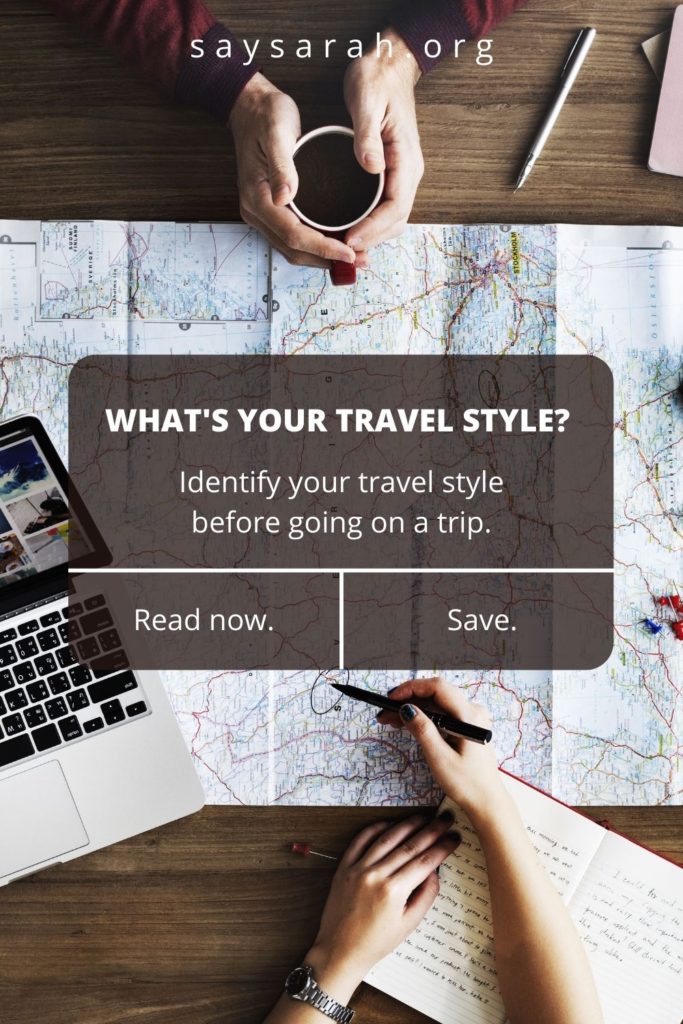
1 thought on “How to Identify Your Travel Style – FREE Templates”
The best information for any type of travelle.r
Leave a Comment Cancel Reply
Your email address will not be published. Required fields are marked *
Save my name, email, and website in this browser for the next time I comment.
Yes, add me to your mailing list

Pros and Cons of Different Types of Travel Styles
- In the City / Outdoors
How you travel can completely change your experience. We could all visit the same destination, but depending on travel style, we could see the same place with a perspective that’s worlds apart.

I know in the travel world, people can get all cocky and turn their nose up at certain types of travel saying that it’s not “real travel” unless you’re traveling like a local. It’s just too bad that the locals will not accept you as a local unless you actually live there for an extended period of time. Some cities will never accept you even if you lived there 10+ years.
Though we agree, it’s hard to experience the world fully if you’re only open to one type of travel, we don’t want to discriminate because there are pros and cons of every type of travel style. We think you should try them all before deciding what’s the right fit for you.
PROS AND CONS OF EACH TRAVEL STYLE
1. backpacker / budget traveler.
Trying to get the most bang for your buck and typically involves staying at hostels, couchsurfing, and finding the cheapest transportation and eats.
Example: My 6-month stint in Germany and Egypt with YWAM, where I lived out of a backpack (still need to blog about this).
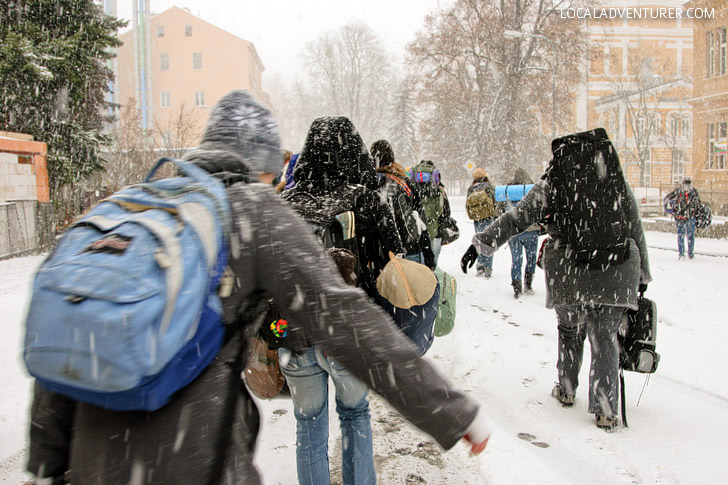
- Not having to save a lot to travel.
- Getting to see more for less $$.
- Hostels typically have a great community built around them.
- To make the most of it, you must have a flexible schedule.
- Risky to travel with a lot of expensive electronics (cameras / laptops).
- Some destinations won’t be conducive to budget travel.
- More planning involved.
- Less personal space.
2. Luxury Traveler
Traveling in comfort and style at the nicest hotels, restaurants, and with first-class flights.
Example: Our stay at the Somerset in Turks and Caicos
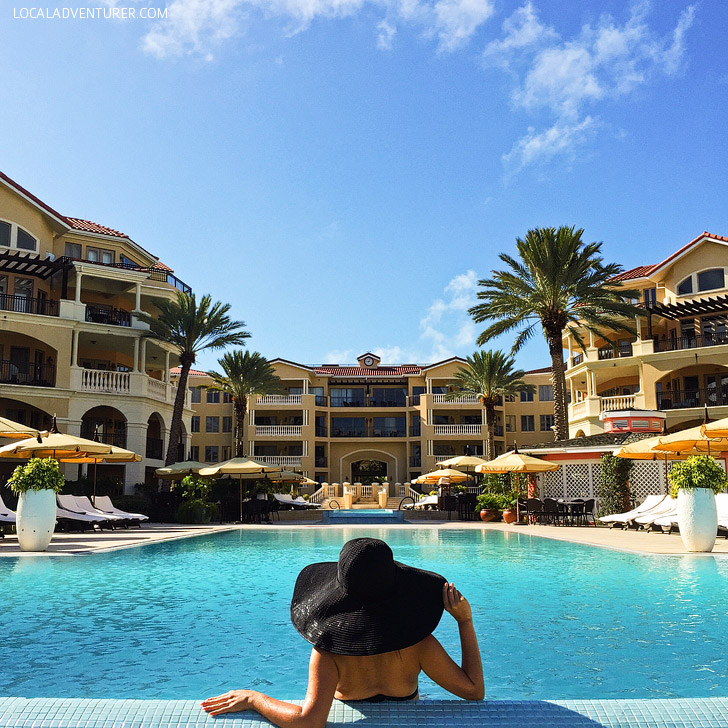
- Comfortable living quarters with plenty of benefits. Who doesn’t like getting pampered?
- Travel when it’s convenient for you.
- Will feel well rested and like a true vacation.
- Less sense of a community – most people like to keep to themselves.
3. Group Tour / Cruise Traveler
Joining a group / bus tour will help you see multiple destinations on one trip.
Example: We recently went to Spain , Portugal, and Morocco with Contiki .
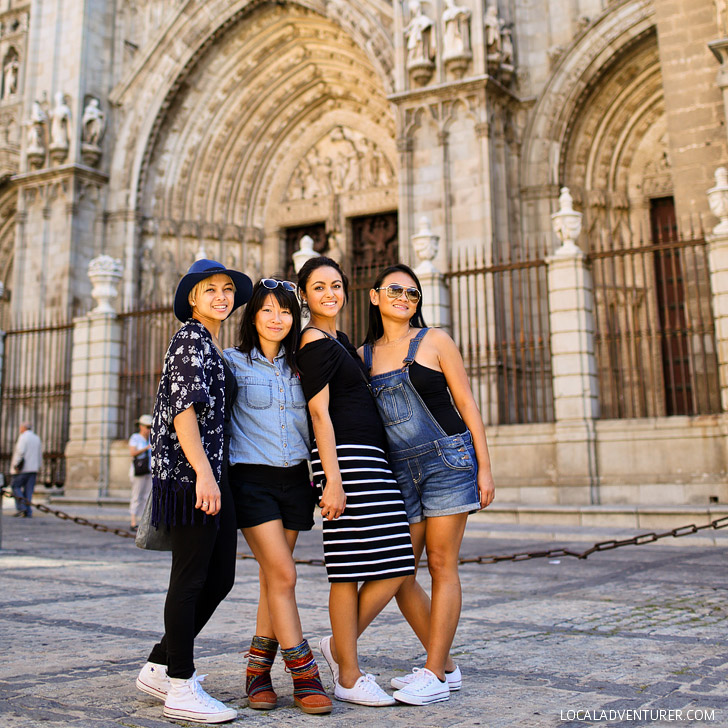
- You don’t have to worry about planning your day-to-day.
- Meet and bond with other travelers from all over the world and sometimes make lifelong friends (we did)!
- Get to see a lot in a short amount of time.
- No sleeping in. You’ll always be on the go.
- Activities are already set so there is less flexibility.
- You may not get to see everything you want to see.
4. Private Tour / Travel Agent Traveler
If you don’t have time to plan, it’s great to use the expertise of a travel agent to help you book your trip. Pick what you want to do, and let them figure out the logistics.
Example: Our trip to Galapagos Islands
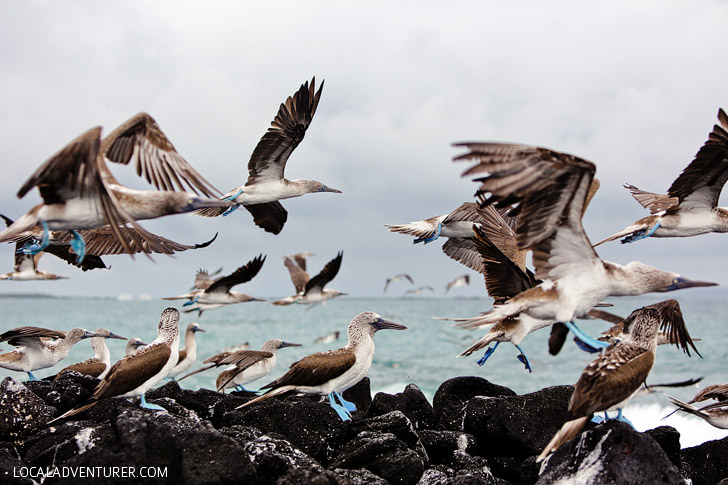
- Customized trips take you exactly where you want to go.
- Perfect for smaller groups.
- Don’t have to worry about transportation / logistics.
- Paying the extra fee to someone to help you book everything.
- You’ll stay within your group and rarely meet others.
- Have to decide what you want to do before you go.
5. Adventure / Active Traveler
This is for thrill-seekers who are up for an adventure and a lot of times involves hiking / backpacking.
Example: Our 4-day Hike on the Inca Trail to Machu Picchu
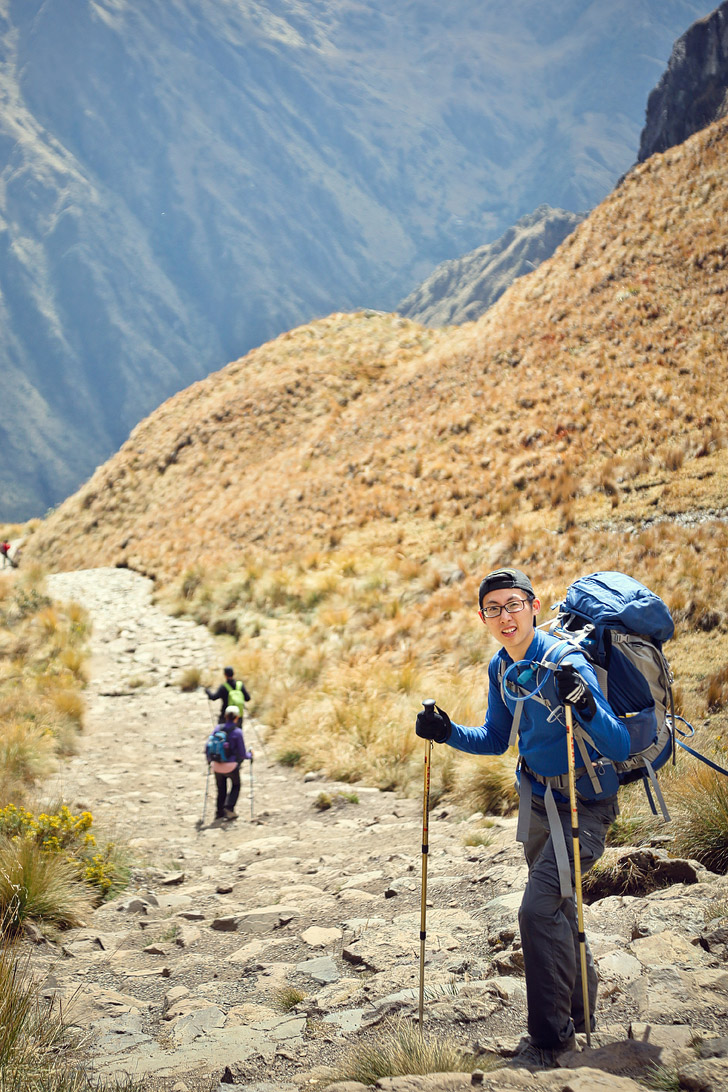
- Visit places, hikes, and areas that the majority of people wouldn’t visit.
- Challenge yourself and earn what you see!
- You get a greater appreciation of a place.
- You’re going to need a vacation after the vacation!
- The destinations can be difficult to get to.
- Can be weather dependent, so you have to be flexible.
6. Slow / Long Term Traveler
Staying in one destination for more than 6 months.
Example: We’ve been moving to a new city every year ( Atlanta >> Los Angeles >> Las Vegas >> San Diego >> Portland >> NYC ) to explore all its hidden gems.
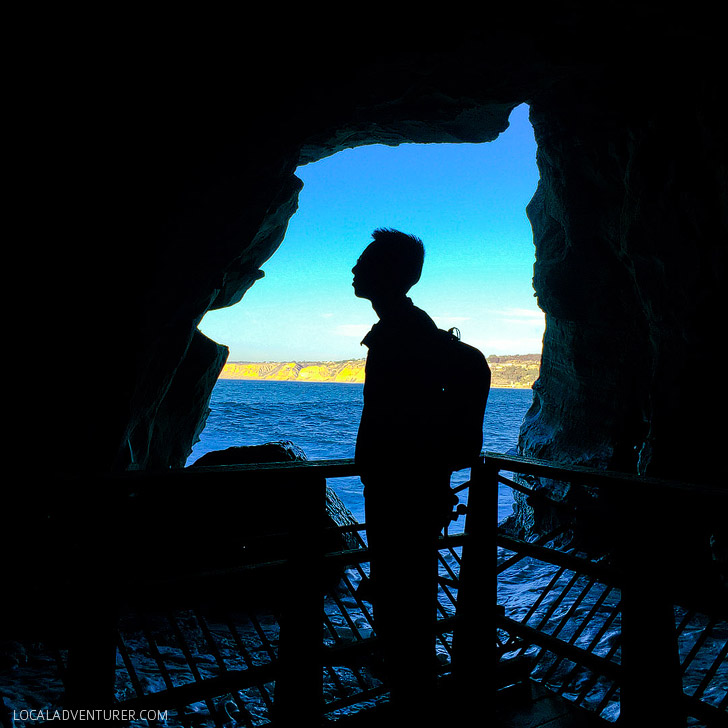
- Dive into to the local culture by becoming a local.
- Can go at a more relaxed pace and not feel rushed to do everything back to back.
- Get the chance to explore more hidden gems.
- Need a flexible job and way to finance a long-term trip.
- You won’t have your friends and community around, so you might get homesick.
- Experiencing different cultures for a short period can be eye-opening and even inspiring, but over time, you will find things that annoy you just like when you’re “at home”. Every place has pros and cons no matter how glamorous it may seem!
We also considered eco-tourism, voluntourism, foodie, and photography based travel, but we felt like most of them could be subcategories to the above. Right now, we lean mostly towards slow or long-term travel, since that’s what Local Adventurer is all about, but when we also go abroad, our travel style is a mix of all of them. We’ll also continue doing all these types of travel depending on the destination or what we want out of the trip. :)
Have you tried all these travel styles? Which one has fit you the best so far? Are there any we didn’t include?

Leave a Reply Cancel reply
This site uses Akismet to reduce spam. Learn how your comment data is processed .

Travel Glossary: 100+ Terms, Acronyms & Definitions You Need To Know
This travel glossary contains more than 100 of the most common terms and acronyms you are likely to hear in the travel industry.
The travel niche has its own terms, abbreviations, and definitions.
As it can get complicated to understand them all, we created this complete travel glossary.
You can either click on:
- A letter
- Ctrl + f to use the search function
Note that we are still working on this glossary and we’ll update it frequently.
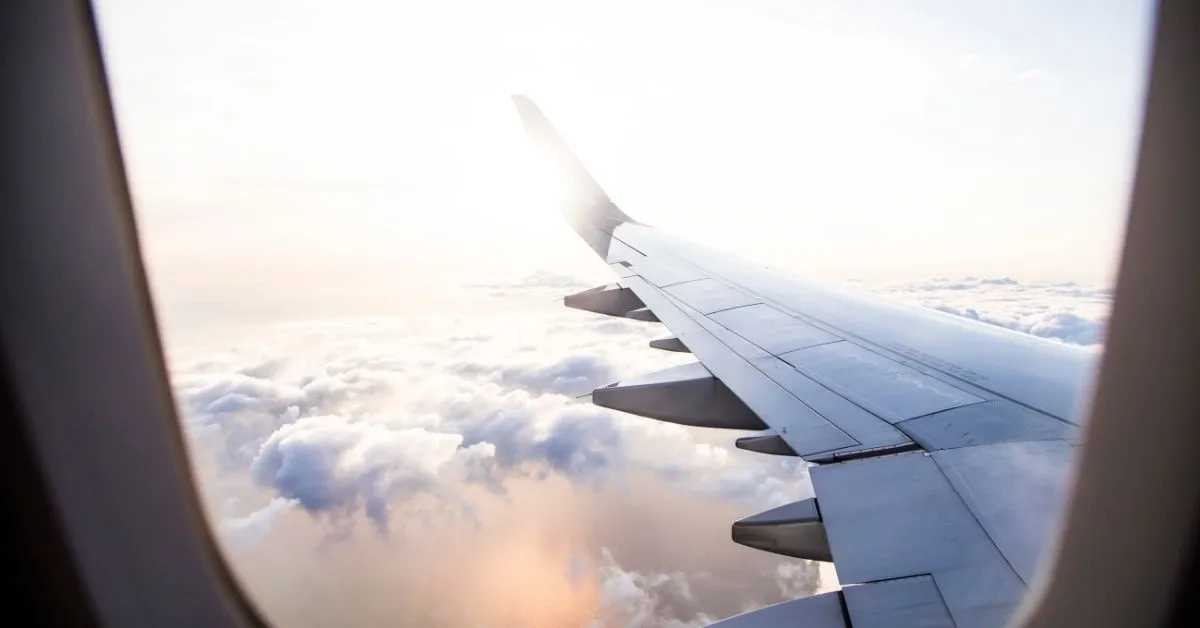
Abbreviation for American Airlines.
A Broken Backpack
A travel blog about long-term travel, adventure travel, budget travel, and more. You’re currently reading abrokenbackpack.com. At first, our blog was targeting backpackers and long-term travelers. Over the years, we have expanded our content with more travel tips for everyone.
Abbreviation for Air Canada.
Usually, an option that can come with an extra cost. Examples: optional luggage, optional meal.
Abbreviation for Air France.
Abbreviation for Air India.
Airalo is an online eSIM store that allows you to purchase eSIMs (digital SIM cards) in 190+ countries and regions around the world at affordable prices. Learn more about eSIM cards for travel .
An organization that provides air transportation.
A set of buildings, facilities and runways that are made for take-off, landing, and plane maintenance.
Airport codes
A combination of 3 letters is used to identify a specific airport. Examples: YUL identifies the airport in Montreal city.
Airport tax
Costs that an airline has to pay for departure and arrival in airports. These can vary from one airport to another and are usually included in a flight ticket price.
Practice in which you can order individual items from a menu instead of a set meal.
All-inclusive
A vacation that includes all the essentials (usually accommodation, food, and drinks). We commonly refer to an all-inclusive holiday or an all-inclusive resort.
An association or union between countries or airlines. Examples: Star alliance is an airline association regrouping several major airlines that collaborate to offer more flight connections and smooth stopovers.
Abbreviation for Aeromexico Cargo.
Abbreviation for Alaska Airlines.
Abbreviation for Royal Air Maroc.
Availability
The number of hotel rooms, or seats remaining.
Abbreviation for Finnair.
Abbreviation for Alitalia.
A bag that you use to carry things on your back. Usually large enough to carry all your things when you travel. Synonyms include “packsack” or “rucksack”.
A traveler or hiker who carries their belongings in a backpack.
Backpacking
A travel style that includes travels or hikes with a large backpack. Commonly, backpacking is a way to travel on a budget. The traveler may hike and camp outside for multiple days, or stay in hostels during their travels.
The basic cost of an airline ticket. Usually, this fare doesn’t include extra fees, taxes, or surcharges.
A bed and breakfast (often shortened to B&B) is a small hotel that offers overnight accommodation and breakfast.
Black Friday
A Friday at the end of November when you’ll find crazy travel deals on airfares, hotels, Amazon, etc. You can stay up to date with Black Friday deals here .
Step in which passengers are getting into the airplane. Usually, the airport staff calls passengers divided into different zones to board the plane.
Boarding pass
A paper ticket or a mobile ticket issues after check-in that allows you to board the plane.
Booking.com
An accommodation travel booking website with worldwide coverage comparing hotels, hostels, apartments and car rentals. You can book your hotels easily on Booking.com .
Booking number
Also known as a reservation number – a unique code including letters and numbers that confirm your reservation.
Bucket list
A travel expression used to define a set of destinations to visit or things to do in a country.
A bus travel booking website with worldwide coverage comparing bus route fares. You can purchase bus tickets on Busbud .
Business-class
A section that is usually between the first class and the economy class. The business class provides more amenities and services than the economy class. You can find a business class on planes or trains.
A cabin in a plane is the space inside the plane where passengers sit. A cabin in a ship is a room where a passenger sleeps.
Van that was designed for sleeping and road-tripping. Some campers prefer to sleep inside a van than in a tent. Also known as a camper van.
An activity that involves sleeping in a tent.
A captain in a plane is the pilot.
Carry-on baggage
A piece of luggage that you can bring along on the plane cabin. Usually, you’ll put this luggage in the overhead compartment or under the seat in front of you.
Checked luggage
A bigger piece of luggage that you don’t have access to during the flight. Usually, you’ll drop off your luggage at the airline counter before you go through security and customs.
A confirmation of your presence on a flight, train, or bus. Usually, you can check-in online or directly at the airport, bus station, or train station. Once the check-in is completed, you’ll get a boarding pass which can be issued electronically or on paper.
It can also be used in hotels. In this situation, the client goes to the hotel reception, presents identification documents, and receives a key to their hotel room.
A client leaves a hotel by bringing back the key on time at the hotel reception and paying for any remaining fees.
It’s a synonym of a bus.
A hotel staff member who helps guests organize transportation, reservations, or any special requests.
Connecting flight
A flight that includes a stopover and as a result, the passenger must change aircraft.
Culture is a shared system of symbols and meanings that allow people to communicate and interact with one another. It includes the customs, traditions, and values that are passed down from generation to generation.
Custom Tour
A custom tour is a personalized experience that is tailored to your specific needs. A custom tour can be created for any location, and can be customized to include any number of activities or attractions.
Cyber Monday
A Monday at the end of November or early December when you’ll find crazy travel deals on airfares, hotels, Amazon, etc. You can stay up to date with Cyber Monday deals here .
Direct flight
A flight that goes from an origin to a destination without stops, or connections.
A deck is a floor on a ship. Some cruise ships can have multiple decks.
Destination
The final stop on a travel itinerary.
Type of rooms where you’ll find several beds or bunk beds. Usually popular in hostels because of their cheap rates.
Double room
A hotel room that had two double beds and that can accommodate between 2 and 4 people.
Exemption from import taxes. For example, in an airport, there’s a duty-free shop area where you won’t need to pay import taxes on products.
Early check-in
Early check-in is when you check in to your hotel before the check-in time.
Economy class
A section of the plane, bus, or train, with basic services and lower fares.
Electronic boarding pass
A virtual boarding pass that is usually on a mobile phone.
Another word for expatriate. A person who lives in a different country temporarily or permanently.
First class
The class with the most services – usually comes with more space, better meals, and premium services.
A fjord is a long and narrow inlet of the sea, usually flanked by steep cliffs.
Frequent flyer program
An airline loyalty program that allows you to collect points and transform them into vouchers or rewards.
G-Adventure
Adventure travel company that organizes small-group tours, expeditions and safaris around the world.
Area and door where passengers board their flight from or deplane at their arrival.
An establishment that provides accommodations to travelers.
Holafly is a website that allows you to purchase eSIM for your travels. You can read our complete Holafly review to learn more about it.
A budget accommodation offering shared dorms and private rooms. Very popular amongst budget travelers, backpackers and young travelers.
A popular airport where many airlines organize connecting flights to smaller destinations.
Immigration
An area where a traveler must present travel documents like their passport or visa in order to enter the country.
A plan, or route designed for a trip, usually in chronological order.
A feeling of tiredness felt by a person after flying across different time zones.
King-size bed
The biggest bed size there is.
A period of time between transportation connections, or stopover.
One part of a journey. For example, one flight out of a 3-flight route.
A small house or a part inside a large house where travelers sleep. Usually, it’s a synonym for guest houses or hotels.
The hotel is located next to the main roads and that is made for road trippers.
A vehicle that is designed for mobile living accommodation. For example, RVs, campervans, campers.
A traveler or passenger that doesn’t show up for a flight, hotel, or reservation without canceling the booking.
Point of departure.
Overbooking
A popular practice in which airlines sell more seats that they have available to compensate for no-shows. Unfortunately, this practice can create problems if all the passengers show up.
A document issued by a government that includes information about the identity, nationality, and visa of a traveler.
A word used as a synonym for passenger, mostly used in the travel and the tourism industry.
When staying in a hotel, a traveler can request a quiet room. Usually, this room is isolated or is in a quieter area.
Reservation
Action taken to book a flight, activity, or hotel room.
An area designed for massage, hot springs, steam baths, or saunas.
A building or area inside an airport. For example, an airport can be divided into multiple terminals so that passengers can know where their departure or arrival gate is located.
Moving to a better class of service, or accommodation.
A stamp or a sticker in a passport allowing you to enter a country for a specific amount of time.
Documents you can use to exchange for goods, accommodation, or services. Usually, the payments for these good, and services has already been made.
Synonym of travel in the French language.
A list of potential travelers that are not confirmed yet.
A software designed for digital nomads and online entrepreneurs who have a business in Estonia.
An expression used amongst young people that means You Only Live Once.
An establishment that displays, studies, and rescues wild animals.
MY TOP RECOMMENDATIONS
BOOK HOTEL ON BOOKING.COM
BOOK HOSTEL ON HOSTELWORLD
GET YOUR TRAVEL INSURANCE
LEARN HOW TO START A TRAVEL BLOG
LEARN HOW TO VOLUNTEER ABROAD


How to Define Travel: Which Type of Traveler Are You?
What is travel? This is the eternal question. The differentiation between “tourist” and “traveler” has been made, and “travelers” frequently stick up their noses at “tourists”, while “tourists” don’t really understand what “travelers” are trying to accomplish.
Vagabondish is reader-supported. When you buy through links on our site, we may earn a small affiliate commission. Read our disclosure .
The Great ‘Tourist versus Traveler’ debate aside, the world of long-term traveling isn’t as clear-cut as it may appear at first blush.

Who “Travels”?
There seem to be a number of people who plant themselves in the traveler category: those who work abroad, those who take sabbaticals or longer vacations, and those who live a nomadic lifestyle. Often travelers will manage a combination of these options too.
Sabbaticals/Long Vacationers
Those who fall into this category make traveling a priority in their lives. They work like dogs at home, sometimes living like monks and saving as much money as possible. Then — off on an adventure! Six months in South America, three months in Australia and New Zealand, or a year in southeast Asia.
During that time, these travelers pack a lot into their trips. Staying in hostels most of the time and cooking meals instead of eating out , expenses are often minimized to extend the travel dollar.
Trips are generally well-planned, with enough flexibility to take advantage of unexpected side trips, changing plans to travel with new friends, and incorporating necessary down time to relax or enjoy a particular place with a good vibe.
Those Who Work Abroad
In these times of globalization, it is rare to encounter a household without the internet. Email is an accepted (and often preferred) method of communication, blogs are prolific, and many people get all their information from the web. Not to mention the ability to shop for anything, pay bills, and operate small to large businesses in cyberspace. (Heck — you’re reading this article online; I’m preaching to the choir)!
So those who have the ability to make a living without having to go into a physical office can hang their hat wherever they wish.
There are also many people who travel and work abroad by teaching (English being the most common subject, but outdoor education and a variety of other topics are gaining popularity), or by being professional tour guides, scuba dive masters, or working in the tourism industry in general.
Working abroad can get sticky in terms of taxation issues and work visas, so opportunities to get jobs in foreign countries can be limited or difficult to land. Even cyber-jobs can open up a can of worms at tax time, so before you jump on a plane to work abroad, it is prudent to consult a tax professional.
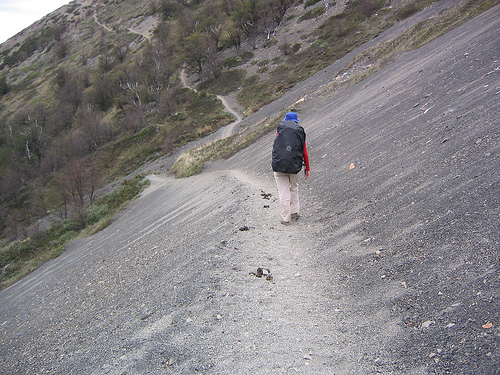
People living nomadic lifestyles take travel to new levels, and often are a combination of the two above types of travelers. There are a variety of people with different backgrounds and stories, having led them to their nomadic approach to life. Some nomads don’t even leave their own country; they simply manage to drift from job to job and city to city, and enjoy the diversity and variety of not staying in any one place for more than a short while. (These people may or may not even identify themselves as travelers).
Other nomads yet are known as “Trustafarians”; trust-children who have inherited wealth, don’t have to worry about finances, and can wander the world experiencing their own adventures.
Nomads come in many ages, shapes, and sizes, and tend to be a breed all their own. Some would say that to be a nomad is more of a state of mind than a way of life, and I agree.
So … Who is the Real Traveler?
Within these wide definitions of travelers, there can be some dissension among the ranks.
Many people who take long vacations/sabbaticals (vacationers) consider themselves to be a true breed of traveler, because they dedicate their time and energy solely to traveling when they’re on the road. They aren’t distracted by the need to earn a living, sidetracked for example by teaching English so many hours each week that they can barely lift their heads on the weekends much less see what their location has to offer. They also feel they can appreciate their trips to a larger extent than their nomadic friends, since they’re working with limited time and will dedicate all available funds to squeeze everything they can out of the trip.
Those who work abroad in turn plead their own case for being true travelers, saying you don’t know a place until you live with the locals; drinking their water, eating their food, working shoulder to shoulder, and sharing in their celebrations and tragedies. You can’t do this on a vacationer’s timeline, and nomads may not appreciate where they are if they don’t have direction to begin with.
Those who live nomadic lifestyles might preach a similar mantra as those who work abroad. Without ties to anything, they have the ultimate freedom to go where the wind takes them, allowing them to experience the full spectrum of culture — the underground, as well as what the tourist sees. Nomads who don’t have to work abroad would say that having to work saps your ability to enjoy where you are, and the vacationer misses so much for all the touristy stuff they’re packing into their trip.
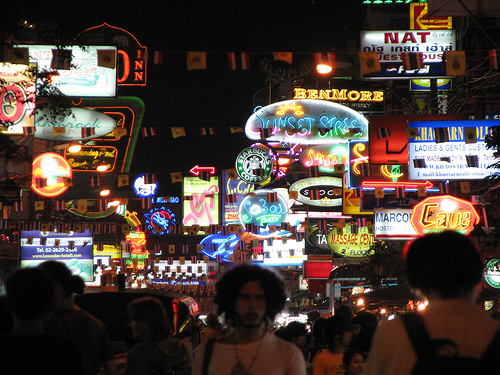
What About Hybrids?
Personally I am a traveler who plants roots. I am a Professional Hobo, and my trip is one of no fixed duration and many fixed addresses. As far as the categories of traveler above, I am a combination of the “work abroad” and “nomad” traveler. I have money stashed away from my years in business so I can roam free to a point, but I also make a modest living on the internet and tend to sequester myself to work in my room no matter where I am.
To stretch my travel dollar even further, I like to trade part-time work for accommodation , in order to travel in a sustainable manner, and to allow me to take the time to live, drink, eat, and work shoulder to shoulder with locals.
Drawbacks to my choice of lifestyle have been numerous. I try to live frugally and so I don’t always do some of the touristy things a vacationer might do, which occasionally leaves me out of the loop as to some of the reasons a place is attractive to visit. I also have been known to bury my head in working away on my laptop and wonder where the week went. Between working for accommodation and working modestly for a living, some would argue that I traded one “rat race” for another.
But there are benefits to my lifestyle too. I now have friends (in some cases very good friends) from all over the world. Not only does this give me a place to stay in many desirable locations when I visit, but it is enriching to relate with people from a variety of different countries and cultures. I can also draw on the benefits of both the working traveler and the nomadic traveler, and because of the extra cash from working I can even take advantage of the odd vacationer’s extravagance.
No matter what type of traveler you are, cultural immersion, adventure, and lots of amazing stories are definite perks of having the right attitude on the road. If you are open to seeing new places, meeting new people, eating new foods, and experiencing new adventures, then no matter what your style is, you’re a Traveler in my books.
To the locals, they are all tourists.
People travel differently at different times – they may take a year’s sabatical then go back to a 9-5 job, in frustration go wandering for a years, take a job overseas and become an expat, then, exhausted from all the travelling, join an organized tour for two weeks and become a ‘tourist’. We all travel differently all the time. And what does it matter? While I acknowledge there are many types of travellers and ways of travelling, I’m not so sure one is more worthy than the other, why one is more ‘real’. Shouldn’t we just rejoice that people are travelling, whether they do it once and never again, or they spend a life on the move, what does it matter?
People do travel differently, of course. Not one person is the same. We are all unique in our ways of how we are raised and groomed. I don’t think there is neccessairly the one right term for what a “traveller” is. A traveller is simply one who explores a country, writes, and shares by means of it and still go back to their daily 9-5 jobs to require the extra payments. Especially if they want to continue going to new countries and explore their nature and culture. Definately do not agree when is more worthy, for all travellers are equal; however, one more work harder than the typical, but that still doesn’t they are more worthy. A tourist, on the other hand, is just one who simply likes to take time off from their career and just relax and enjoy the adventure rather than write about it. This is what makes a traveller and a tourist into two seperate category: Traveller writes, a tourist vists. I hope this makes sense, if not, don’t mind me. Anyway, there will always be someone wanting to make themselves more honorable in effect to gain more credit, which is fine. If they wish to do that, then let them. It shouldn’t be a bothersome. Each action happens for the best and perhaps lead the person into a better opportunity. ;)
Really interesting post Nora and completely agree with Lara and ‘T’ that one type is not necessarily more ‘worthy’ than another. I like to mix it up too – work hard, save money and go off on an epic adventure (or two), but I have also lived as an expat and worked abroad, which gives you a different perspective to a place. No body should be made to feel like a cop out when it comes to travel – instead, everybody who makes an effort to explore and experience a part of the world that is different for their own should be commended and encouraged no matter which way they do it. There is no room for snobbery or elitism in the world of travel – everybody has their boundaries and should be able to embrace the world in the way in which they feel capable. They may even find that taking one step towards the nomadic lifestyle is enough to encourage them to become more adventurous in the future. I say, forget the titles and terminology and just get out there and enjoy our amazing planet! :-)
- Pingback: Getting “Off The Beaten Pathâ€: Just Another Traveler’s Cliche? | World Footprints Travel Radio
this didnt answer my question but i enjoyed it.
Leave a Reply Cancel reply
Your email address will not be published. Required fields are marked *
Save my name, email, and website in this browser for the next time I comment.
Notify me of followup comments via e-mail. You can also subscribe without commenting.
Synonyms of travel
- as in to trek
- as in to traverse
- as in to fly
- as in to associate
- More from M-W
- To save this word, you'll need to log in. Log In
Thesaurus Definition of travel
(Entry 1 of 2)
Synonyms & Similar Words
- peregrinate
- road - trip
- knock (about)
- perambulate
- pass (over)
- cut (across)
- proceed (along)
- get a move on
- make tracks
- shake a leg
- hotfoot (it)
- fast - forward
Antonyms & Near Antonyms
- hang (around or out)
- slow (down or up)
- collaborate
- take up with
- keep company (with)
- rub shoulders (with)
- fall in with
- pal (around)
- rub elbows (with)
- mess around
- be friends with
- interrelate
- confederate
- cold - shoulder
Thesaurus Definition of travel (Entry 2 of 2)
- peregrination
- commutation
Articles Related to travel

Is it ‘traveling’ or...
Is it ‘traveling’ or ‘travelling’?
A tale of two variants
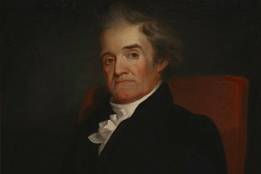
Noah Webster's Spelling Wins and Fails
Some of his biggest successes and defeats

8 Ways to Get Away From It All
Whether it's a jaunt or a junket, remember sunblock.
Thesaurus Entries Near travel
Cite this entry.
“Travel.” Merriam-Webster.com Thesaurus , Merriam-Webster, https://www.merriam-webster.com/thesaurus/travel. Accessed 3 Jun. 2024.
More from Merriam-Webster on travel
Nglish: Translation of travel for Spanish Speakers
Britannica English: Translation of travel for Arabic Speakers
Britannica.com: Encyclopedia article about travel
Subscribe to America's largest dictionary and get thousands more definitions and advanced search—ad free!

Can you solve 4 words at once?
Word of the day.
See Definitions and Examples »
Get Word of the Day daily email!
Popular in Grammar & Usage
More commonly misspelled words, commonly misspelled words, how to use em dashes (—), en dashes (–) , and hyphens (-), absent letters that are heard anyway, how to use accents and diacritical marks, popular in wordplay, the words of the week - may 31, pilfer: how to play and win, 9 superb owl words, 10 words for lesser-known games and sports, etymologies for every day of the week, games & quizzes.

- Meet the Team
- Work with Us
- Czech Republic
- Netherlands
- Switzerland
- Scandinavia
- Philippines
- South Korea
- New Zealand
- South Africa
- Budget Travel
- Work & Travel
- The Broke Backpacker Manifesto
- Travel Resources
- How to Travel on $10/day
Travel Glossary – The ULTIMATE List of Travel Terms
Unravel the mysteries of travel terms, acronyms, and all the essential backpacking jargon.
Whether you’re a seasoned globetrotter or a first-time adventurer, The Broke Backpacker travel glossary is your passport to understanding the language of the road.
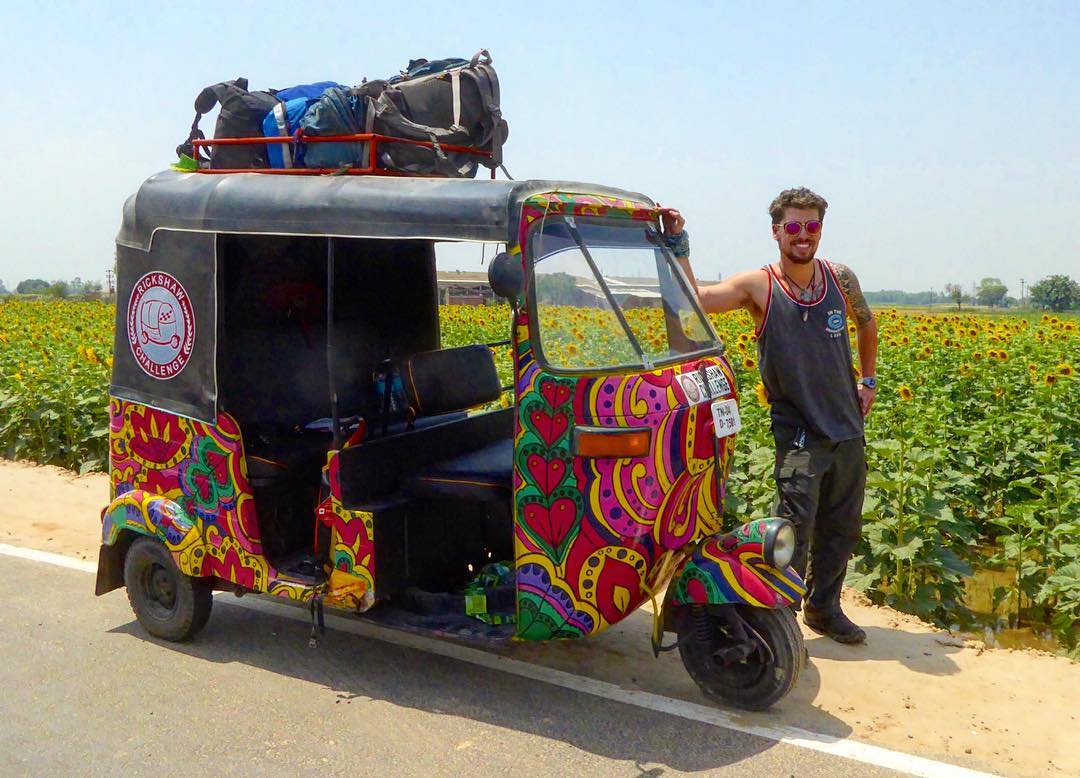
Travel Glossary
Accommodation: The place where you’ll stay during your trip — your home away from home. This can range from a snazzy hotel suite to a bunk bed in a buzzing hostel.
Adventure Travel: Exploring off-the-beaten-path destinations and experiencing adrenaline-pumping activities. The type of travel for those who prefer hiking boots over flip-flops.
Airline Alliance: A partnership among airlines to provide passengers with extended networks, smoother connections, and often, better perks. Like a friendship bracelet, but for airlines.
Airport Code: The three-letter identity tag for airports around the globe, making booking flights and navigating airports simpler. Think of it as the airport’s nickname.
Airport Terminal: The specific area in an airport where you check-in, pass security, and board or disembark your flight. It’s the traveller’s hub within the travel hub.
Backpacker: A traveller known for carrying their life in a backpack, seeking immersive experiences, and often on a budget. Backpackers are known to be part wizard, part ninja, with their ability to pack light yet still have everything they need.
Broke Backpacker: A backpacker traveling the world on a tight budget, often hitchhiking, Couchsurfing and cooking their own food whilst camping out under starry nights. Broke Backpackers are resilient, kind-hearted and always find a way to hustle and make ends meet.
Begpacker: Someone who funds their journey by begging for money in the countries they visit. Not exactly the hero of our travel tales.
Bikepacking : Backpacking by way of bicycle. Travellers pack their things onto a luggage rack and cycle around — sometimes for weeks, and sometimes indefinitely.
Boarding Pass: Your golden ticket to board a plane. For some, a travel collectible of sorts; for others, a paper quickly forgotten in the seat pocket.
Budget Travel: Stretching every little bit of your hard-earned cash as far as it can take you — and seeing the world without breaking the bank. That is what a Broke Backpacker does, baby!
Business Class: A step up from Economy Class, usually with wider seats and better meals. A taste of the high life, often experienced courtesy of points or special offers.
Busking : The art of funding one’s travels (or saving for them) by performing in a public place in exchange for tips. Usually connected to street musicians.
Carry-On Baggage: The essentials you can take with you on the plane. Packing it is something many consider an art, fitting everything a close second to magic.
Checked Baggage: The luggage you trust the airline to transport in the belly of the plane. Also commonly referred to as a “test of faith” amongst the community.
Codeshare: An agreement between airlines where a flight is operated by one but marketed by another. Say you call your mate to take you on a ride, but he shows up in his neighbour’s car… sort of like that.
Couchsurfing: Staying with a host for free, usually sleeping on their couch or spare bed. A powerful tool in a Broke Backpacker’s arsenal, and a term made popular by the Couchsurfing travel app .
Customs and Immigration : The checkpoint at international borders where officials check your documents and luggage. It’s the final boss battle before entering a new country.
Digital Nomad: An individual who works remotely from different parts of the world, often in cafes, co-working spaces, or beach bars. They’ve mastered the art of making anywhere an office.
Domestic Travel: Travelling within your own country, aka something we should all do more often. Our backyard is right there, and it is probably hiding a shit ton of gold.
Eco Tourism: A type of travel focused on conservation, supporting local communities, and minimizing impact on the environment. Often associated with volunteering projects , but not exclusively.
Economy Class: The most common and budget-friendly travel class. Broke Backpackers rarely know any other, really.
Fare Alert: A notification service that alerts you to the best flight deals. Like having a personal scout for travel bargains.
First Class: The epitome of luxury in the sky, with gourmet meals and lie-flat seats. A rare gem for budget travellers, usually only spotted in daydreams.
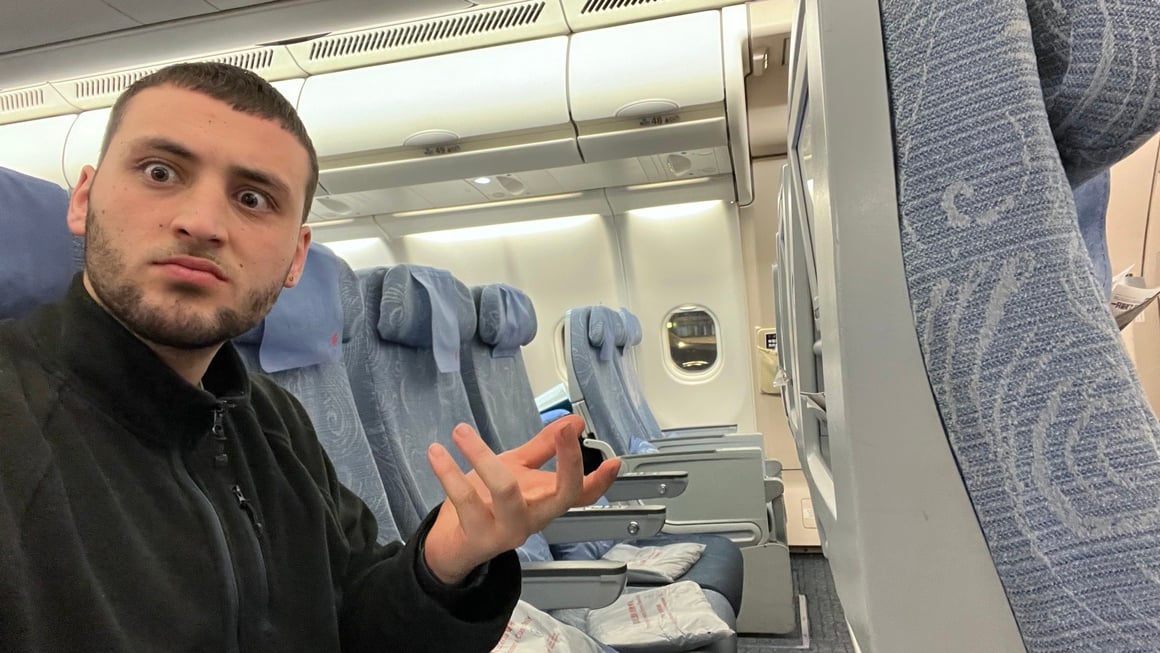
Gap Year: A year of travel, often taken by students as a break between high school and college, but increasingly popular with adults seeking a career break or life reset.
Ghost Fares: Listed flight deals that vanish when you try to book them. Like chasing a mirage in the desert of internet deals.
Glitch Fare: An error in listing the price of a flight, often ridiculously low. This is what we live for, amigos!
Guest House: A cozy, home-like accommodation option, often run by locals. It’s where you get the warmth of home, without all the boring chores.
Haggling : A type of bargaining for the lowest possible price that tends to be the default way of shopping in many parts of the world, particularly when goods are not sold for fixed amounts.
High Season: The peak travel period with the highest demand and prices. It’s when everyone else has the same travel idea as you.
Hitchhiking: The art of catching free rides with passing vehicles, usually by sticking your thumb out on the side of the road. It’s a gamble of patience and luck, with stories for a lifetime.
Homestay: Staying with a local family, experiencing their way of life. Be a guest, not a tourist.
Hostel: Budget-friendly accommodations, often with shared rooms and communal spaces. A good hostel is a home, and one where stories and friendships are as plentiful as bunk beds.
Hub Airport : A major airport that serves as a central point for connecting flights. Think London, Dubai, Singapore… the grand central stations of the skies.
Layover: The waiting period between connecting flights. An unscheduled mini-adventure, some would say.
Legroom: The space available for your legs on a flight. Often feels like a luxury in economy class.
Long-Haul Flight: A flight covering a long distance, usually over six hours. On long-haul flights, time truly becomes an illusion, and time zones mere suggestions. Reality is not the same anymore.
Low Season: The travel period outside of peak times, offering fewer crowds and often better deals. It’s the introvert’s prime time to travel.
Low-Cost Carrier: Airlines that offer no-frills flights at lower prices. They’re the unsung heroes for budget travellers. If you’re based in Europe, I’m sure you’re familiar with Ryanair and their crazy deals .
Money Belt : A sleek, secret weapon that expertly hides your cash inside of an inconspicuous-looking belt. Money belts are top-tier backpacker safety tools.
Off Season: Similar to Low Season, a time when travel is less in demand. It’s when destinations breathe a sigh of relief and welcome you with open arms and cheaper prices.
Off-The-Beaten-Path Travel: Exploring places that are not on the typical tourist radar. It’s for those who view the road less travelled as a personal invitation or a challenge.
One-Way Flight: A flight not returning to the origin point. One could say that’s exactly the kind of ticket you should be booking… but that’s just me. 😉
Overbooking: When airlines sell more tickets than there are seats. The airline industry’s version of musical chairs.
Overland Travel: Travelling across land, often through multiple countries, by bus, train, or car. Overland travel is the scenic route to adventure and there’s little that can beat it.
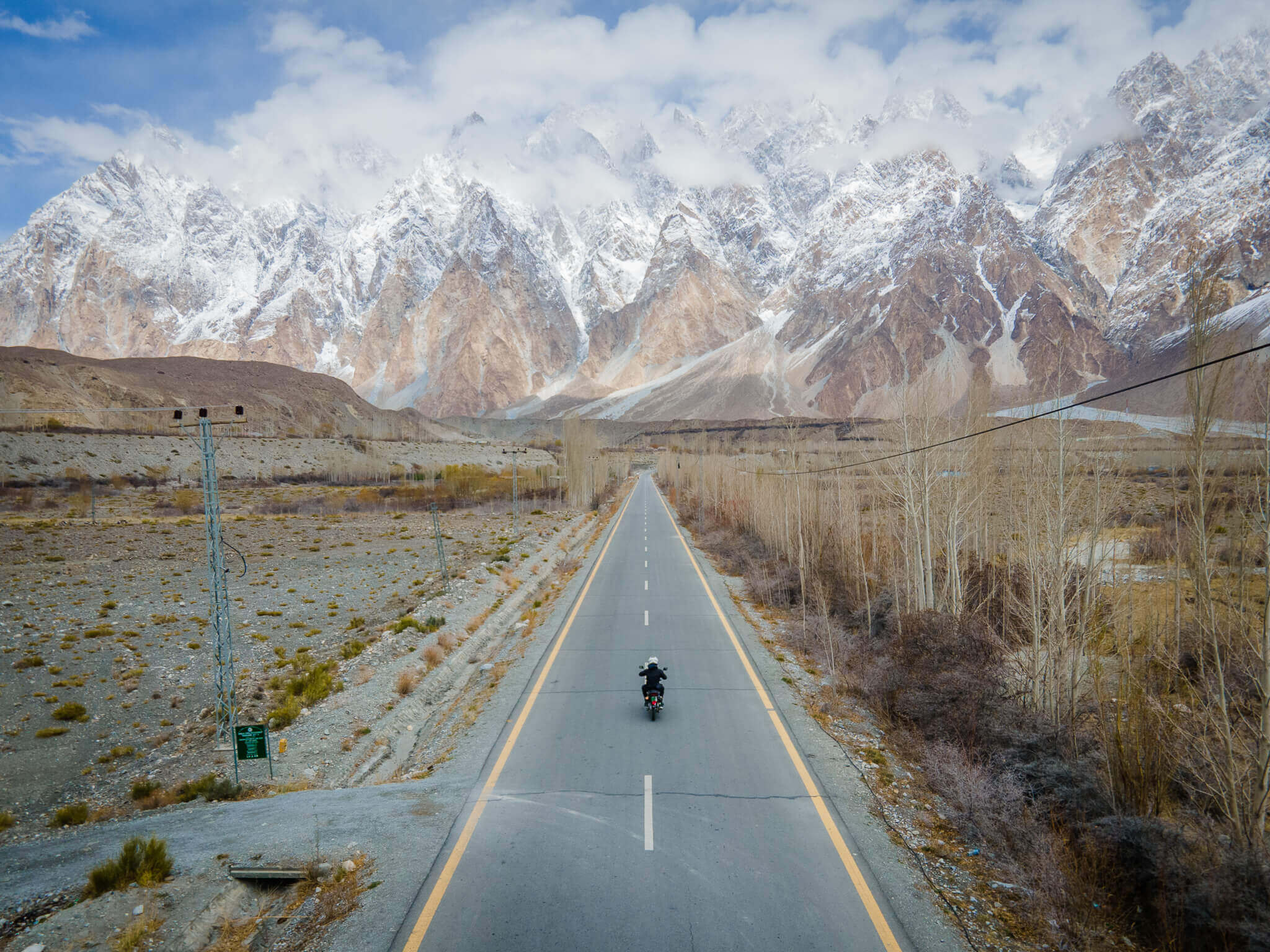
Package Tour: A pre-arranged travel package including flights, accommodation, and sometimes meals and tours. Travel on easy mode!
Packing List: The checklist of essentials for your trip. You can look at it as the line between “I have everything” and “I forgot my toothbrush.”
Peak Season: The busiest travel season, with the highest demand. When your favourite spots become everyone’s favourite spots.
Responsible Tourism: Travel that minimizes negative impacts on the environment and local communities. The idea is that you ALWAYS leave places better than you found them.
Revenge Travel: The surge in travel after periods of restrictions or lockdowns, like what we experienced after the decade-year of 2020. The world’s comeback tour is on!
Rural Tourism: Exploring the countryside, away from the city hustle, and finding beauty in the serene and the simplest of things.
Shoulder Season: The sweet spot between peak and off-peak seasons, offering a balance of good weather and lower prices. It’s the savvy traveller’s dream season.
Sleep System : Core essentials of any broke backpacker’s tool kit that allow one to sleep anywhere . We’re talking sleeping mat, sleeping bag, and pillow type of setup, but not all systems are built equal!
Solo Travel: The art of travelling alone, discovering the world, and perhaps a bit of yourself along the way. It’s where independence meets adventure.
Souvenir: A memento from your travels, ranging from the classic fridge magnet to the more eclectic and exotic goods. Some more entrepreneurial travellers even manage to turn it into a business .
Sticky Place: A destination that feels so right you have no choice but to stay. You’ve booked a couple of nights, but you’ve been there for at least a couple of weeks.
Stopover: A break in your journey, allowing you to explore a city before continuing on. It’s like a travel bonus level.
Sustainable Travel: Travelling in a way that ensures destinations are preserved for future generations. It’s about treading lightly and caring deeply.
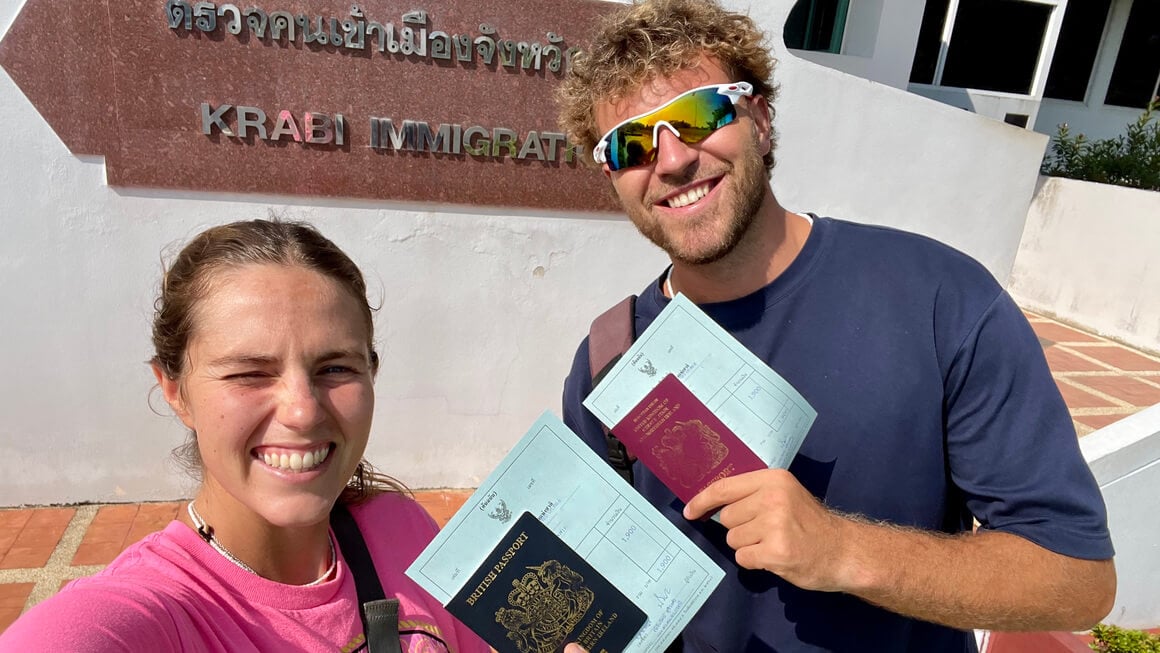
Transit Visa: A visa required for passing through a country to a final destination. It’s the paperwork pit stop of your journey.
Travel Hacks: Tips and tricks to make travel easier, cheaper, or more enjoyable. A cheat code for the travel game.
Urban Exploration: Discovering the hidden gems and secrets of urban environments, often accompanied by some form of outlaw defunct urban space invasion. Epic.
Visa : A travel document that is required to enter certain countries. Visa policies will differ wildly depending on the destination and your nationality.
Visa Waiver: An agreement allowing travellers to visit a country without a visa for a short period. It’s the travel equivalent of a hall pass.
Wild Camping: Setting up camp in unmarked spots in the wilderness. It’s about as close to nature as you can get without becoming a bear.
Work Exchange: Volunteering your time in exchange for food, accommodation, or experience. The barter system meets backpacking.
World Heritage Area/Site: Locations recognized for their cultural, historical, or scientific significance. It’s the world’s way of saying, “This place is awesome.”
Xenophilia: A love for foreign cultures. The heart of every true traveller.
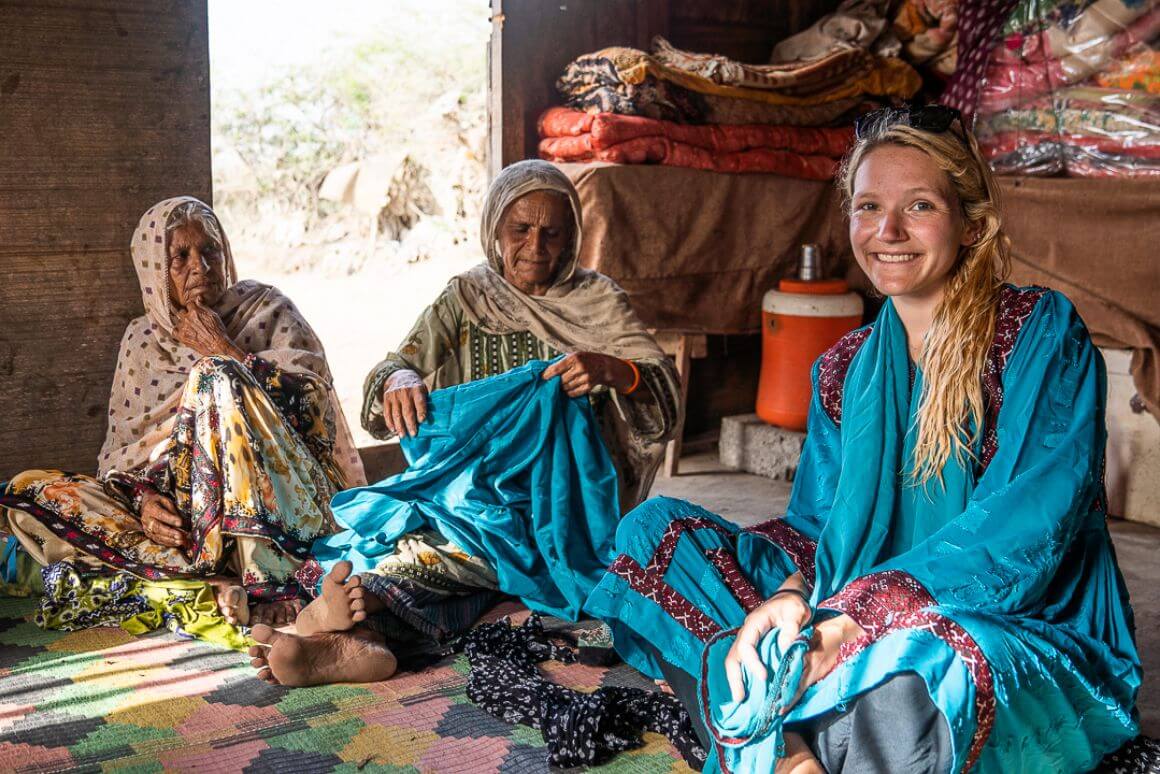
The Travel Glossary - find the best Terms, Definitions and Acronyms
Travel terms, glossary, definitions and acronyms of the travel industry from A – Z. Click on a letter to see the terms and descriptions in our glossary.
A B C D E F G H I J K L M N O P Q R S T U V W X Y Z
Add-collect, adjoining room.
Average Daily Rate. A hotel industry term used to calculate average hotel room rate. Equal to room revenue divided by rooms sold.
advance purchase
The advance time before travel that a fare requires a ticket to be issued, normally 3,7,14 or 21 days.
Agent Error. An incorrect entry made by a consultant during the reservation process.
AEA (see “Association of European Airlines”)
A US based travel agency that has entered into an agreement with BCD Travel to use the BCD Travel trademarks and provide travel services to customers in the affiliate’s territory.
Airlines Reporting Corporation (ARC)
An independent corporation jointly owned by most of the major United States airlines; ARC collects payments for tickets sold by travel agencies and distributes the monies to the airlines; ARC also governs appointment of travel agencies to sell domestic air transportation.
airport code
The three-letter code used by airlines and the air travel industry to identify airports around the world, e.g. LHR=London Heathrow, JFK=New York John F. Kennedy. http://www.world-airport-codes.com/
airport security check
Airport security checks are procedures and measures for screening passengers and baggage to ensure security against terrorist threats and other dangers. Find out how to get through quickly
airport tax
Tax levied by certain airports throughout the world. In many cases this can be built into the total ticket price, although some airlines will not co-operate, thus making payable locally by the passenger.
On outbound journey’s, airside includes all those areas of the airport terminal after you have passed through passport control. On inbound journey’s, airside includes all those areas of the terminal before you pass through passport control.
A short-hop aircraft for up to 20 passengers, usually flying unscheduled services with a 200 / 500-mile range.
all-inclusive
A hotel program which usually includes all meals, snacks, beverages and activities.
A joint partnership between specified carriers which may include, but not limited to, interlining, code-sharing, joint frequent flyer program participation, and even equity participation of stock ownership.
The National Railroad Passenger Corporation, a government-subsidized corporation that operates all passenger train service in the United States.
Automatic Number Identification. A contact center term for a telephone network feature that passes that number of the phone the caller is using to the contact center, real-time.
American Plan. A hotel rate that includes breakfast and dinner, sometimes lunch.
Asia Pacific. A geographical term used interchangeably with ASPAC and often used in reference to the entire Asian market.
Advance Purchase Excursion Fare
applicable fare
The fare to be applied.
Accounts Receivable. Money which is owed by a customer to a company for products or services provided on credit.
ARC (see “Airlines Reporting Corporation”)
An eight-digit identification number issued by ARC to travel agencies who have met accreditation standards.
Arrival Unknown. An ARNK is added to a reservation when there is a break in the itinerary and continuity is not recognized; it does count as a segment when ticketing.
Around-the-world
A continuous journey circumnavigating the globe in one general west-to-east or east-to-west direction in which both the Pacific and Atlantic Oceans are crossed not more than once each.
ARR (see “Average room rate”)
Asia South Pacific. A geographic term used interchangeably with APAC.
Automated Ticket & Boarding Pass. IATA standard transportation ticket and combined boarding pass which features a magnetic strip containing passenger and journey details.
Average Ticket Price. The average price of all tickets purchased; domestic and international are sometimes calculated separately.
availability
The total number of seats allowed to be sold at a particular rate.
average room rate (ARR)
Ratio of hotel’s sales revenue to the number of occupied rooms.
back-to-back ticketing
An against-the-rules practice whereby a traveler books a return ticket nested inside another return ticket to avoid minimum stay requirements for the purpose of saving money. For example, the traveler uses the first ticket to fly from origin to destination on Monday in week 1, then he uses the second ticket to fly from destination to origin on Friday in week 1 and back to destination on Monday in week 2, and then he uses the first ticket again to fly back to origin on Friday in week 2. The normal Saturday night stay requirement is then avoided. While this will sometimes save money, most airlines do not allow this practice and doing so might result in penalties.
backtracking
Having to return to your original airport of entry in a country to make the return trip home. A time-consuming and costly procedure to overcome by arranging an op-jaw itinerary, which allows you to fly out to one point and return from another.
Carry-on-baggage and checked baggage have many restrictions. Most notable are the number and size of the baggage. Many airlines allow only 1 carry-on bag, plus one personal item (purse, back-pack, computer bag). For checked baggage restrictions and fees, refer to the carrier’s website for details.
banker’s buying rate (BBR)
Exchange rate used to convert from one currency to another; called the ‘buying rate’ because it is the rate used when banks purchase currency from an individual
banker’s selling rate (BSR)
Exchange rate used to convert from one currency to another; called the ‘buying rate’ because it is the rate used when banks sell currency to an individual
Best Available Rate. A hotel industry pricing method for yielding room rates (floating) based on demand while ensuring the best rate is presented for sale to agents, consumers.
A fare without tax.
Measurement of hotel occupency.
blackout dates
Certain dates or periods when travel on specific fares is not permitted (usually holidays).
blocked space
Multiple reservations, often subject to deposit forfeiture, which wholesalers or travel agents make with a supplier in anticipation of resale.
boarding pass
A permit to board a ship, plane, or other form of transportation. In the case of air travel, the card indicates boarding gate and aircraft seat number.
booking code
A letter code used to make an airline reservation at a particular fare level in a computerized reservation system. (CRS/GDS)
Bank Settlement Plan. Outside the USA, a system by which the travel agent community pays carriers for tickets it issues.
Business Travel Account. If a company has a corporate credit card program where certain purchases such as air, rail, and associated transaction fees are centrally billed to one “master” credit card number, this is referred to as the Business Travel Account (BTA). This account allows for the purchase of certain air travel expenses for corporate employees without the need to issue individual credit cards to each traveler for the designated expenses. Because the account has no physical card, it’s often called a “ghost card.”
BTC (see “Business Travel Center”)
Business Travel News. A travel industry publication that delivers news and research to the corporate travel population.

bucket shop
An unlicensed, unbonded travel agency used by some airlines to dispose of excess capacity seats that are available on certain flights.
buffer zone
For taxation purposes, an extension of the US border 225 miles north into Canada and 225 miles south into Mexico border; all cities within this area are assessed the 7.5% US domestic tax when tickets are purchased and sold in the US.
A net fare contract for certain number of seats. Similar to blocked space except that the tour operator, wholesaler, or travel agent usually contracts for airline seats at a low, non-commissioned price without the option of releasing space back to the airline.
A partition (usually a wall) on an airplane separating compartments.
Travel slang for the removal of a passenger from a flight through overbooking; usually applied to those holding concessionary tickets.
bundled pricing
A pricing proposal, always a transaction fee, where elements other than air (e.g. car hire, hotel, rail) are included in the fee with the air transaction.
business class
Level of airline service between First class and Economy class. On European routes business class has now replaced first class as premier service level. Most airlines have their own brand names. (e.g. British Airways – Club World and Club Europe: Air France – Le Club etc.)
Business Travel Center (BTC)
Standard full service and online service in a local call center, undedicated, team environment.
Business Travel Management
Business travel management is the process of planning, organizing, and overseeing business travel for an organization. This includes booking travel arrangements, managing expenses, and developing policies and procedures for business travel.
cancellation policy
The advance time a hotel requires a booking to be canceled by to avoid being billed for the room
carrier (CXR)
Another term for airline.
Credit Card. A system of payment whereby the issuer of the card grants a line of credit to the cardholder, to be used to make payment to a merchant or to withdraw cash.
Collision Damage Waiver. An industry term for optional insurance provided by car rental companies that eliminates all responsibility of the driver in an accident.
centralized billing
System under which a travel supplier, credit card company, agency or other supplier consolidates all costs/charges incurred by different employees or departments into one total invoice.
change of equipment
Also known as “change of gauge”. A single flight number used to represent flights on two different aircraft; usually on international destinations.
Notification to an airline or hotel that a traveler has arrived to take a flight or stay at a hotel; some airlines provide curbside check-in while others only allow check-in at the ticket counter.
Advice to a hotel that a guest is leaving the property and usually includes payment for the stay.
A traveler who has had his/her second birthday, but not yet his/her twelfth birthday (this definition may vary by carrier).
Churning refers to any repeated booking or canceling of the same itinerary in the same class or different classes of service in one or more PNRs or GDS.
circle pacific
Travel from IATA Area 1 (North and/or South America) to IATA Area 3 (Asia, Australia, South Pacific) by way of the North Pacific Ocean in one direction, via the South Pacific Ocean in the opposite direction, and at least one flight within IATA Area 3 that crosses the Equator.
circle trip (CT)
A journey from origin to destination with a return to origin in a continuous, circuitous route using two or more fare components
The orgin (from) and arrival (to) points of a trip, usually by air or train.
city terminal
Airline office, usually city center, where passengers may check-in, receive seating details and board special bus/ taxi/ helicopter/ rail/ shuttle services to the airport.
class of service
The interior of an aircraft is divided into sections, each with a different level of service and amenities; common classes of service are first, business, and economy.
Cruise Lines International Association. An association dedicated to the promotion and growth of the cruise industry.
Section of a hotel offering higher security and special facilities either for a premium payment or as an incentive/ privilege for frequent users.
club ticket
Fully flexible, redeemable business class ticket valid one year from date of issue. Phrase used primarily in the U.K.
Another term for bus.
Close of Business. A term meaning the end of the business day.
A marketing agreement between two airlines (very common amongst airlines that have an alliance) where a seat is purchased on one airline (the selling carrier), but the flight is actually operated by a different airline (the operating carrier).
combination
Two or more fares shown separately in a fare calculation.
Computerized Reservation System
System used to book and process travel reservations, also known as a Global Distribution System (GDS).
A hotel employee who attends to guests’ needs for special information, theater and restaurant reservations, and any other special requests.
connecting flight
A flight which the passenger must change aircraft.
A stop in a given city for less than 4 hours (domestic US); less than 12 hours (domestic US as part of an international journey); less than 24 hours (international); continuing on the next applicable flight to an onward destination; designated by X/ in a linear fare construction line.
conjunction ticket
Two or more tickets concurrently issued to a passenger and which together constitute a single contract of carriage.
connecting rooms
Two rooms that are side-by-side that have a common connecting interior door.
consolidation fare
A group inclusive tour fare available to travel agents and other operators to construct packages to destinations which are inclusive of accomodation. Consolidation fares, although group fares, are for sale to individual passengers.
consolidator
A person or company which forms groups to travel on charter or at group fares on scheduled flights to increase sales, earn override commissions or reduce the chance of tour cancellations.
A group of independent companies that join together to gain greater profits.
construction point
A city through which fares have been combined for the purpose of pricing an itinerary; a destination city or a turnaround point; a fare break shown on the ticket.
A contact center term for an individual who is calling or visiting your company by phone or through the website, and who is requesting an interaction with an agent.
contact center
An umbrella term that generally refers to reservations centers, help desks, information lines or customer service centers, regardless of how they are organized or what types of transactions they handle.
continental breakfast
A light breakfast of such things as coffee, pastry and sometimes juice.
contract fare / contract discount
A discounted fare agreed upon by the client and a carrier; contract fares require a client give the carrier a certain percentage of its business in all markets.
corporate fare
A discounted airfare for business travelers.
corporate rate
A special rate negotiated between a supplier (hotel or car for example) and a company.
corporate hotel rate
Learn how to get corporate hotel rates .
Corporate Travel Department (CTD)
A CTD (Corporate Travel Department) establishes a direct purchasing relationship between the company and its travel suppliers. The accrediting body, ARC (Airline Reporting Corporation) authorizes the company to function as its own “travel agency” and control it’s financial settlement.
co-terminals
A group of cities/airports considered to be the same point; example: JFK/LGA/EWR.
country of commencement (COC)
The country in which a journey begins; the base fare is converted from NUCs into the currency of the Country of Commencement by using the IATA ROE.
country of payment (COP)
The country in which a ticket is being purchased; the base fare is converted from the currency of the Country of Commencement into the currency of the country of payment using the Bank Rate if the countries are not the same.
Cost Per Mile. A calculation of the average price paid per mile.
Cost Per Transaction. A calculation of the total cost a company incurs for generating a customer transaction.
Customer Relationship Management. A term used for a database that is used to house and maintain customer information.
CRS (see “Computerized Reservation System”)
Corporate Social Responsibility . A concept whereby companies consider the impact to society and the environment of their actions.
Central Security Record. A hotel industry term for the name of the Viewership Management Table used to maintain a list of offices authorized to access a client’s negotiated hotel rates.
Central Standard Time. A time zone in the US, also known as Central Time or CT.
Corporate Travel Department. A company’s in-house travel agency that purchases air transportation and related travel services on behalf of its own employees.
Computer Telephony Integration. A contact center term for the software, hardware, and programming necessary to integrate computers and telephones so they can work together seamlessly and intelligently.
A checkpoint at which imported goods are verified for legality and value.
Data Release Authorization (DRA)
Under a DRA, Client instructs, as of the date specified, BCD Travel to receive, process, and/or transfer certain personal travel data from Client’s travelers, including, but not limited to, transactional ticket-level, segment-level, and traveler-level information, which may include, without limitation, traveler name and address, origination and destination, corporate and/or personal credit card number, passport number, drivers license, travel preferences, and other special needs or any other sensitive data as may be provided by or behalf of the travelers (“Travel Data”).
Decision Source (DS)
A BCD Travel product that allows our customers to interact with their reservation data.
delegate rate
An inclusive rate for meetings on a daily basis. Twenty-four hour delegate rate also includes accommodation. Phrase primarily used in the U.K.
denied boarding compensation (DBC)
Commonly called “bumping,” – When more passengers arrive to take a flight than can actually fit on the plane; although legal, the carrier is only responsible for providing compensation to a traveler if he/she has a confirmed reservation and is checked in and has arrived at the departure gate within a pre-determined time period; compensation may be in cash or in a voucher for future travel; passengers who voluntarily relinquish their seats are compensated with a cash payment or voucher towards a future trip and are then accommodated on the next available flight; if an airline delivers a bumped passenger to his/her destination within an hour of the originally-scheduled time, no compensation is required.
deregulation
Originally applied to American air travel: in 1978, federal law phased out the civil Aeronautics Board and stopped government intervention or regulation of airline routes and fares.
destination
The final stopping place as shown on the ticket; the furthest point on a fare component used to price an itinerary.
Destination Management Company
Company, possibly an incoming tour operator, who organizes local ground services at destination.
differential
The difference between the fares for two different classes of service between two cities; this fare construction principle is only used internationally.
direct fare
The fare for one-way or half round-trip travel visa the shortest route operated between two cities.
direct flight
A flight from origin to destination that makes one or more intermediate stops, but passengers do not change planes.
directional fare
Fare valid only in a specified direction of travel.
discount fare
Transportation fare lower than the full published tariff for an airline’s route. A discount fare usually entails certain stipulations regarding purchase or travel (space availbility).
DMC (see “Destination Management Company”)
Domestic travel.
Travel wholly within any one country; typically used to designate intra-US travel.
A hotel room with two double beds and/or accommodating 2-4 people.
double booking
The practice of making reservations for two or more flights, cars or hotels as a type of backup; considered to be unethical.
double occupancy
The way in which almost all cruise fares and tour packages are quoted, that is, based on two people traveling together. Most hotel rooms are quoted based on two adults to a room, as well.
double open jaw (DOJ)
Travel in which the outbound departure point and arrival and the inbound point of departure and arrival are not the same.
To move a passenger to a lower class of service or accommodation.
drop-off charge
A fee charged for dropping a rental car at a different location from where it was picked up.
Being exempt from any import tax.
economy class
The rear area of the aircraft in which passengers having paid one of the lower fare types are seated.
electronic miscellaneous document – Associated (EMD-A)
Document that allows for the fulfillment of all flight related services and fees (such as bags, seats, meals, etc.). An EMD or EMD-A is linked to a specific eticket coupon in the airline’s database.
electronic miscellaneous document – Standalone (EMD-S)
Non-flight related services (such as lounge access or change fee collection) a stand alone EMD, a EMD-S is issued. To issue an EMD-S a manually created service segment must be in the PNR. Specific services that can be charged on an EMD-S is dependent on the airline’s own requirements.
electronic ticket (eticket)
An airline transportation ticket that is entirely in a GDS; no physical ticket is required for travel.
EMD (see “electronic miscellaneous document”)
Endorsement.
Permission from the plating carrier, the ticketed carrier or the carrier losing air space for the traveler to use the flight coupon(s) for travel on another airline at no additional cost; usually only required for international tickets.
end-on-end combination
A special type of combination in which two round trip fares are combined to produce a complete itinerary.
In this example, the passenger buys a round trip ticket from AAA to BBB (Rule 1), and a separate round trip fare from BBB to CCC (Rule 2). The net effect is to travel from AAA to CCC, but breaking the fare at BBB, which may in some cases be less expensive than the round trip (through) fare from AAA to CCC.
equivalent fare paid
An amount converted into the currency of the country of payment when the published fare is in a currency other than that of the country of payment.
ERA (see “European Regions Airline Association”)
Eastern Standard Time. A time zone in the US, also known as Eastern Time or ET.
Electronic System for Travel Authorization. ESTA is a free, automated system that determines the eligibility of visitors to travel to the U.S. under the Visa Waiver Program. The ESTA application collects the same information collected on Form I-94W. ESTA applications may be submitted at anytime prior to travel, though it is recommended travelers apply when they begin preparing travel plans.
Estimated Time of Arrival. A measure of when an object is expected to arrive at a certain place.
Estimated Time of Departure or Delivery. The expected start time of a particular journey or the expected delivery of a good or service.
e-ticket (see “electronic ticket”)
Electronic Ticket Record.
European Regions Airline Association
Association which aims to identify, protect and promote the interests of regional air transport in Europe. Over 170 memebers including airlines, aircraft manufacturers and airports. www.eraa.org
excess baggage
Baggage in excess of the allowable number, size or weight.
The process of reissuing a ticket due to a change of flight, fare basis, dates or routing.
excursion fare
Round-trip fare with restrictions, such as minimun and maximum stays and the need to purchase well in advance.
executive card
Types of privilege cards available to frequent users of airlines, hotel chains, car rental companies, etc. Most carry benefits and have their own brand names, e.g. British Airways Executive Blue, Executive Silver, Executive Gold and Premier.
executive room
Higher grade than standard room and usually slightly larger, the executive room often has additional facilities for the business traveler such as trouser press, desk etc. and may be located on a separate Executive Club Floor.
Expatriot (or expat)
An expatriate (in abbreviated form, expat) is a person temporarily or permanently residing in a country and culture other than that of the person’s upbringing or legal residence.
explant/ outplant/ offsite
Branch office dedicated to serving a single client that is not located on the client’s premises, but rather operates as a separate part of a BTC.
familiarization tour
A complimentary or reduced-rate travel program for travel agents, airline or rail employees, which is designed to acquaint participants with specific destinations. Often known as “Fam-Trips”.
family plan
A hotel rate that allows children to stay free with adults in the same room.
A combination of letters and numbers used to identify a fare type which may also indicate the rules of the fare
fare component
A fare between two points.
fare ladder
A vertically-written fare construction that includes fare components, surcharges and additional amounts collected.
- fee – bundled air transaction fee An air transaction fee that includes the costs associated with servicing air, hotel and car transactions. Therefore, hotel and car only bookings (not to exceed XX% of air bookings) are not charged a transaction fee.
- fee – management fee Fee assessed in addition to direct costs. Covers primarily overhead and profit. Can be assessed as % of sales, per transaction or fixed amount.
- fee – management fee structure (formerly cost plus offering) Client fee arrangement whereby direct expenses are passed through to the client in addition to management fee. Management fee could be % of sales, fixed fee, or per transaction.
- fee – online booking tool fee (PNR fee) Charged per unique reserved PNR. Additional fees may be assessed for transactions booked on a website accessed via the online booking tool.
- fee – online transaction fee (e-fulfillment fee) Charged per online transaction – that excludes any ‘flow through costs’ charged by the online booking tool provider.
- fee – transaction fee structure Client fee arrangement whereby client is billed per transaction for all major program costs including direct expenses and contribution to overhead and profit, usually at POS.
- fee – unbundled (menu) transaction fee Separately charged per each type of transaction, e.g. hotel, car, rail and air. AM and MIS costs might also be charged separately.
final destination
The last point on an itinerary/fare component.
first class
The cabin on an aircraft where there are fewer seats, more elaborate service and amenities.
FIT (see “Fully Independent Traveler”)
Flag carrier.
The airline that internationally represents a given country; sometimes financed or owned by the government.
flight coupon
A section of an airline ticket; one flight coupon is required to take each flight.
flight/time specific
A fare rule that requires a to fly on a specific flight or at a specific time of day.
FOI (see “Form of Indemnity”)
Form of Payment. The method of payment for a transaction.
form of indemnity
A form that needs to be completed by the passenger in order to claim refund in respect of an air ticket that has been misplaced or stolen.
frequent flyer number
Find out what a frequent flyer number is and how to get one
frequent flyer program
An airline loyalty program that provides awards to travelers who use an airline or its partners.
frequent guest program
A hotel loyalty program that provides awards to guests who use a hotel chain.
frequent renter program
A car rental loyalty program that provides services (such as fast pickup) to those who use a car rental vendor.
front office (FO)
An industry term used for products associated with customer-facing activities. The GDS is a front office system.
fuel surcharge
A surcharge assessed for fuel use applicable for travel between specified points and/or for departure from a specified city.
Hotel rate with accommodation, breakfast, lunch and dinner included.
full economy
This is a fully flexible, fully refundable ticket which is valid for one year from date of issue in economy class.
full exchange
Change an already ticketed reservation, with no flown flight segments.
full to full exchange
Change to a ticketed reservation when no segments are flown and the change is to any segment other than the outbound flights. Or when a segment has been flown and there is a change to a remaining flight segment. In either of these instances, the FULL value of the original ticket must be exchanged for the ‘combined’ FULL value of the new ticket.
fully independent traveler
A traveler / tourist not part of a tour group.
One of the world’s CRSs (GDSs).
Area in an airport where passengers for a flight gather before boarding their flight or deplane on arrival.
gateway city
The last domestic city from which a passenger departs prior to arriving at an international destination; the first point of arrival in a given country (e.g., on the journey SFO-CHI-FRA-MUC, CHI and FRA are gateway cities).
GDS (see “ Global Distribution System “)
Gds operations (gdso).
An industry term for computer reservation systems that book and sell tickets for multiple airlines.
GEBTA (see “Guild of European Business Travel Agents)
In the credit card industry a system used by corporations whereby travel related charges made through designated travel agencies are centrally billed but no plastic card actually exists. Often referred to as “Lodge card” in Europe.
global distribution system
An industry term for computer reservation systems that book and sell tickets for multiple airlines. Learn more
global indicator
Two-letter code used to identify the direction of travel applicable to a given fare.
governing carrier
The airline whose fares and rules are used on a given itinerary.
Greenwich Mean Time (GMT)
Solar based time in Greenwich, England, from which time in all other time zones in the world is based.
ground time
The time not flying.
A booking solution that allows the booking and managing of all ground transportation services, such as limousines, executive sedans, taxis, vans and parking services.
A fare that offers discounts to groups of varying minimum sizes in selected markets, with various conditions, and usually require round trip travel within a specified time limit.
guaranteed hotel reservations
This means that the hotel will hold the room all night. However if the room is not required, failure to cancel will result in a charge. Where reservations are made on an ad hoc basis, rather than through a regular account arrangement, a credit card number will be required to effect this guaranteed reservation.
Hotel rate for accommodation, breakfast and one other meal.
half round trip fare
Half of a fare designated for use on round-trip journeys.
Fee or tax some countries or cities levy on arriving or departing travelers.
Half of the globe; the North and South hemispheres are divided by the Equator; the Atlantic and Pacific Oceans divide the East and West hemispheres.
higher intermediate point (HIP)
A pair of cities within a one-way or half round-trip fare component that has a direct fare higher than the direct fare between the origin and destination of the fare component; this fare construction principle is only used internationally.
hotel sourcing
Hotel sourcing or procurement is the process of identifying, negotiating and contracting with hotels to secure accommodations for a specific group, event or organization.
An airport at which an airline centers many of its schedules, particularly connecting flights to smaller destinations.
(see “International Air Transport Association”)*
IATA Number (see “ARC Number”)
Iata rate of exchange (roe).
Rates of exchange designated by IATA to convert local currency to NUCs and to convert NUCs into the currency of commencement of travel.
ICAO (see “International Civil Aviation Organization”)
Interline e-ticket. An interline agreement between airlines that allow e-ticketing on each other’s flights. Interline agreement between airlines permitting travel service cooperation in areas such as: baggage transfer services, guaranteed connection times.
IGK (see “International Gatekeeper”)
Immigration.
Area at which a traveler’s documentation (e.g., Passport and Visa) are verified to ensure the traveler may enter the country.
implant (on-site)
Dedication operational team, based within an office of the client.
implementation
Phase of launching a new relationship, including e.g. opening a new location, training staff, installing technical equipment, and informing clients, travelers and travel arrangers.
inbound travelers
Travelers coming into a specified location are considered inbound. Travelers departing from the location are considered outbound.
A traveler who has not yet reached his/her second birthday.
Term used in the U.S. to describe an implant.
international departure taxes
Taxes levied on all travelers departing a country on an international journey that are, typically collected at the airport at the time of departure.
Between two airlines; TUS-HP-DEN-UA-LON is an interline journey.
interline baggage agreement
An agreement between two air carriers that a carrier will transfer baggage to the other carrier.
interline connection
When a passenger changes airlines as well as aircraft during a journey (same as off-line connection).
interline ticketing agreement
An agreement between two air carriers that permits air travel of one carrier to be on a ticket issued and/or ‘plated’ on another carrier.
intermediate point
A ticketed point of an international journey at which there is no fare break; an intermediate point may be a stopover or connection.
intermediate stop
An enroute stop at a city between the origin and destination (see also Direct Flight).
International Air Transport Association
The world trade association of international air carriers; appoints travel agencies to sell tickets; determines rules and regulations for international carriers. www.iata.org
International Civil Aviation Organization
Specialed agency of the United Nations with responsibility for civil aviation action in standardization, technical co-operation and the formulation of international aviation law. www.iaco.int
A chronological plan showing a traveler’s booked arrangement.
A special through fare (usually only internationally) that permits travel on two or more different airlines.
The origin to final destination of a fare construction.
BCD Travel provides support for KDS. KDS provides an online booking platform for the confirmation of air, car, hotel and rail itineraries.
On outbound journeys, landside includes all those areas of the terminal before you arrive at passport control. On inbound journeys, landside includes all those areas of the terminal after you’re through passport control.
last date of purchase
The date by which a ticket must be issued – fares are not guaranteed until tickets are issued.
last room availability (LRA)
A hotel industry term for ensuring a negotiated rate is always available when standard inventory is available or when the room type negotiated is available.
LDW (see “Loss Damage Waiver”)
One flight; one part of an entire journey.
Lowest Fare Routing. The least expensive airfare available to a destination.
local currency fare (LCF)
See Country Of Payment (COP).
locator reference
Unique identifying booking number used within a computer reservations system as part of a booking file.
In the credit card industry a system used by corporations whereby travel related charges made through designated travel agencies are centrally billed but no plastic card actually exists. Often referred to as “Ghost Card” in the U.S.
Loss Damage Waiver
Additional insurance pertaining to car rentals, covering theft and vandalism in addition to accident damage.
low cost carrier (LCC)
An airline that offers generally low fares in exchange for eliminating many traditional passenger services.
lowest combination principle
Construction of a fare using a particular combination of sector fares to provide the lowest fare when there is no published fare between two points.
Marine Travel
Specialized travel services, available 24/7, provides travel arrangements (including helicopters and charter aircraft) for marine personnel.
Market Number (MK)
A code all online booking tools (OBTs) add at the time each reservation is made, as a way to track PNRs for online adoption and fulfillment purposes. It should never be removed once added to the PNR.
Married Segments
Two or more connecting flight segments joined, or “married,” meaning that these segments are inseparable and the subsequent rebooking or cancellation of any one flight segment must, at the same time, be applied to the connecting flight segment.
maximum permitted mileage (MPM)
The number of miles that may be flown on a published direct fare between origin and destination; this fare construction principle is only used internationally.
maximum stay
The maximum amount of time a traveler may stay at a destination before return is required.
MCO (see “Miscellaneous Change Order”)
Meetings, Incentives and Corporate Events. An industry term for a department within a company that offers meeting planning services to customers. BCD Travel’s department is called BCD M&E
midoffice (MO)
An industry term for the management information (MIS) portion of a travel agency’s system.
mileage fare
A fare based on the total miles flown from the origin to destination; this fare construction principle is only used internationally.
mileage surcharge
A percentage of fare increase applied to a fare because the routing exceeds the maximum permitted mileage; the percentage is in 5% increments to a maximum of 25%; this fare construction principle is only used internationally.
minimum connection time
The amount of time required to change planes; varies by airport and often varies by carrier.
minimum stay
The minimum time a travel traveler must stay at a destination (or be gone ‘away from home’ internationally) before return travel can commence.
miscellaneous charge order (MCO)
An accountable document issued by a travel agency or airline as proof of payment for a specific fee (such as pet service fee) or as residual amount of an exchange (higher priced ticket exchanged for a lower priced ticket) to be used on a future purchase.
Mountain Standard Time. A time zone in the US, also known as Mountain Time or MT.
National Business Travel Association
U.S. business travel association which is a member of IBTA. www.nbta.org
NBTA (see “National Business Travel Association”)
New distribution capability. Read more
negotiated fare/rate
This is a term used by travel agents to descibe reduced airfares that have been negotiated by their air fare specialists on behalf of clients.
neutral units of construction (NUC)
An imaginary currency established by IATA that allows fares of different currencies to be added together; this fare construction principle is only used internationally.
Non Last Room Availability. A hotel industry term for restricting availability of a negotiated rate when occupancy levels are high. Negotiated room rate is not guaranteed to be available.
Net Operating Income. A financial term for the amount by which operating revenue exceeds operating expenses in a specific accounting period.
non-endorsable
This expression often appears in the endorsements box of an airline ticket and it means that the flight coupon on which the worlds appear may be used only on the services of the airline indicated.
non-refundable(NR)
A ticket issued on a fare that does not allow for a refund; most non-refundable tickets can be changed for a fee and any difference in fare.
normal fares
The full fare established for first, business, economy or an intermediate class and any other fares published designated as normal fares.
normal open jaw (NOJ)
Travel from a country and return to the same country with a surface sector at either the origin or turnaround point (single open jaw – SOJ) or at both the origin and the turnaround point (double open jaw – DOJ).
An airline passenger or hotel guest who fails to use and/or cancel a reservation.
National Transportation Safety Board. An independent US government agency that investigates accidents including aviation, highway, marine, pipelines and railroads.
OBT and OBLT (see Online Booking Tool”)
Off-airport location.
Usually a car rental office serving an airport but physically located off the airport site (and often picking up renters at the airport in buses or taxis). When the office is located on-site, the term used is on airport location.
A destination that a carrier does not serve; see also Interline.
off-line connections
When a traveler changes airlines as well as aircraft during a journey (may also be referred to as interline connection). Changes of aircraft with the same airline are known as on-line connections.
offline transaction (traditional transaction)
A transaction that initated by an agent following a call/email request by a client.
Time of year or day of the week when travel is less common.
off-line point
Airline term to describe points (areas or cities) they do not serve.
off-loading
This occurs when an airline has over-booked: that is, it has sold more seats on a particular flight than the aircraft has to offer. The passengers to be off-loaded are usually those who have paid the lowest fares. Off-loaded passengers will normally qualify for denied boarding compensation. Passengers may also be off-loaded at the captain’s discretion if they are unfit to travel due to drink, drugs, illness or for bad behavior.
BCD Travel is a re-seller of onesto. On-esto provides an online booking platform for the confirmation of air, car, hotel and rail itineraries.
Online Booking Tool
A web-based platform allowing travelers to make self-service reservations (e.g. Cliqbook, GetThere).
operating carrier
In a codeshare, the airline providing the plane, crew and ground handling services.
online or online point
On the same carrier; TUS-UA-DEN-UA-LON is an online journey.
online adoption
An account’s use of their predetermined online booking tool.
online high touch transaction
A transaction that originates via an online booking tool, but then requires more than one agent intervention (one touch).
online low touch transaction
A transacion that originates via an online booking tool, and then requires agent intervention or manual review/processing that is initated by the customer.
online transaction fee
(E-fulfillment fee) A fulfillment fee canged per online trasaction – that excludes any ‘flow through costs’ charged by the online booking tool provider.
A BCD Travel office located at/on/in a client’s location.
Term used to describe the principle of showing a client the complete cash-flow cycle, including commissions and overrides.
open date sector
Part of a journey for which no firm reservation has been made (usually owing to changeable plans on the part of the traveler) but for which the fare has been paid.
open jaw ticket
Where passengers fly out to one destination and return from another. Open jaw arrangements save backtracking and make a trip more cost effective.
Much-used term for unrestricted air services between several countries.
open ticket
A ticket valid for transportation between two points but has no specific flight reservation.
originating carrier
The first airline of a passenger’s journey and/or portion of a trip.
Other Service Information. A GDS entry that provides information to a carrier that does not require action for traveler action such as contract discount code, record locators of additional family members traveling together (TCP), age information for children/infants, etc.
Travel from the point of origin to the farthest destination.
outplant (off-site)
Dedication operational team, based within a BTC office.
overbooking
Also known as bumping. Airlines and hotels can predict, with some accuracy, how many travelers/guests will show up for previously made reservations; when more people show up than what is expected, travelers/guests are re-accommodated; see also Denied Boarding Compensation.
Abbreviations for ‘passport and visa’ used in the U.K. Some affliates have a specialist team which advises on and acquires passports/visa on behalf of their clients.
Pacific Asia Travel Association
Association which aims to promote travel to Asia Pacific. www.pata.org
PAR (see “Passenger Account Record”)
Passenger account record.
In Galileo, the profile showing passenger information.
passenger facility charges
An airport-designated surcharge to raise funds for airport expansion, renovation, operating costs, etc.
passenger name record
Record held within a CRS/GDS which gives the personal details associated with a particular booking.
An official document issued by a government to its citizens that establishes an individual’s identity and nationality and enables travel abroad.
PATA (see “Pacific Asia Travel Association”)
Abbreviation for passengers.
Payment Card Industry. Security standards set to help protect account data information.
Time of year or day of the week when travel is most common.
A fee charged by a carrier or vendor for changing and/or canceling a reservation or ticket.
Per diem is a daily allowance given to an employee to cover business travel expenses such as lodging, meals and incidentals while traveling for the company. Learn more about per diem .
Penalty excursion fare. Public excursion fare are within minimum stay requirements, but which has no advanced purchase requirements.
PIR (see “Property Irregularity Report”)
Plate / plated.
See Validating Carrier.
PMS (see “Property Management System”)
Pnr (see “passenger name record”).
Purchase Order. A commercial document issued by a buyer to a seller that indicates the quantities and agreed upon prices for products / services.
point-to-point fares
De-regulation has led to a growing number of these on routes throughout the world. They are low fares in first, business, or economy class between two points by direct flights. Stopovers are usually, but not always, prohibited.
Point of Service or Point of Sale. The time and place in which a transaction is made.
prepaid ticket advice (PTA)
A form used when a person is buying a ticket that will be issued at the airport of the same or a different city. Example: A ticket purchased in Chicago to be picked up by the traveler in and for a departure from Buenos Aires.
pre-trip auditing
A product offered by travel management companies that allows for the review of travel itineries before departure to identify savings or prevent unnecessary expenditure.
pricing unit (PU)
A journey, or part of a journey which can be priced and ticketed as a separate entity; a round-trip, circle trip, one-way, normal open jaw or special open jaw; this fare construction principle is only used internationally.
pricing unit concept (PUC)
An alternative method of fare construction for multiple-stopover journeys that uses pricing units; this fare construction principle is only used internationally.
primary carrier
Airline flying the governing sector (prime segment).
prime segment
The first “true” international journey; often called the “over-the-water” segment; see also Gateway.
A computerized file containing company and traveler information.
promotional fare
A fare designed to attract passengers who would not otherwise travel.
proof of citizenship
Documentation that establishes nationality.
property irregularity report
Form submitted by passengers to ground handling agents at airports in the event of loss or damaged baggage.
property management system
Computer-based system for controlling hotel inventory, check-in and -out and billing.
Pacific Standard Time. A time zone in the US, also known as Pacific Time or PT.
PTA (see “Pre-paid Ticket Advice”)
Public fares (air).
Fares that anyone can obtain and is available in a regular fare display.
Quality of Service Index. An index developed by the Civil Aeronautics Board to provide a comparative rating of service offered by individual airlines.
A computer’s electronic filing system. Also a contact center term for the holding point for a number of calls or interactions that are waiting to be answered by an agent. The calls or interactions are usually assigned to available agents in a first-arrived, first-answered basis, but may also be assigned based on a company’s routing strategies.
queue group
A contact center term for a group of virtual queues. Also referred to as a DN Group or Group of Queues.
The official posted rate for each hotel room.
rate desk (see “International Rate Desk”)
Rate of exchange (roe) (see “iata rate of exchange”), rearden commerce.
BCD Travel is a referrer for Rearden. Rearden provides an online booking platform for the confirmation of air, car, hotel and rail itineraries.
reason codes (RC)
An industry term for codes used to document and report on traveler decisions and behavior.
reconfirmation
Particularly on international flights, passengers are required to indicate their intention of using the next leg of their itinerary by contacting the appropriate carrier before departure; internationally, reconfirmation is requested 72 hours prior to departure.
record locator
A computerized number that identifies a Passenger Name Record – PNR or other reservation; when speaking to travelers, usually called a confirmation number.
red-eye flight
Usually an overnight flight that arrives early in the morning – great when you don’t want to lose precious sightseeing time at your destination.
If necessary for a passenger to change journey en route, the ticket must be reissued. The value of the original ticket will be offset against the new fare and any extra or refund, calculated. Settlement can be direct with airline or with referral to the issuing agent.
BCD Travel is a re-seller for ResX. ResX provides an online booking platform for the confirmation of air, car, hotel and rail itineraries.
return journey
A journey for which the fare is assessed as a single pricing unit using half round-trip fares.
revalidation
If the passenger’s travel date or flight needs to be changed, without affecting the route, there is not always a need to reissue the ticket. The relevant flight coupon is simply revalidated by means of a revalidation sticker.
Revenue Per Available Room. A hotel industry measure that calculates room revenue divided by rooms available (occupancy times average room rate will closely approximate RevPAR.)
Rate Loading Instructions. A hotel industry term for the instructions provided to hotel properties for loading client-specific or TMC-specific rate codes as displayed in the GDS.
room with facilities
Describes a hotel room which has a bathroom en-suite. In some smaller two-star or three-star hotels facilities may refer to toilet and washbasin only.
round-the-world (RTW) (see “Around-the-World”)
A trip that begins and ends in the same city with no un-flown portions; internationally, with the same dollar amount on both portions .
route deal / route incentive
An agreement between a corporate customer and an airline. The agreement allows for an incentive payment to be made to the cient by the airline as a reward for loyalty.
The carrier and/or cities and/or class of service and/or aircraft type via which transportation is provided between two points.
routing fare
A fare based on a specified routing.
run-of-the-house (ROH)
A flat rate for which a hotel offers any of its available rooms.
Schengen Visa
A special visa that permits holders to travel to any of the 25 Schengen member countries on a single visa (rather than obtaining a visa for each country. It is only issued to citizens of countries who are required to obtain a visa before entering Europe for leisure, tourism or business travel. Schengen Visa holders are not permitted to live permanently or work in Europe. The following countries are currently active Schengen Visa members: Austria, Belgium, Czech Republic, Denmark, Estonia, Finland, France, Germany, Greece, Hungary, Iceland, Italy, Latvia, Lithuania, Luxembourg, Malta, Netherlands, Norway, Poland, Portugal, Slovak Republic, Slovenia, Spain, Sweden, Switzerland.
A specific time of year for a fare; High Season is the most popular time of year to travel to a specific destination and fares are more expensive at that time; Low Season is the least popular time of year to travel to a specific destination and fares are less expensive at that time; Fares affected by seasonality are usually indicated as such by fare basis coding and/or seasonality details listed in the fare’s rules.
The distance between aircraft seats, measured in inches and commonly used to show a passenger’s legroom.
security surcharge
Surcharge assessed by a carrier to cover costs of airport and in-flight security.
secondary carrier
Airline(s) flying the sectors preceding and/or succeeding the prime segment.
A journey from one point to another.
A flight; see Leg.
self-service reservations
Situation where the traveler makes his/her own reservations. A reservation generated by the customer using an online booking tool.
selling carrier
In a codeshare, the airline offering the flight for sale, under their vendor code
service fee
A fee charged by a travel agency to a company/individual for travel services.
Service Level Agreement
An agreement stating measurable performance commitments made to our customers.
Regular or schedulable bus/van transportation such as from an airport to a downtown location; regular air service on heavily-traveled routes (e.g., BOS-LGA).
A journey from and/or to an enroute point of a fare component.
Accommodations designed for one person.
SLA (see “Service Level Agreement”)
Designated take-off and landing times allocated to airlines at certain airports.
soft opening
Period when new hotel is open for business although not entirely finished – some services of facilities may not yet operate.
Standard Operating Procedure. A set of instructions that define the official standard for a specific process or situation.
Scope of Services. A document that defines the number, type, and intensity or complixity of services to be provided.
space available
Confirmation of a reservation subject to availability at the last moment.
special needs
Atypical traveler needs such as a special meal or wheelchair service.
split ticket(ing)
Issuance of two or more tickets usually for the purpose of obtaining a lower fare; usually applied to international itineraries to take advantage of fare and/or currency conversion differences.
Spouse fare
This type of are applies to selected destinations on a round-trip only basis and offers a discount of 50% to the spouse of a full first class or business class passenger. Economy passengers also qualify where there is no business fare.
SSR (see “Self Service Reservation”)
Special Service Request. A GDS request for a carrier to provide additional action for a traveler such as special meal, ticket number transmission, wheelchair, etc.
standard room
The normal hotel room type, generally with television, and en-suite bathroom.
A passenger on waitlist or one prepared to travel if space becomes available at the last moment.
Interruption of travel for more than domestic US – 4 hours; domestic US as part of an international journey – 12 hours; international – 24 hours .
stopover charge
An additional fee assessed for making a stopover.
STP (see “Satellite Ticket Printer”)
Any extra literature included with the delivery of travel documents.
sub-journey
A self-contained pricing unit that is combined end-on-end with another self-contained pricing unit on the same ticket; this fare construction principle is only used internationally.
surcharge (Q)
An airline-imposed fee included in fare calculations; see also Excess Mileage Surcharge, Fuel Surcharge, and Security Surcharge.
surface sector
Travel from one point or another not by air (ARNK – which stands for Arrival Not Known).
Travel 24. A BCD Travel department that services customers 24 hours a day when their normal business office is closed.
Ticket Fulfillment Location. An industry term for a virtual ticket printer that is shared by various BCD Travel ARC ticketing locations on the same GDS.
through fare
A fare applicable for transportation via an enroute city(ies) between the origin and destination of the fare that allows for intermediate points of travel.
A contract of carriage for an airline to transport a passenger from one point to another.
ticket on departure
Transportation ticket collected at the point of departure such as an airline ticket counter at an airport.
ticketed point
A city for which a flight coupon has been issued.
time and mileage rate
Car rental rate based on fixed charge for the rental period plus a charge for each kilometer or mile driven during the period of the rental.
TOD (see “Ticket on Departure”)
Tourist card.
A registration form required by certain countries indicating a traveler’s intended stay; used in lieu of a Visa and common in Latin America.
transaction
A Ticket issued; defined as all airline and rail tickets (electronic and paper) issued by BCD Travel or reserved by BCD Travel through a third party, regardless of whether the ticket is subsequently used, refunded, or voided in whole or in part. Cancellation of a reservation before a ticket is issued is not considered a transaction. Optional: Hotel and car booking made, regardless of whether or not the traveler uses the hotel or car reservation.
transaction – domestic air
Domestic – travel between two destinations that are within the same country. e.g. Frankfurt to Berlin
transaction – regional air
Regional – Travel within the same continent. e.g. Madrid to London
transaction – international air
International – Travel between two continents. e.g. New York to London
transaction – offline – traditional
A transaction that is initiated by an agent following a call/email request by a client
transaction – online high touch
Transaction – online low touch.
A transaction that originates via an online booking tool and then requires agent intervention or manual review/processing that is initiated by the customer.
transaction – online no touch
“Touchless E-fulfillment transaction” An electronic transaction entirely processed through an online booking tool and BCD central fulfillment service, without any agent intervention and where invoicing is provided via email.
A point at which the passenger changes aircraft; if the change is to/from the same carrier, it is an online transfer; if the change is to/from different carriers, it is an interline transfer.
transit lounge
An area within an airport for the sole purpose of international flight connections; travelers do not clear immigration or customs to enter the transit lounge as it is considered to be an international point.
transit point
Any stop at an intermediate point which does not fall into the definition of a stopover whether or not a change of planes is involved.
Travel Management Company
A travel management company (TMC) is a company that provides corporate travel services to businesses.
A BCD Travel umbrella brand name for our technology suite, which includes a variety of products listed below. read more
- TripSource:Active Itinerary A single point of access for traveler and travel arrangers for active and historical travel detail, including real time flight status, itinerary details, destination information and invoicing, billing and expense information.
- TripSource:Flight Alert Keeps travelers informed & productive while on the road by providing flight status information, including delays and real-time gate changes, for BCD Travel bookings.
- TripSource:Fulfillment Drive touch-less transactions with as little human intervention as possible while driving traveler contact behavior to minimize touches.
- TripSource:Portal (TSP) A comprehensive global solution to address traveler needs, travel program and corporation objectives. Arming travelers with rich content, productivity tools and critical safeguards for business travel, TripSource:Portal empowers travel programs as a centralized communications vehicle to deliver relevant, timely information and critical alerts to targeted audiences. The Portal expands traveler services while aligning program needs to drive savings, support business objectives and avoid corporate travel program risks.
- TripSource:Profile Manager (TSPM) Drives optimal data management by integrating profile management and online booking, and promoting secure web-based self-service maintenance of traveler-level detail.
- TripSource:Quality Measurement (TSQM) Ensures a means to track and manage supplier & transaction quality in addition to resolution of client concerns.
- TripSource:Rail Search (TSRS) BCD own rail booking tool for Deutsche Bahn only.
- TripSource:Ticket Tracker BCD manages and recovers committed travel dollars. Based on markets and supplier rules, BCD communicates with travelers to prevent loss of committed funds and when to apply unused funds toward future travel.
- TripSource:Trip Authorizer In response to growing concern for compliance, this module enables clients to implement pre-trip authorization requirements as well as post-ticketing compliance reporting.
Transportation Security Administration
twin for sole use
A twin-bedded reserved for sole occupency and charged out at a rate that falls between the single and double room price.
Two Factor Authentication
Also known as 2FA. Method of accessing a secure environment where a person proves their identity with two of three methods
User-Defined Interface Data. UDID remarks are standard and contain predefined reporting information such as lost hotel night reason codes, merchant billing codes or additional traveler data fields.
unlimited mileage rate
Car rental rate that covers all costs, other than insurance and petrol, for the duration of the rental, regardless of the distance driven.
Move to a better class of airline service, larger rental car or more luxurious hotel room.
validating carrier
Airline designated as the “owning” ticketed carrier; the carrier on whose “plate” the ticket is issued. The validating carrier is the carrier to which payment is submitted and is usually the first carrier on the itinerary (domestic) or the carrier on the first international flight (international). If a ticket is issued on multiple carriers or is validated on a carrier not on the itinerary, the validating carrier is responsible for payment to the other airlines on the ticket.
The process of stamping an air ticket or other airline document, at the time of issue, with the issue date, name and location of the issuing office and its IATA code number. Tickets not bearing such a stamp re invalid and will not be accepted by airlines.
value-added tax (VAT)
A general tax that applies, in principle, to all commercial activities involving the production and distribution of goods and the provision of services.
VAT reclaim
Value-added tax, or VAT, is included in hotel, dining and car rental bills and more when travelers go to countries that assess the tax. It can be a significant expense: VAT rates can be as high as 25%. The good news is most T&E-related VAT is eligible for reclaim. The bad news: In the past, it’s been hard to collect. But automation has made VAT reclaim for European Union transactions much easier. BCD Travel has partnered with VAT-recovery firm Taxeo to automate the process.
virtual credit card (VCC)
A VCC isn’t a physical card, but it has many of the same features as plastic corporate cards.
virtual payment
A virtual payment is a terminal-based payment method where the payment is delivered through a virtual card (VCC) instead of by check or cash.
An endorsement or stamp placed into a passport by officials of a foreign government giving a traveler permission to visit; not all countries require visas.
VCC (Virtual Call Center)
A network of call centers where the client calls one phone number, regardless of where they are based, that will be routed through to an available agent. For multi-national accounts this service would be multi-lingual as appropriate.
Virtual Multiple Purpose Document. A document issued by a travel agency or airline, working with BSP, as proof of payment for transactions and services, either related to an eticket already issued (example: rebooking fees) or for services other than flights (for items like surface transportation, transfers, and excess luggage charges).
A traffic document which has been spoiled or canceled.
Documents issued to confirm arrangements or used to be exchanged for services.
A list of people seeking a travel service that is sold out; generally, as other travelers cancel, waitlisted individuals are confirmed in the order in which their waitlist request was received – sometimes prioritized by frequent traveler membership.
When a hotel is sold out and there are no rooms available for a person who has a confirmed reservation, the hotel provide alternate accommodations at a different hotel.
an agreement to pay to use an aircraft with a crew , fuel, and insurance
wide-body aircraft
Aircraft with wide passenger cabins and seating configurations that require more than one aisle. Current models include Boeing 747, 777 or Airbus A380, A350
system that checks hand luggage at an airport, without damaging, for example, light-sensitive film material or laptops.
Yield Management
is a variable pricing strategy, based on understanding, anticipating and influencing consumer behavior in order to maximize revenue or profits from a fixed, time-limited resource (such as airline seats or hotel room reservations).
Zulu Time Zone (Z) has no offset from Coordinated Universal Time (UTC). Zulu Time Zone is often used in aviation and the military as another name for UTC +0. Zulu time, also known as Greenwich Mean Time (GMT), is the time zone used by the Royal Observatory in Greenwich, England. It is the basis for all other time zones in the world.
2FA, or two-factor authentication, is an extra layer of security used to protect online accounts. In addition to a password, users are also required to enter a code that is sent to their mobile device. This makes it more difficult for hackers to gain access to an account, as they would need to have both the password and the code.

Travelling or Traveling: What’s the Difference?
Home » Travelling or Traveling: What’s the Difference?
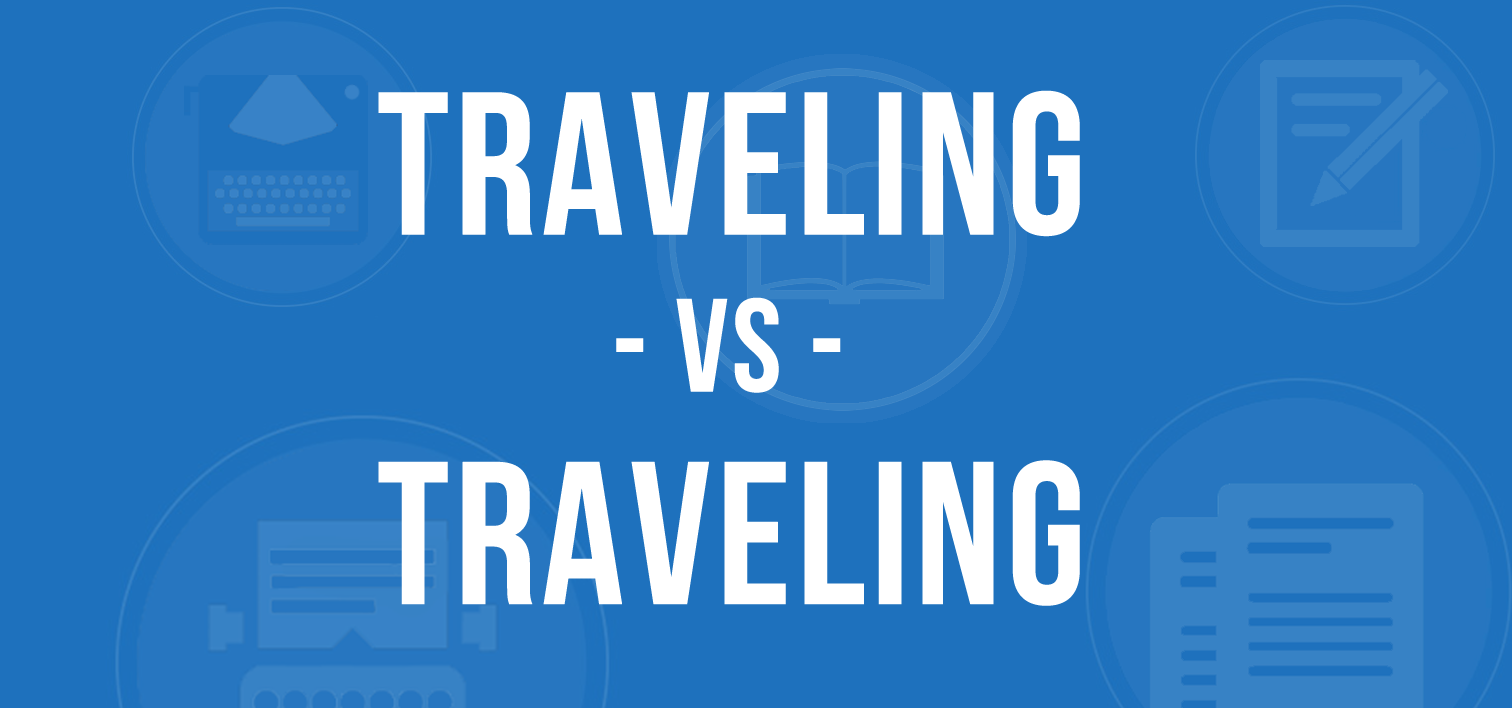
Are you taking a trip anytime soon? If so, where will you be traveling? Or is it travelling? How exactly do you spell this word?
The two words traveling and travelling can cause some confusion for those writers not exactly sure when to use which one. Are they just variations of the same word? Do they have different meanings? Do they function differently in a sentence?
In today’s post, I want to address all of these questions so you will never again wonder or second-guess yourself, “Is it travelling or traveling?”
The Difference Between Travelling and Traveling
Travelling and traveling are both verbs, obviously. To travel is to go from one place to another, as on a trip or journey. For example,

- When the traveling pub is taken off a trailer and put together in a lot near Milwaukee and California avenues, it will boast 400 feet of bar space. – Chicago Sun Times
- They travelled 5,000 miles from Myanmar to place a plaque in Seagrim’s native village of Whissonsett in eastern England. – Washington Post
- Under that analysis, completion of the mobility plan would result in about 35 million miles per day being traveled on L.A. surface streets in 2035. – L.A. Times
You’re probably still thinking, “Okay, I still don’t know how to use these words.”
The difference between traveling vs. travelling isn’t much of a difference at all, really.
In fact, the difference between them is entirely dialectal. There is no demonstrable difference of sense or function, meaning both words can be used interchangeably.
When to Use Travelling
Even though the only thing separating travelling and traveling is a dialectical difference, it is still important to keep your audience in mind when picking which word to use and when.
Travelling (with two Ls) is the preferred spelling in British English and is used much more frequently than is traveling . The graph below shows the use of travelling vs. traveling (as a percentage of all words used) in British English books, journals, and magazines from 1800 to 2008.
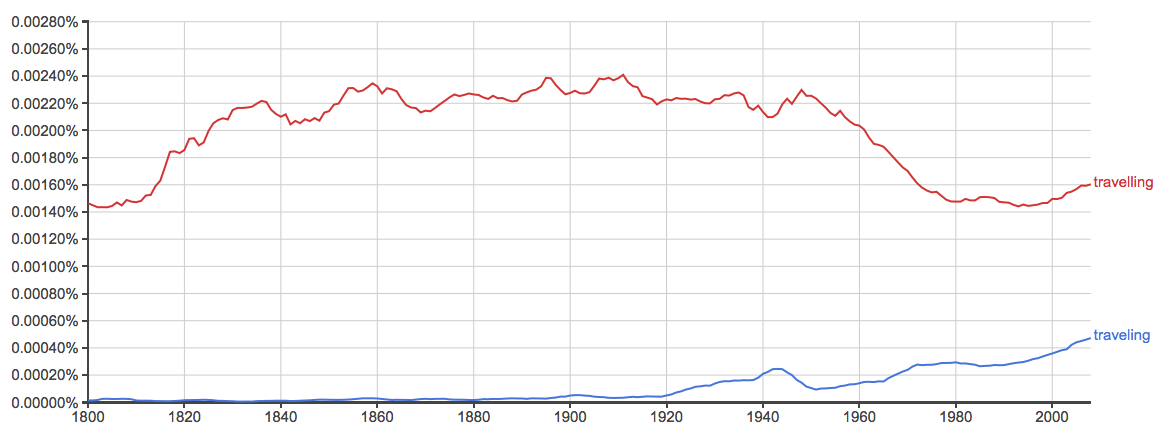
As you can see, travelling (with two Ls) clearly dominates in British English, being used at a rate of about 4:1.
Now, if we look at the same two words over the same time period but limit our search to American print sources, the results completely flip.
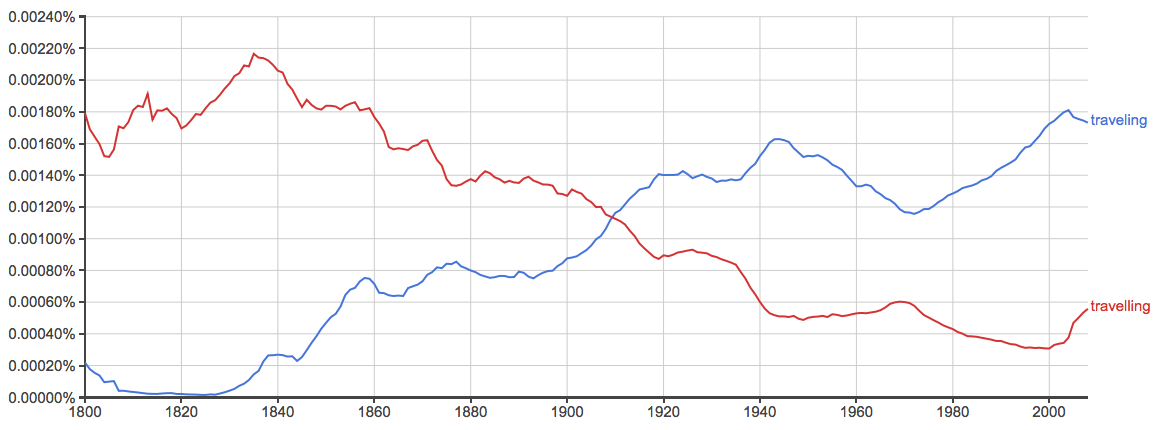
There’s actually a bigger gap between traveling and travelling in American English than there is in British English.
When to Use Traveling
As indicated in the above graph, traveled (with one L) is the preferred spelling in American English.
I’ve discussed the reason for the popularity of many shortened spellings in American English in other posts ( cancelled/canceled comes to mind ), but the basic reason stems back to Noah Webster himself.
He is usually credited with the shortening of many American spellings because in his original 1898 dictionary, he sought to simplify many British spellings he saw as unnecessary. This is where the British-American divide over words like color/colour came from.
Anyway, the point is, if you are writing to an American audience, traveling (with one L) is your best choice.
Remember the Difference – Traveling or Travelling?
One simple way to keep track of these two words is that the shorter spelling is American. If you can keep in mind that, generally speaking, British English favors (favours) the longer spelling of words, you will be able to remember the difference between these words.
It is also worthwhile to note that all of the distinctions in this post apply equally to travelled vs. traveled, traveled vs. travelled, traveller vs. traveler, traveler vs. traveller, etc.
Summary – Traveling vs. Travelling
Is it traveling or travelling? That depends on where you are writing and who is your audience.
- Travelling is the preferred spelling in British English.
- Traveling is the preferred spelling in American English.
Whether you’re talking about travelled or traveled or traveller or traveler, these same preferences still apply.

IMAGES
VIDEO
COMMENTS
Check out Travel and Leisure's list of the 50 most romantic places for a general idea of what's out there in the way of romantic destinations. The notion of taking off to far-flung places is a romantic idea in itself, so grab your partner, your passports, and get out and see the world. Recommended spots for romantic travelers: Santorini ...
Resources Mentioned . Affording Travel (book): Learn how to regularly save for travel and how you can set money aside to make it part of your lifestyle, even if you don't have a lot of money right now.. How to Travel the World on 50 a Day (book): This book offers a practical, step-by-step approach to get you traveling the world from start to finish on $50 a day (or less).
This guide is designed to help you uncover your unique travel style and leverage it to maximize the joy and fulfillment of your adventures. Benefits of Knowing Your Travel Style. 1. Improved planning. 2. Increased cost efficiency. 3. Better time management. 4.
Accommodation: When looking for accommodation, we usually search hotels via Booking.comor Hostelworld. Tours: Although we love to travel independently, some places are better to visit with a guided tour. We prefer GetYourGuidefor its easy-to-use interface and solid reputation. Another great alternative is Viator.
Self-Discovery: If you're looking for a more introspective travel experience, self-discovery may be your style. This style is all about self-reflection, personal growth, and taking time to connect with oneself. Self-discovery travel can be incredibly fulfilling, and it can also be a transformative experience.
A travel style is a way of exploring a foreign country by a means that suits the individual. What are the 4 types of travel? There are many travel categories; the main four include business, adventure, luxury and budget. What is a travel personality? Your travel personality is the way that you identify yourself as a traveller.
6 - Solo Travel. One of the most popular types of travel styles is to experience traveling on your own. It is a great way to get to know yourself and discover how you can adjust to being outside of your comfort zone. It also allows you to push the boundaries of what you are familiar with, be more present and alert wherever you are, and maybe ...
Travel based on a theme or passion. 5) High-Risk Area Traveler. 6) Adventure Traveller. 7) Foodie Traveller. 8) Medical Tourism. 9) Volunteer Travel adventure. 10) Cultural Immersion Travel: 11) Pilgrimage or Faith-based types of travel. 12) Retreats & Health and Wellness tourism.
You prefer spending a short amount of time in a destination before moving on to the next place. You enjoy meeting new people. Cruises are a good way to meet people because you are around the same people for the entire duration of the trip. Faces become familiar and soon it becomes easy to strike up a conversation.
The beauty of travel lies in its ability to offer something unique to every individual. Each type of travel provides a fresh perspective and allows you to experience the same destination entirely differently. Whether it's adventurous backpacking, luxury and indulgence, cultural immersion, solo exploration, group travel, culinary experiences ...
The luxury traveler (recognizable by brand-name luggage and designer sunglasses) always consults the latest trends in tourism before planning a vacation, paying close attention to where the hottest celebrities have stayed in the past. With passport stamps from Milan to Singapore and everywhere in between, the luxury traveler knows quality is ...
Everyone has their own unique travel style and it's important for you to identify your personal travel style. Whether it has to do with money or accommodations, these are the things that shape your trips and how you experience traveling. This blog serves as your guide, a guide to ask yourself questions you might not think of to figure out ...
Less personal space. 2. Luxury Traveler. Traveling in comfort and style at the nicest hotels, restaurants, and with first-class flights. Example: Our stay at the Somerset in Turks and Caicos. Pros: Comfortable living quarters with plenty of benefits.
Koh Chang, Thailand. 6. Long Term Slow Travel. This describes the style of travel that Lee and I do most of the time. Long term slow travel is when you take several months or years to make your way around the world, staying in each location for long enough to really soak up the culture.
This travel glossary contains more than 100 of the most common terms and acronyms you are likely to hear in the travel industry. ... A travel style that includes travels or hikes with a large backpack. Commonly, backpacking is a way to travel on a budget. ... A travel expression used to define a set of destinations to visit or things to do in a ...
People travel differently at different times - they may take a year's sabatical then go back to a 9-5 job, in frustration go wandering for a years, take a job overseas and become an expat, then, exhausted from all the travelling, join an organized tour for two weeks and become a 'tourist'. We all travel differently all the time.
Synonyms for TRAVEL: trek, journey, trip, tour, voyage, roam, wander, pilgrimage; Antonyms of TRAVEL: crawl, creep, drag, hang (around or out), poke, linger, lag, loiter
What Boutique Travel means to me. To me, boutique travel means a focus on quality over luxury, thought many times it's both. It will usually provide modern amenities and local flare. The design concept at the hotel is well thought out and offers an artistic effort or efficient lay out. The feeling of being there is magical, special or feels ...
T. Transit Visa: A visa required for passing through a country to a final destination. It's the paperwork pit stop of your journey. Travel Hacks: Tips and tricks to make travel easier, cheaper, or more enjoyable. A cheat code for the travel game. U. Urban Exploration: Discovering the hidden gems and secrets of urban environments, often accompanied by some form of outlaw defunct urban space ...
fee - bundled air transaction fee. An air transaction fee that includes the costs associated with servicing air, hotel and car transactions. Therefore, hotel and car only bookings (not to exceed XX% of air bookings) are not charged a transaction fee. fee - management fee. Fee assessed in addition to direct costs.
Even though the only thing separating travelling and traveling is a dialectical difference, it is still important to keep your audience in mind when picking which word to use and when. Travelling (with two Ls) is the preferred spelling in British English and is used much more frequently than is traveling.
Nov 16, 2023 - Define Your Travel Style with our unique and stylish travel accessories! Give your suitcases a pop of personality with Luggage Covers that protect your bags from damage. Travel essential Luggage Tags helps others identify your in-transit or lost travel gear. Both help in spotting your luggage from a distance and prevent theft.
While both travel and tour have their advantages and disadvantages, it ultimately depends on your preferences and travel style. Some people prefer the freedom and flexibility of independent travel, while others enjoy the convenience and structure of a tour. ... Define Tour. A tour is a planned and organized trip that typically involves visiting ...